Shows
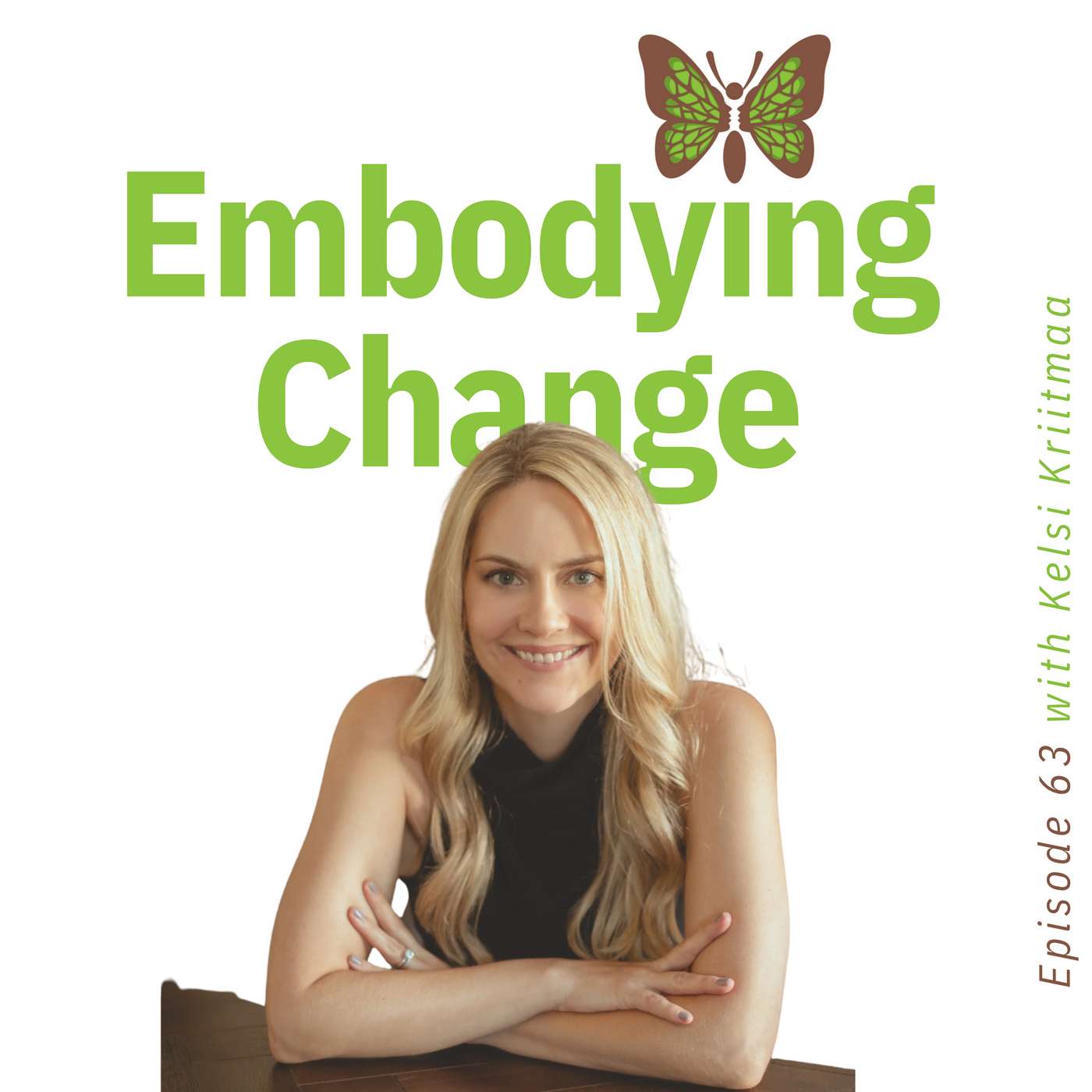
Embodying change: Transforming power, culture and well-being for people in aid63. Seasons of change with Kelsi Kriitmaa, PhD When the work that once defined you no longer fits, what comes next?In this heartfelt conversation, strategist and executive coach Kelsi Kriitmaa, PhD joins Melissa to explore what it means to embody change, especially for those in the social-impact and humanitarian worlds. Together, they talk about:Living your values through different seasons of life and careerThe difference between having to pivot and wanting toHow to reframe a “career gap” into a story of growthFinding community and accountability when work feels uncertainWhy sustainable leadership matters more than ever in 2025Whether you’re navigating a career...
2025-11-0546 min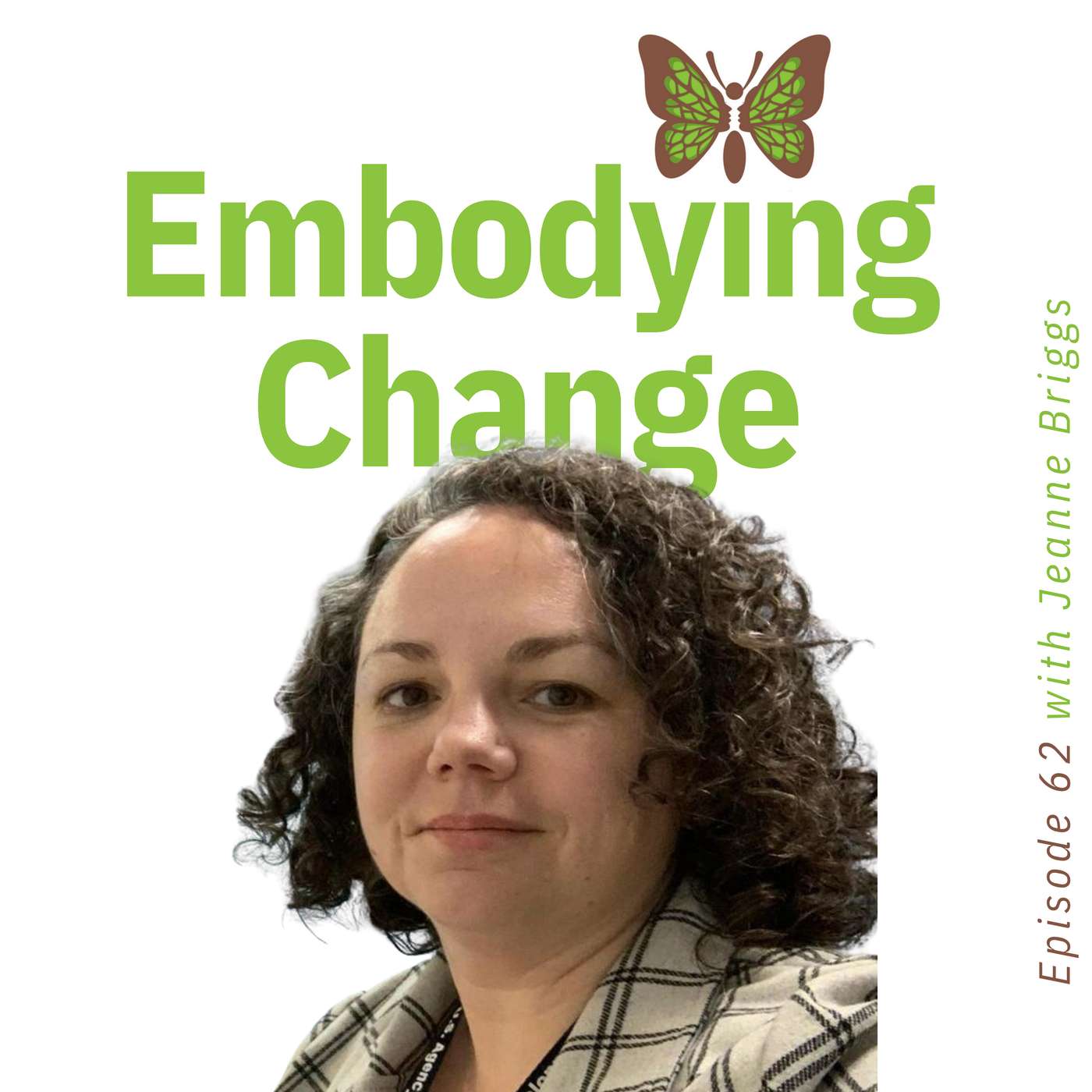
Embodying change: Transforming power, culture and well-being for people in aid62. When chaos meets order with Jeanne BriggsWhat does it take to stay calm when everything is falling apart? In this episode, Jeanne Briggs, an international development professional who thrives on bringing order to chaos, shares lessons from 24 years with USAID that are relevant to our situation today. We explore how to widen your window of opportunity, take a trauma-informed approach to crisis, find clarity in transition, and use peer support as an anchor in turbulent times.IntroductionWhen everything feels like it’s falling apart, who do you want by your side?For many humanitarians an...
2025-08-2947 min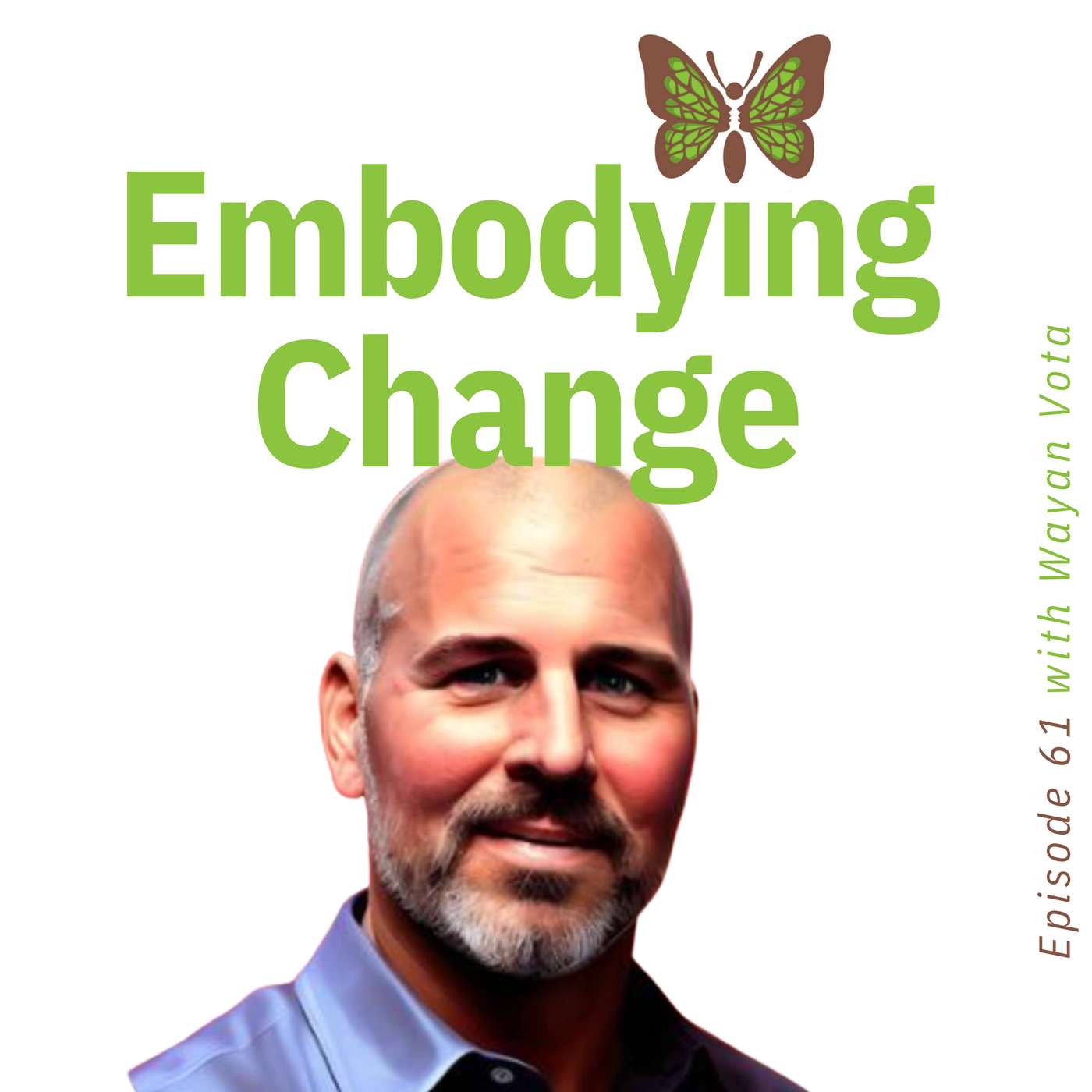
Embodying change: Transforming power, culture and well-being for people in aid61. “Career Pivot” with Wayan VotaIt can feel overwhelming navigating a career pivot, especially in times of uncertainty. But it doesn’t have to be. In today’s episode of Embodying Change, we’re joined by Wayan Vota, founder of Career Pivot, to explore how humanitarian and development professionals can use these very principles to make meaningful career transitions.Wayan shares his personal journey of shifting careers after being laid off and discusses how his platform, Career Pivot, helps people embrace change, find new opportunities, and use their skills in new places, all while staying true to their core values. He...
2025-05-2339 min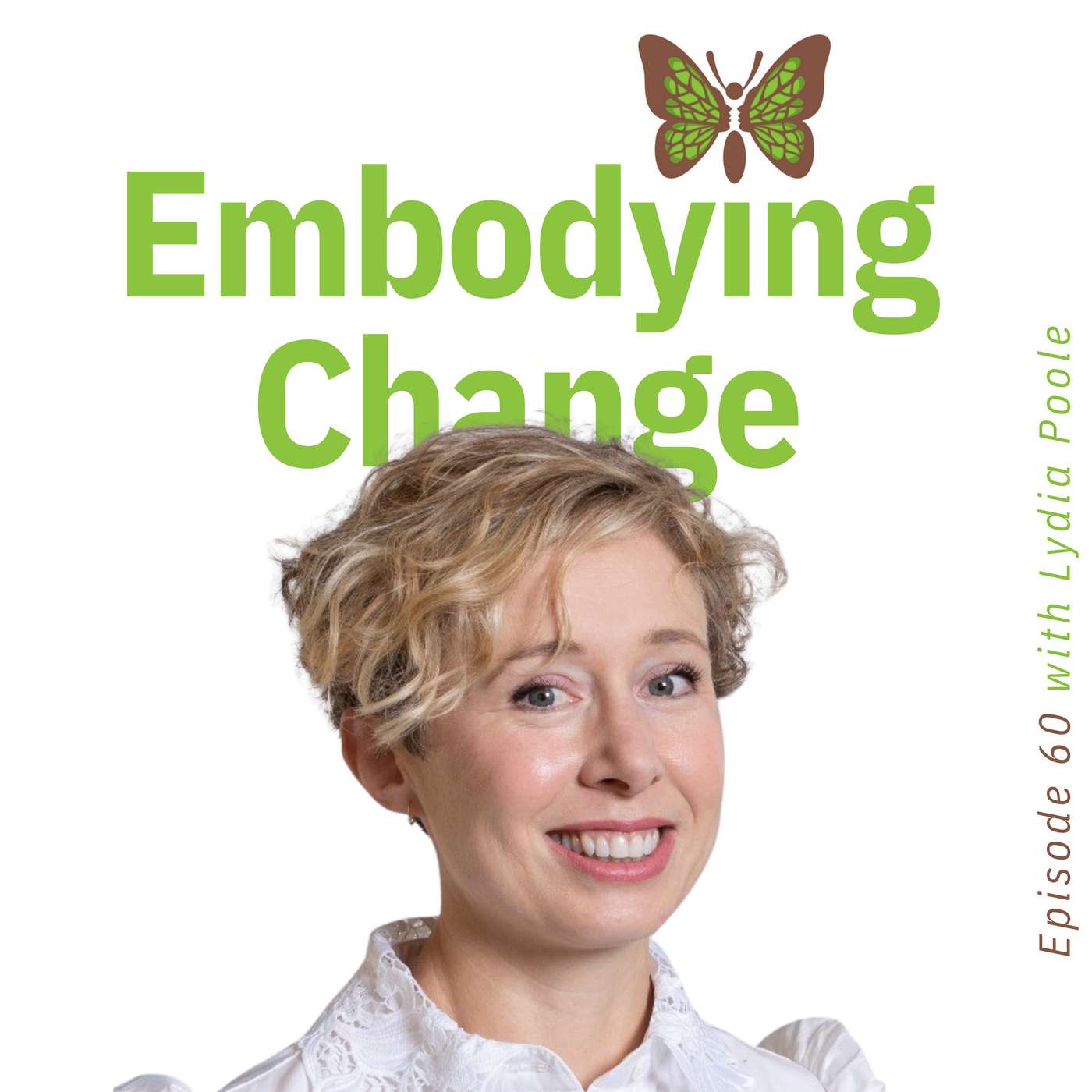
Embodying change: Transforming power, culture and well-being for people in aid60. "The Big Humanitarian Rethink" with Lydia PooleLydia Poole discusses "The Big Humanitarian Rethink," a digital consultation she launched with Ben Parker to capture diverse perspectives on reforming the humanitarian system during a period of unprecedented funding cuts. The consultation revealed two distinct camps: "reimaginers" who advocate for radical transformation addressing power imbalances, and "improvers" who prefer incremental change while preserving humanitarian principles. Despite these differences, both groups agree on the need to maintain some international crisis response capabilities. As the humanitarian sector navigates this watershed moment, Lydia emphasizes the urgent need to make difficult choices about what to preserve while avoiding a disorderly collapse of...
2025-04-2136 min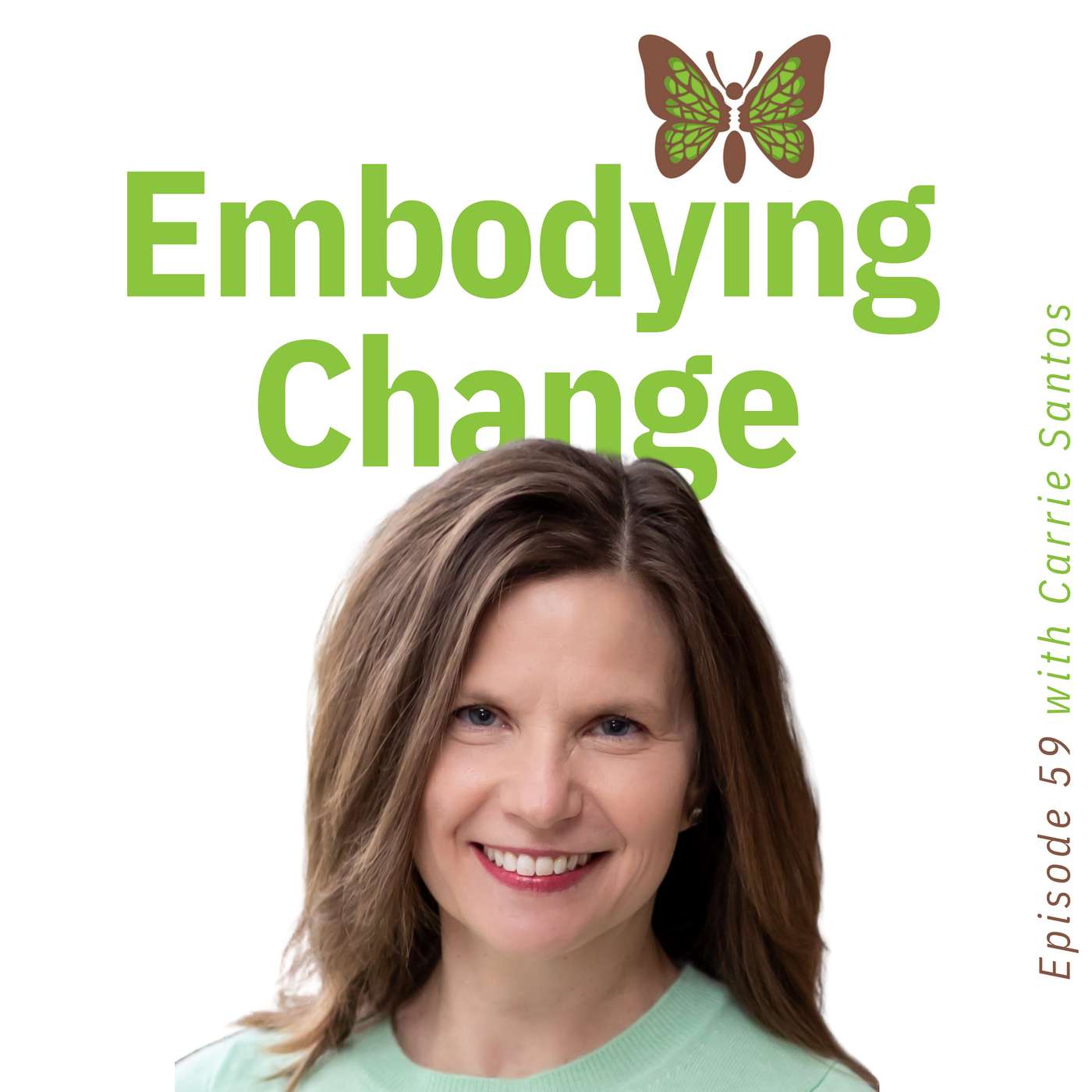
Embodying change: Transforming power, culture and well-being for people in aid59. Humanitarians' anchor in the storm: The power of structured peer support with Carrie SantosIn a sector increasingly battered by funding cuts, program disruptions, and global uncertainty, where can humanitarian professionals find stability? As the waves of change crash around us, what can serve as our anchor?In this powerful episode, Melissa Pitotti talks with Carrie Santos about how structured peer support groups (also called masterminds or forums) can provide that crucial foundation during turbulent times. They explore how these intentional communities help humanitarians weather career transitions, prevent burnout, and find creative solutions to complex problems when traditional support systems falter.Carrie shares...
2025-03-1848 min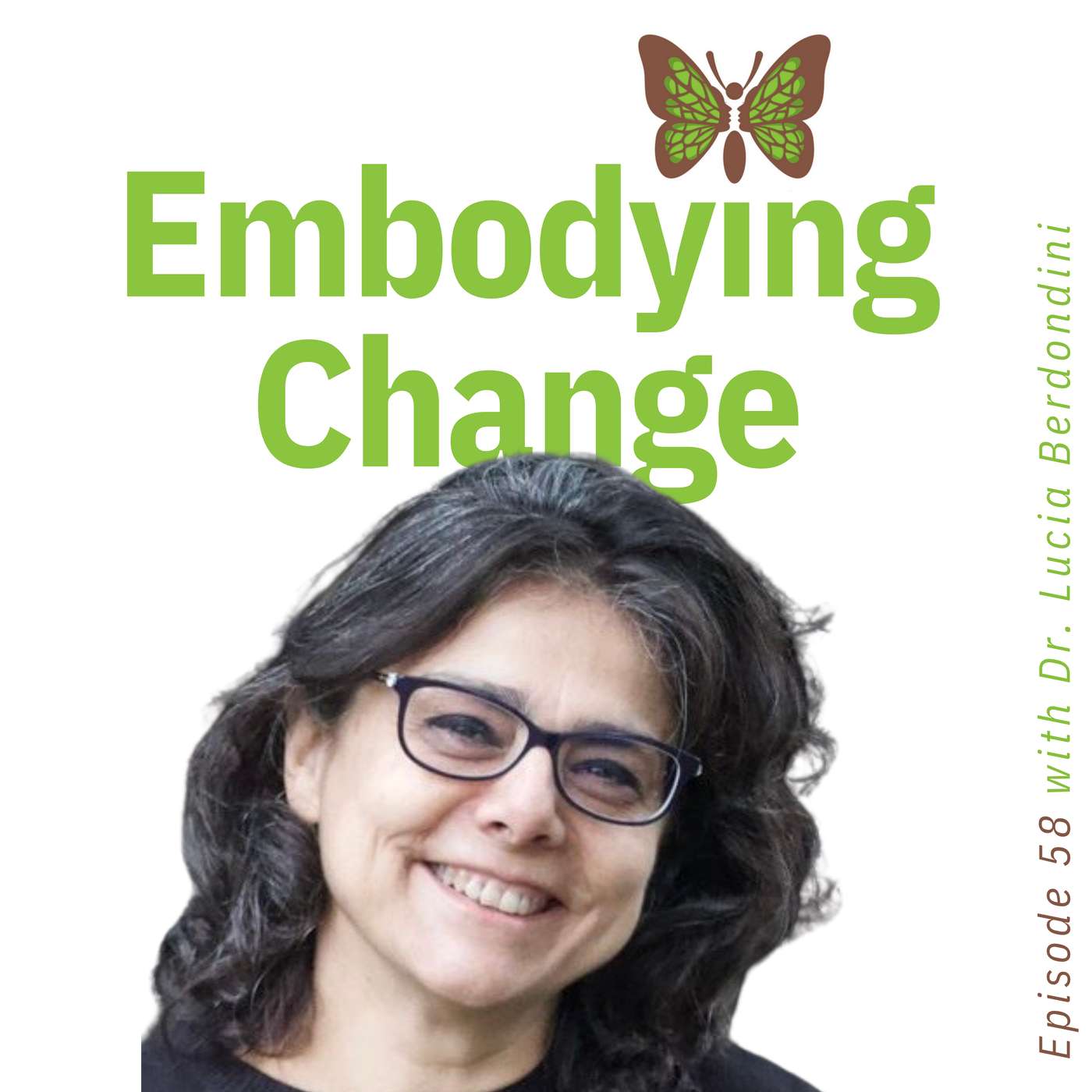
Embodying change: Transforming power, culture and well-being for people in aid58. “Navigating the storm” with Dr. Lucia BerdondiniIn today’s episode, we hear from Dr. Lucia Berdondini, a Gestalt therapist and humanitarian, who shares her journey and the importance of embodying change in times of crisis. She discusses how grief and uncertainty are affecting the humanitarian workforce amidst recent challenges, and how we can support ourselves and others through this transformative period.Key points:The power of "embodying change" and how it applies to both personal and professional crises.Grief and emotional responses in times of uncertainty: why they don’t follow a linear path.The role of community and peer support in n...
2025-02-2142 min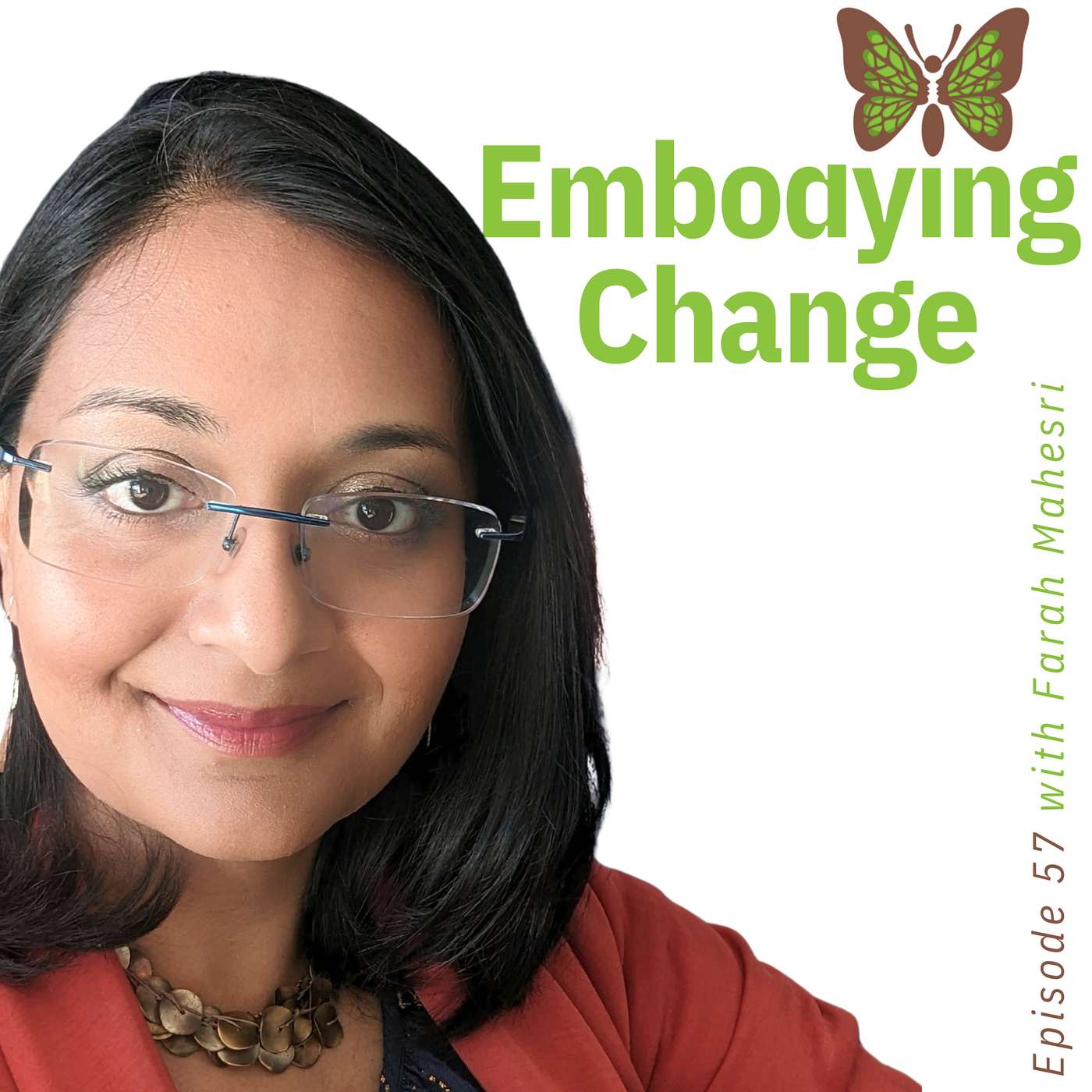
Embodying change: Transforming power, culture and well-being for people in aid57. "Find your people" with Farah MahesriFarah Mahesri shares insights about systems-level change, the importance of building trust, and finding your community during times of transition. Drawing from her experience working with social justice organizations and in global development, Farah discusses how to embody change at multiple levels while staying true to your values.You’ll hear about:The five levels of systems analysis and the importance of working at all the levels, all at the same timeThe importance of finding your community - no one can do hard work by themselvesBuilding trust and taking the first step in tr...
2025-02-0335 min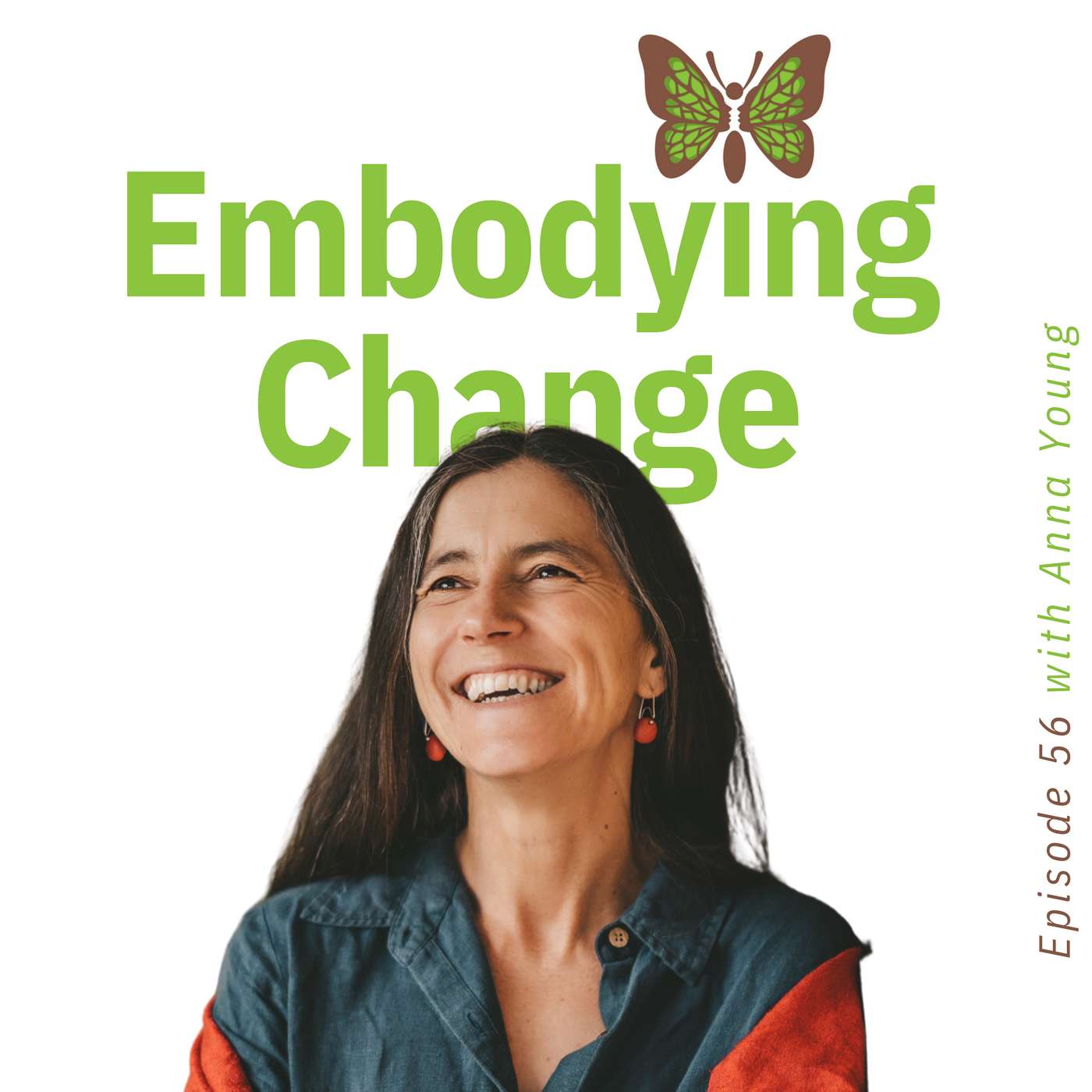
Embodying change: Transforming power, culture and well-being for people in aid56. "Everyone can contribute to positive culture" with Anna YoungIn this episode of Embodying Change, Melissa Pitotti talks with Anna Young, an organizational culture specialist, to explore how humanitarian teams can align their values with their daily work. Drawing from her research and extensive experience in the humanitarian sector, Anna shares actionable strategies for creating cultures rooted in kindness, connection, and appreciation—while addressing the systemic challenges that cause burnout and misalignment. This conversation is packed with practical insights, inspiring reflections, and a clear call to action: Start small, but start today. About Anna Young:Anna Young is an organizational culture expert bas...
2025-01-0436 min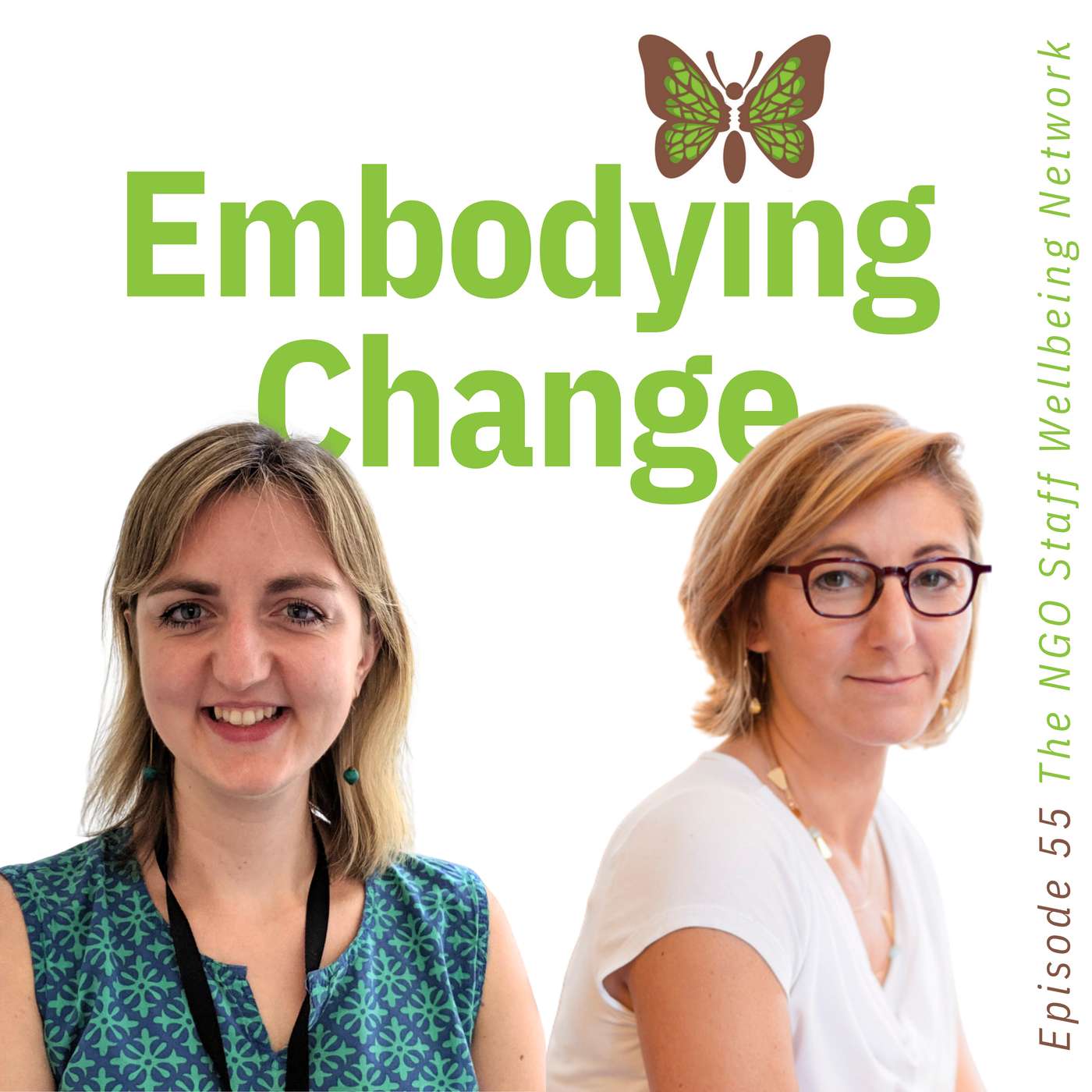
Embodying change: Transforming power, culture and well-being for people in aid55. The NGO Staff Wellbeing NetworkIn this episode of Embodying Change, host Melissa Pitotti is joined by Jody Gunn-Russell and Camille Lemouchoux, two trailblazers in humanitarian staff well-being. Together, they recount the inspiring story of the NGO Staff Wellbeing Network, from its inception to its evolution into a vibrant community of practice. The conversation dives into the challenges of fostering well-being in the humanitarian sector, the systemic changes needed, and the collective efforts required to support staff across diverse cultural and organizational contexts.Guest bios:Jody Gunn-Russell: Founder of the NGO Staff Wellbeing Network, Jody has over a decade of...
2024-12-1947 min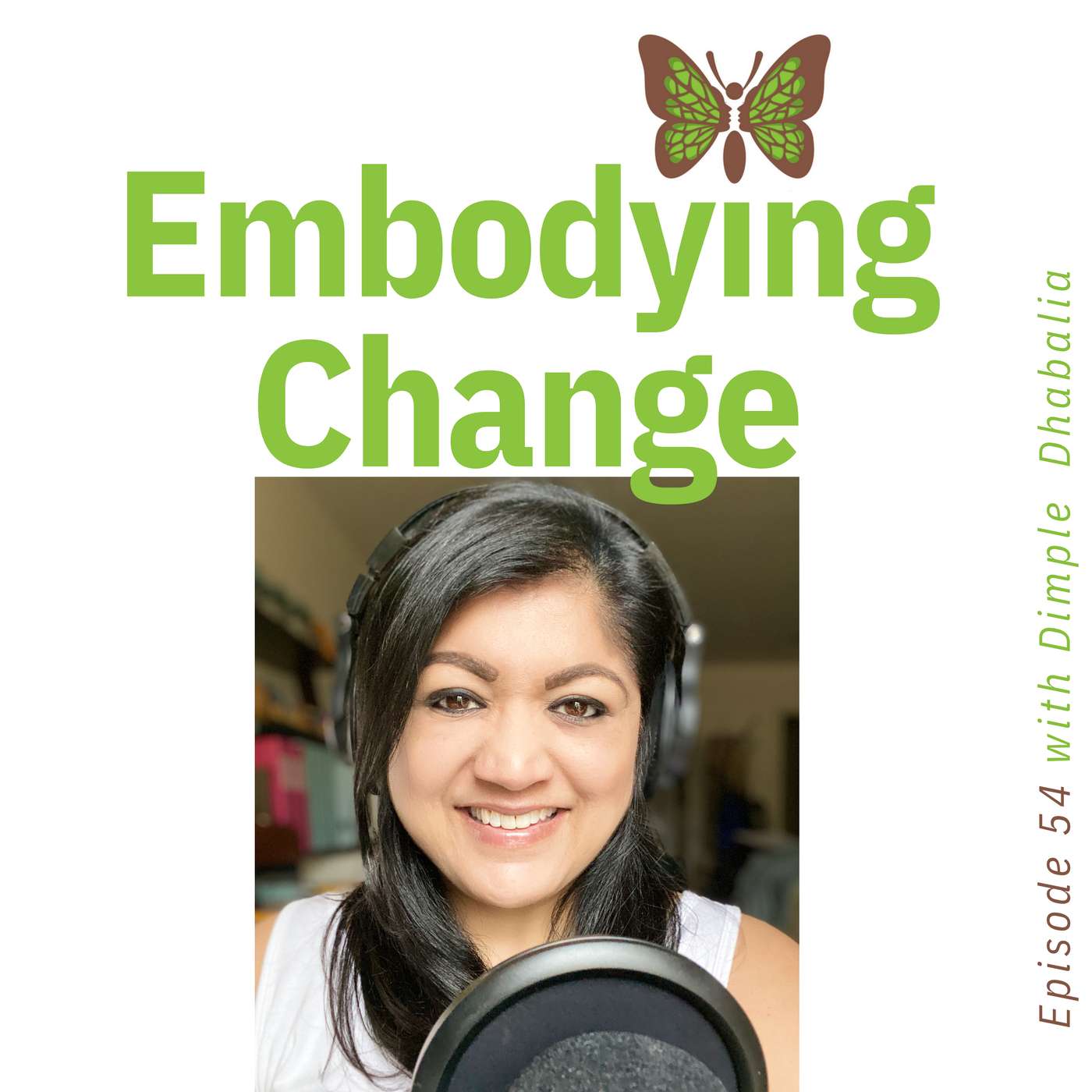
Embodying change: Transforming power, culture and well-being for people in aid54. “Moral injury” with Dimple DhabaliaIn this heartfelt conversation, Dimple Dhabalia shares her journey from working in the government and humanitarian sectors to advocating for trauma-informed leadership and workforce well-being. Through the lens of her personal experiences and her book Tell Me My Story, Dimple explores the vital shift from “service before self” to a more sustainable, human-centered approach. This episode dives into the complexity of moral injury, the ripple effect of self-care in leadership, and how we can reframe our approach to service to prioritize both humanity and well-being.Guest Background:Dimple Dhabalia is a seasoned humanitarian prof...
2024-11-2244 min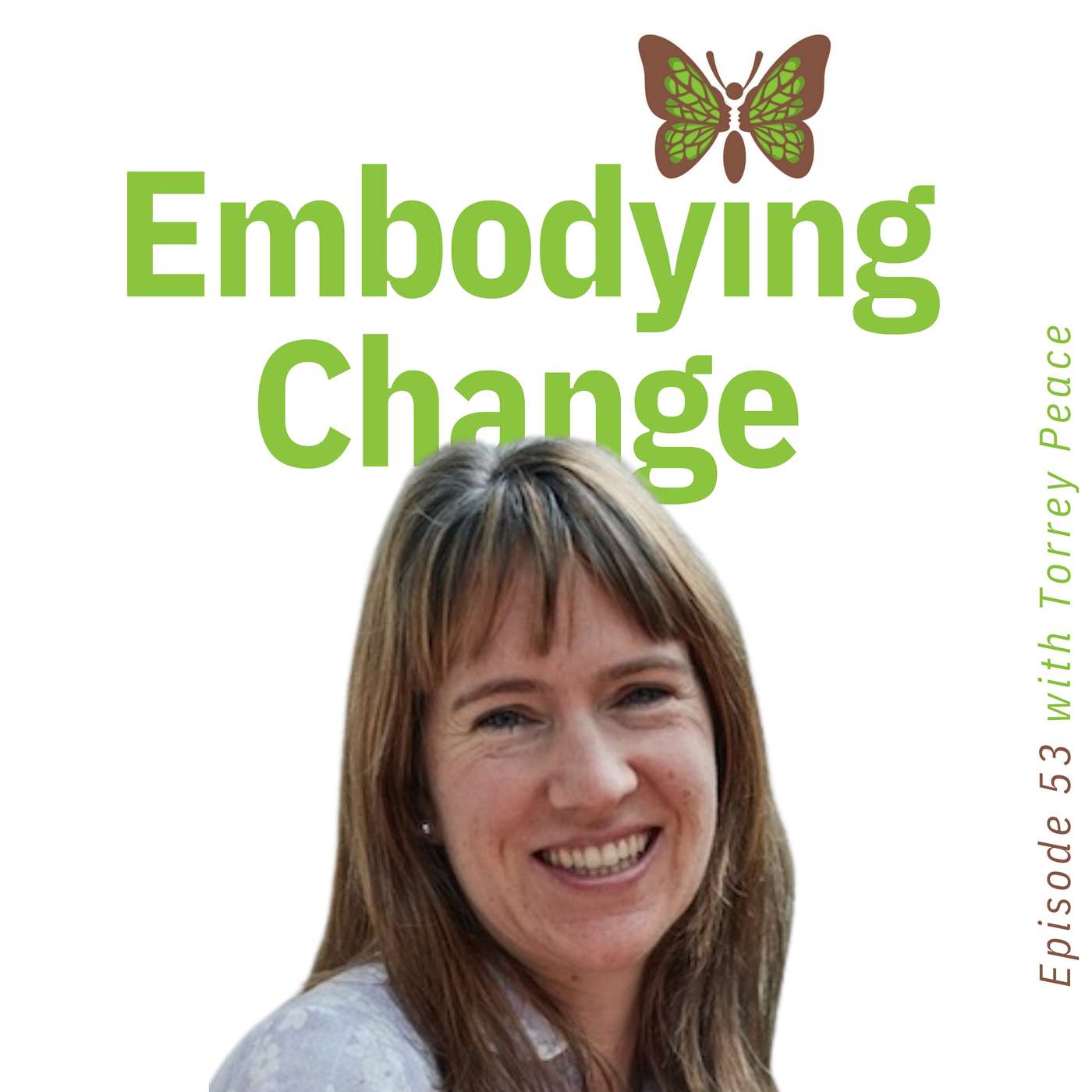
Embodying change: Transforming power, culture and well-being for people in aid53. Overcoming imposter syndrome with Torrey PeaceIn this episode of Embodying Change, Melissa Pitotti welcomes back Torrey Peace, leadership coach and expert in the humanitarian and development sectors. Together, they explore the challenge of balancing high performance with self-care, and the importance of setting boundaries and empowering your team to thrive. Torrey shares insightful strategies on overcoming imposter syndrome, delegating effectively, and why investing in your team creates a ripple effect of positive impact. Tune in to hear practical advice you can start applying today, whether you’re leading a small team or an entire organization.About TorreyAs a certified coach wi...
2024-10-2544 min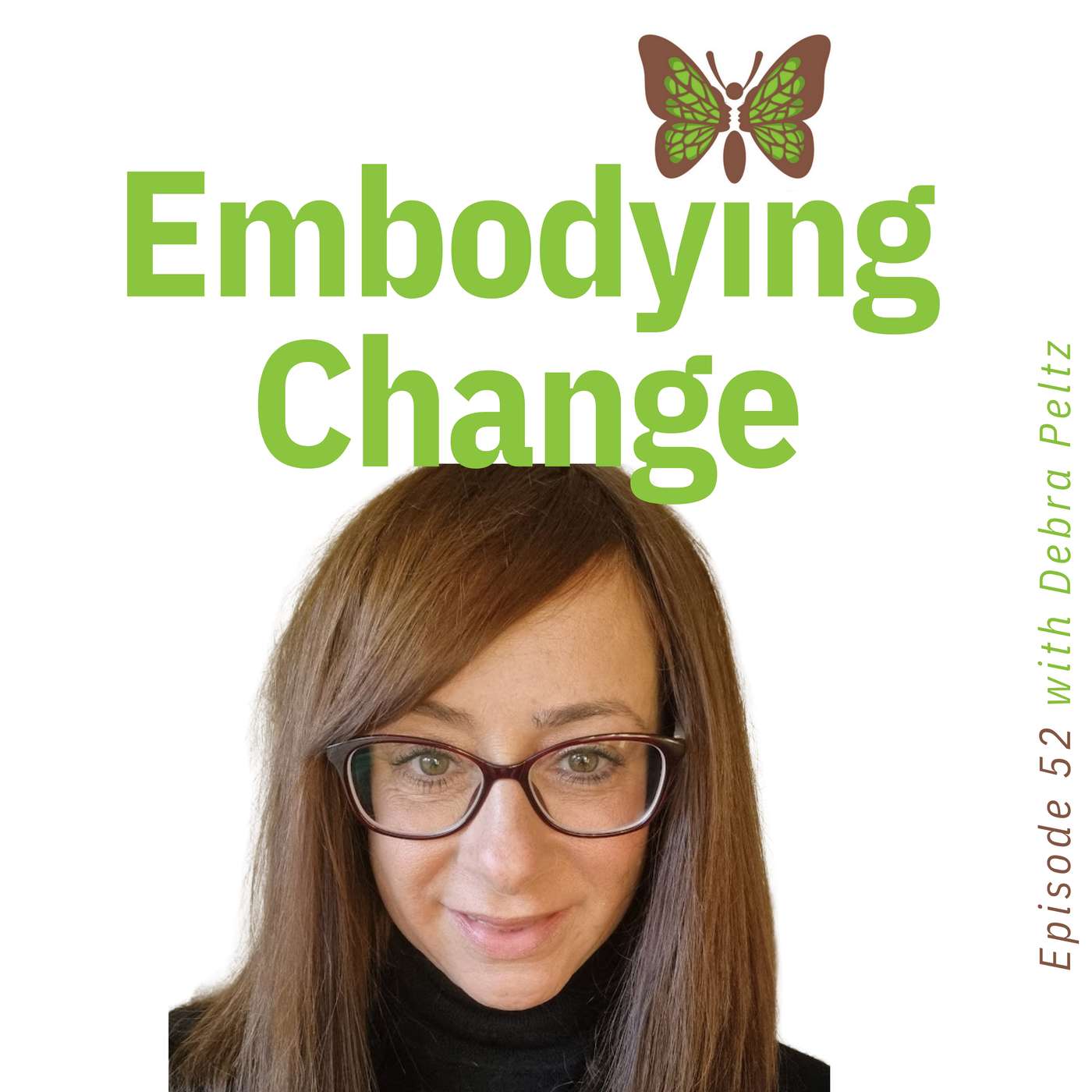
Embodying change: Transforming power, culture and well-being for people in aid52. The System Changer Sleepover with Debra PeltzIn this episode, Melissa Pitotti talks with Debra Peltz, founder of CollabWork and a well-being champion with a 25-year career in senior administration roles. Debra shares her journey from volunteering in Sri Lanka to working at Save the Children UK and eventually launching her own business. They explore:What it means to truly "embody change" in your personal and professional life.Debra’s work at Save the Children UK, first supporting the Exec Director for HR before moving into a Wellbeing Lead role, where she developed and implemented strategies to promote psychological safety, enh...
2024-10-1134 min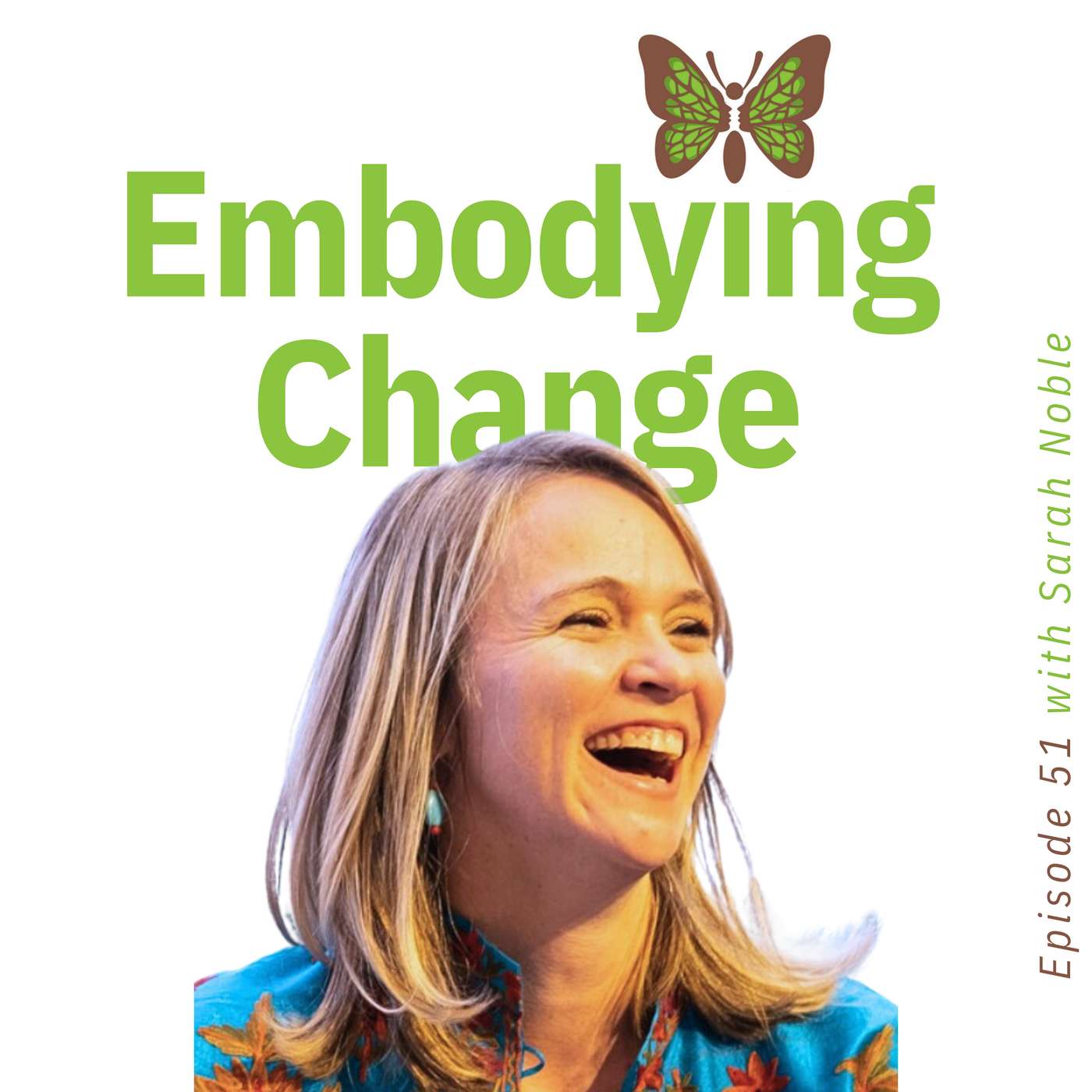
Embodying change: Transforming power, culture and well-being for people in aid51. Leading from the heart with Sarah NobleIn this episode, Melissa Pitotti is joined by Sarah Noble, Head of Global Engagement at the Caux Initiatives of Change Foundation. Sarah shares her unique perspective on peace-building, storytelling, and how inner development can create outer change. Together, they discuss:The history and mission of the Caux Palace as a gathering place for change-makers.Sarah’s journey from working at The New Humanitarian to her current role at the Caux Foundation.The importance of storytelling in peace and conflict resolution.Practical ways to incorporate quiet time and self-reflection into your life.How the Inner Development Goals framework helps ac...
2024-10-0436 min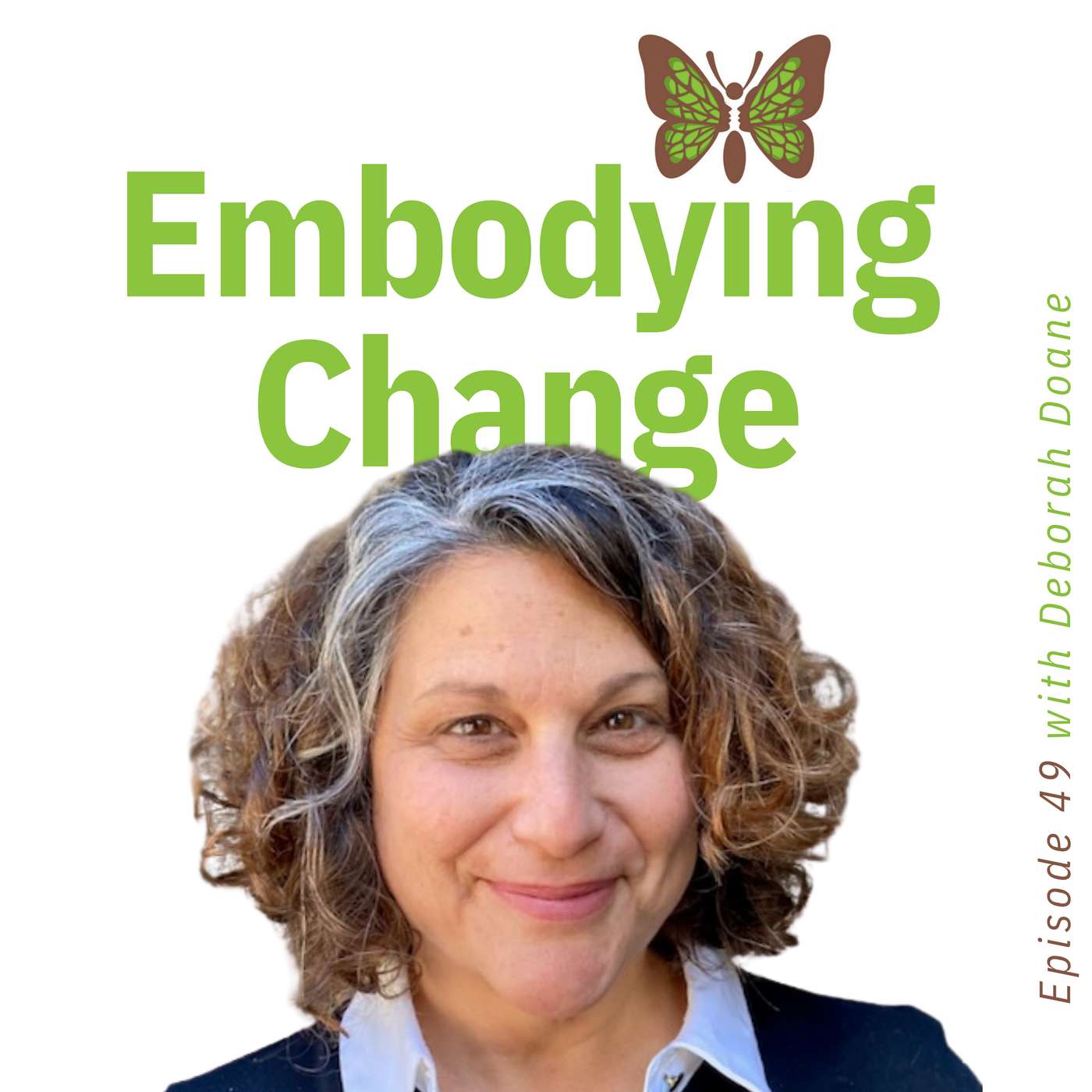
Embodying change: Transforming power, culture and well-being for people in aid49. The INGO Problem with Deborah DoaneIn this episode, Melissa Pitotti speaks with Deborah Doane, author of The INGO Problem: Power, Privilege, and Renewal. Deborah brings decades of experience in the humanitarian and development sectors, from leading the Ombudsman Project for humanitarian accountability to co-founding the RINGO Project, which is pushing for systemic change in global civil society. The conversation explores key themes from Deborah’s book, including the challenges of reforming the INGO sector, shifting power to local actors, and embracing new roles for INGOs in the future.Key topics covered:A pe...
2024-09-0645 min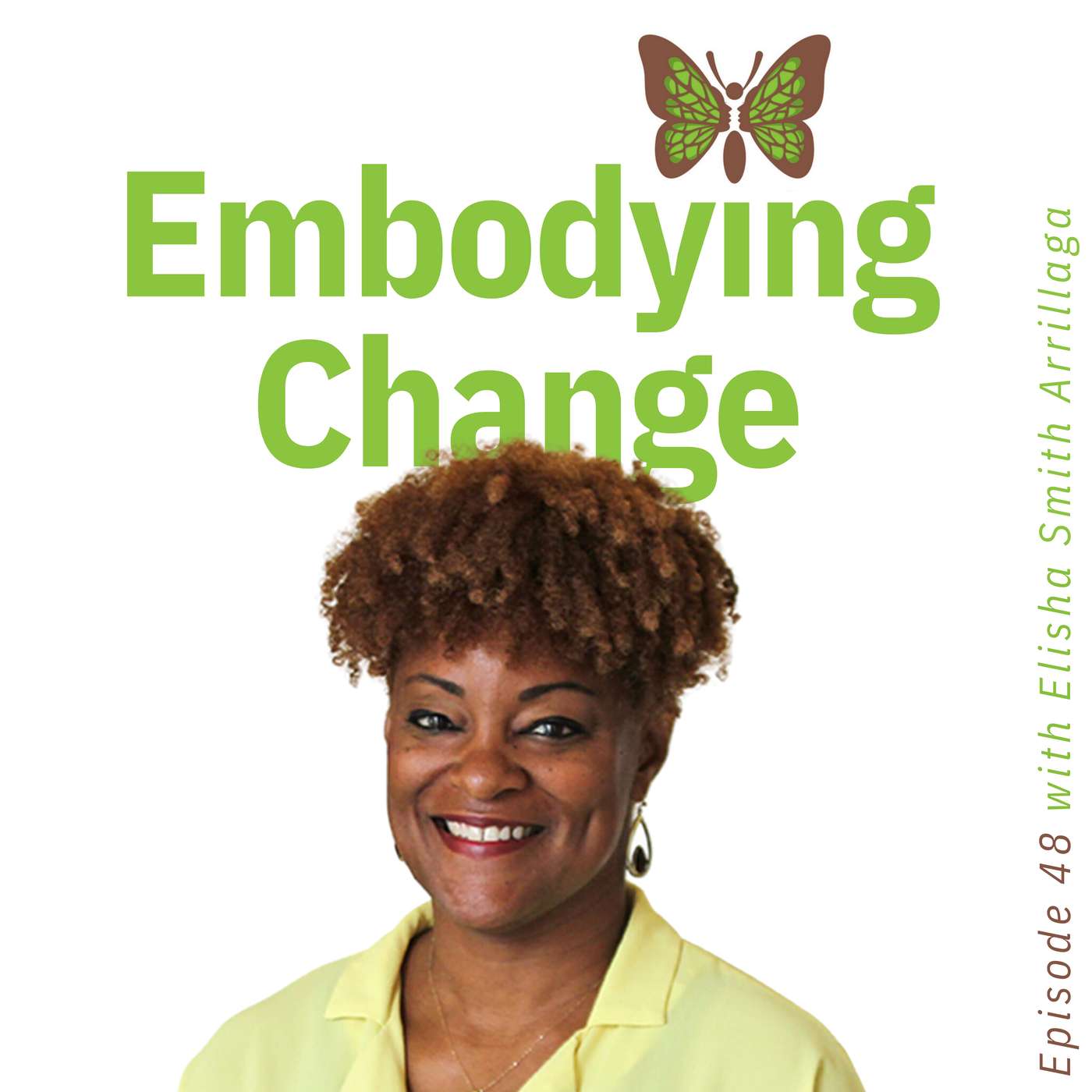
Embodying change: Transforming power, culture and well-being for people in aid48. Sitting in the gray with Elisha Smith ArrillagaWhat does it mean to sit in the gray areas of change? How can philanthropy better support nonprofit leaders and staff in these challenging times?In today’s episode of Embodying Change, host Melissa Pitotti speaks with Elisha Smith Arrillaga, a thought leader in philanthropy and the leader of the research team at the Center for Effective Philanthropy. Elisha shares her journey from a childhood deeply influenced by civil rights activism to her role in shaping effective philanthropic practices. The conversation covers critical topics, including the findings from the 2024 State of Nonprofits report, which highlights the...
2024-08-3039 min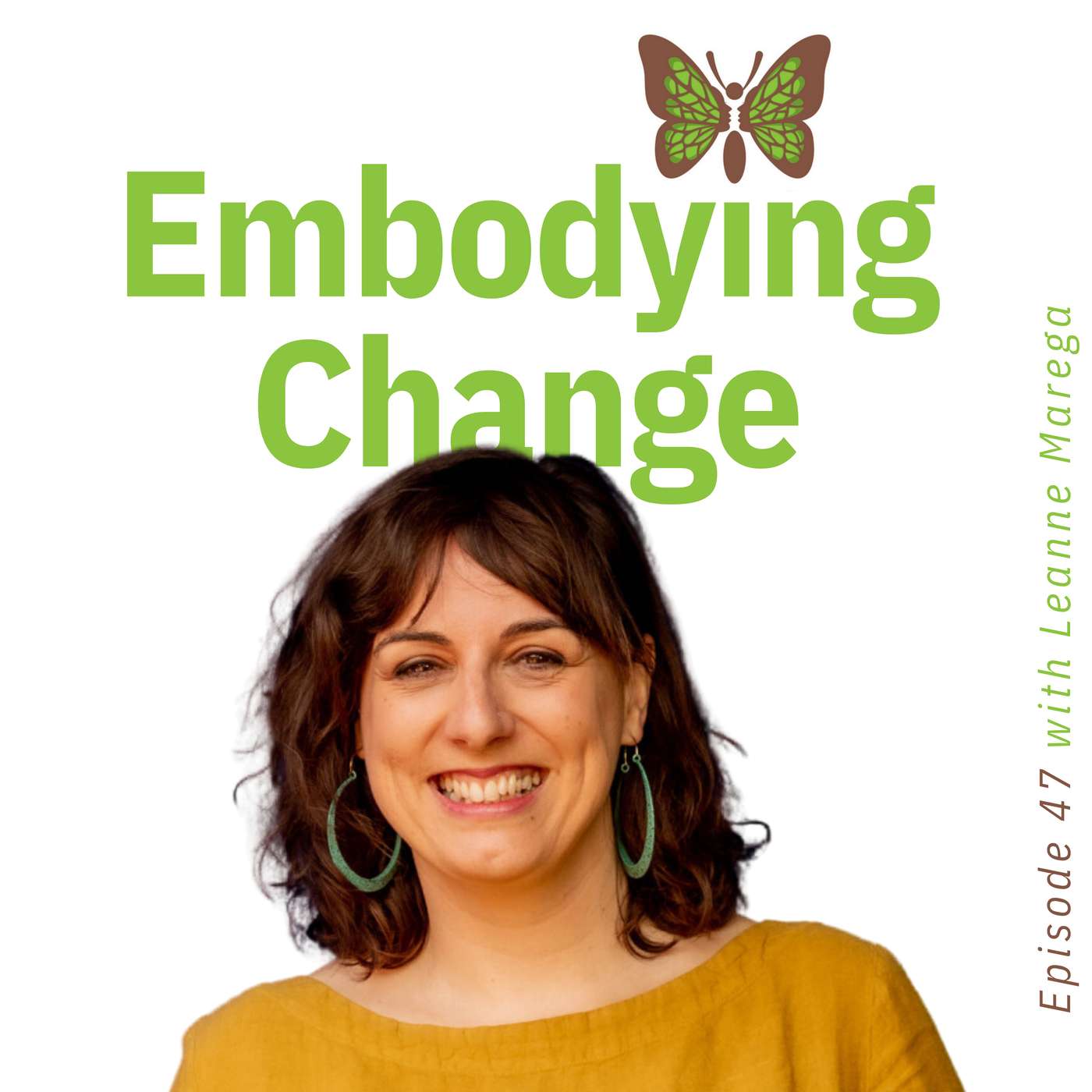
Embodying change: Transforming power, culture and well-being for people in aid47. Cultivating thriving workplaces with Leanne MaregaHow can we create a thriving workplace culture in the humanitarian sector? In today’s episode of Embodying Change, host Melissa Pitotti welcomes Leanne Marega, a pioneer in humanitarian workforce well-being and a founder of Thrive Worldwide. Leanne shares her journey from Interhealth Worldwide to founding Thrive Worldwide, emphasizing the critical role of culture in fostering thriving workplaces. You’ll hear about the importance of healthy boundaries, the challenges of leadership in times of crisis, and practical steps to create supportive work environments.Leanne also opens up about her personal battle with cancer and how it in...
2024-08-1042 min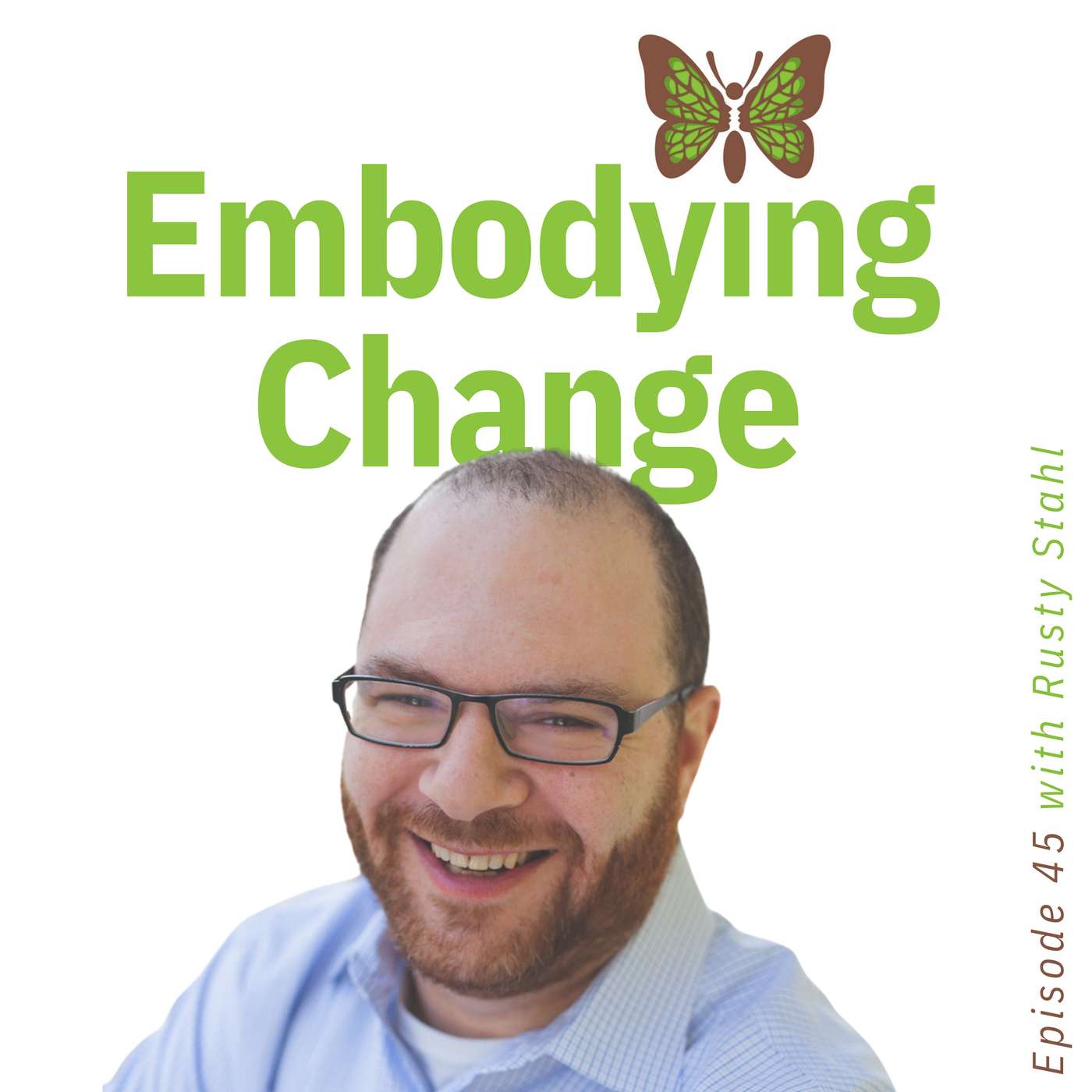
Embodying change: Transforming power, culture and well-being for people in aid45. Investing in the nonprofit workforce with Rusty StahlWhy is burnout so prevalent in the nonprofit sector? How can funders better support the people who deliver?In today’s episode of Embodying Change, host Melissa Pitotti welcomes Rusty Stahl, founder of Fund the People. Rusty shares his journey into philanthropy, the systemic issues leading to chronic underinvestment in nonprofit staff, and the innovative solutions Fund the People advocates for. You’ll learn about the harmful myths surrounding nonprofit overhead, the importance of treating nonprofit staff as essential assets, and practical steps to foster a healthier, more sustainable nonprofit sector.If you're passionate about crea...
2024-07-271h 02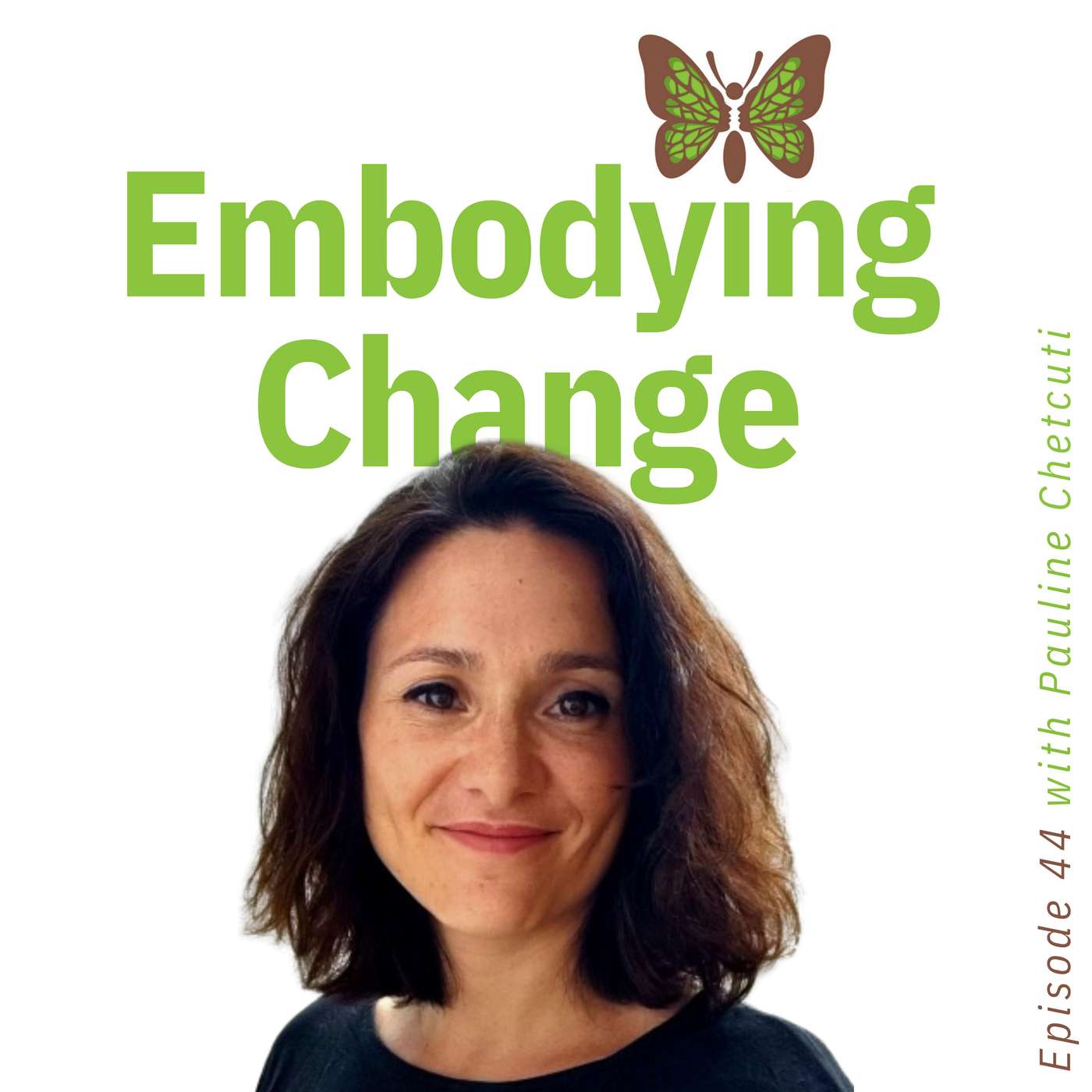
Embodying change: Transforming power, culture and well-being for people in aid44. Rolling up our sleeves with Pauline ChetcutiDo you ever feel overwhelmed by the complexities and challenges of humanitarian work? Are you looking for signs of hope that, together, we can transform the sector?In today’s episode of Embodying Change, host Melissa Pitotti welcomes Pauline Chetcuti, the newly elected president of VOICE. Pauline shares her journey from international law to humanitarian advocacy, discussing the importance of saying no, the power of collective action, and the challenges of decolonizing and transforming humanitarian work.Today’s guestPauline Chetcuti is the newly elected president of VOICE, the largest European huma...
2024-07-1929 min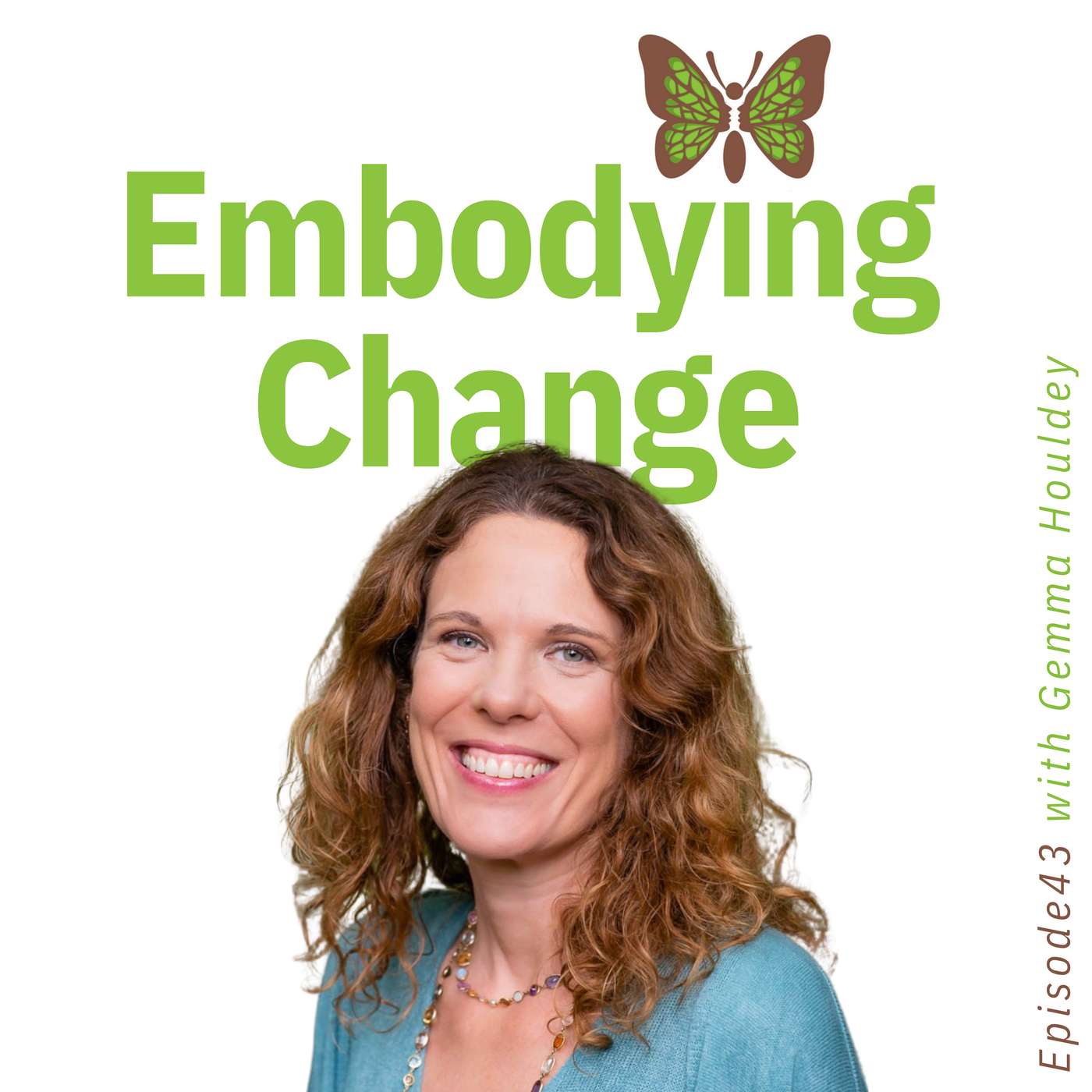
Embodying change: Transforming power, culture and well-being for people in aid43. Redefining “resilience” with Gemma HouldeyDo you ever wonder how vulnerability and power dynamics shape your work in the humanitarian sector? Are you curious about how funding practices can better support well-being?In today’s episode of Embodying Change, host Melissa Pitotti welcomes back Gemma Houldey, author of The Vulnerable Humanitarian. Gemma shares her journey from human rights advocacy to becoming a thought leader regarding humanitarian well-being. You’ll hear about the importance of showing up with vulnerability, understanding power dynamics, and how feminist funders are pioneering new approaches to support long-term organizational well-being.If you're passionate about creating a more...
2024-07-121h 07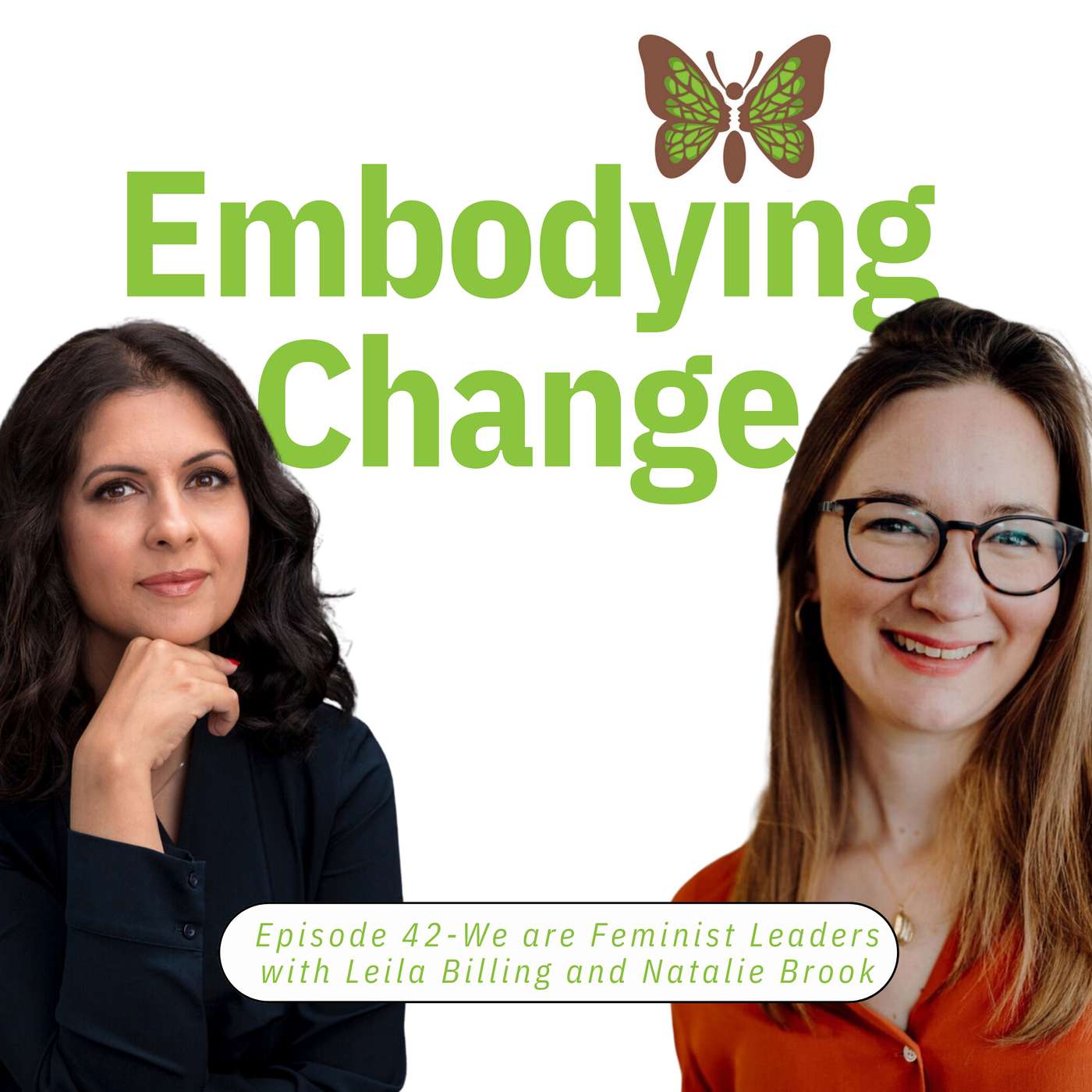
Embodying change: Transforming power, culture and well-being for people in aid42. We are feminist leaders with Leila Billing and Natalie BrookEpisode 42: We Are Feminist Leaders with Leila Billing and Natalie BrookDo you ever feel conflicted by traditional leadership models that don’t align with your values? Are you curious about how feminist principles can transform the way we approach leadership, especially in the humanitarian sector?In today’s episode of Embodying Change, host Melissa Pitotti sits down with Leila Billing and Natalie Brook, founders of We Are Feminist Leaders. Leila and Natalie share their journey from feeling disillusioned by patriarchal and colonial leadership structures to creating a transformative program that empowers leaders to b...
2024-07-0946 min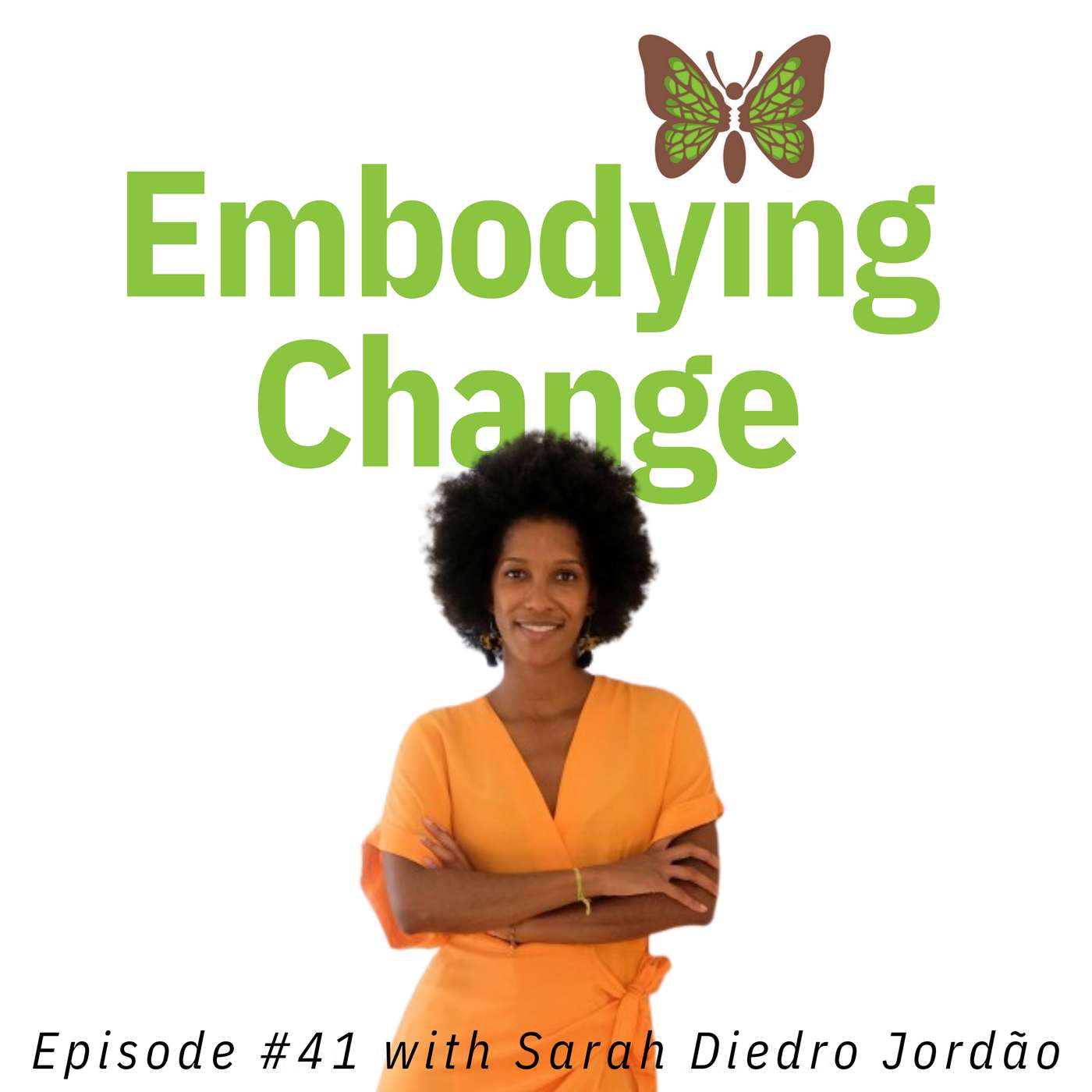
Embodying change: Transforming power, culture and well-being for people in aid41. "If it's itchy, uncomfortable, messy, and hurts..." with Sarah Diedro JordãoThis conversation with Sarah Diedro Jordão provides a deep and heartfelt exploration of what it means to embody change and foster love in the quest for a more equitable society. “Going through a painful process can very much be part of embodying change. If it's itchy, uncomfortable, messy, and hurts, change is probably on the other side of that. So there’s hope." -Sarah Diedro Jordão Sarah Diedro Jordão is a multi-passionate & versatile consultant. She works as a communications strategist, DEIB consultant, facilitator and podcast host. The drivin...
2024-07-0540 min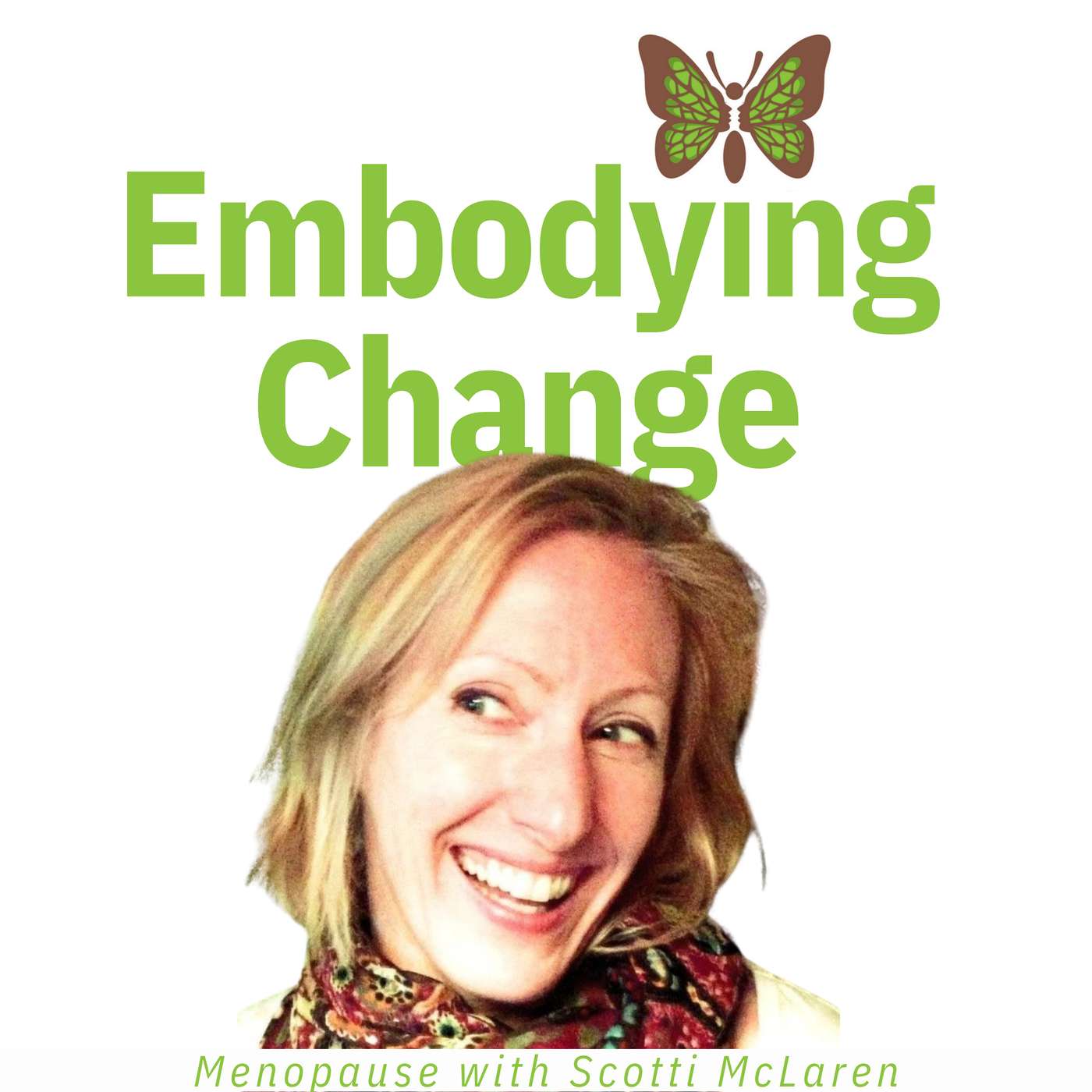
Embodying change: Transforming power, culture and well-being for people in aid40. Menopause with Scotti McClarenHumanitarian women are exposed to chronic stress, which can impact their experience of peri-menopause, menopause and post-menopause.In this episode of Embodying Change Scotti McLaren shares her experience and insight as it relates to this under-explored and yet powerful time of a woman’s life – before, during and after actual “M day.”What are the symptoms and what can we do about them?Scotti practices functional medicine and personalized nutrition, specializing in menopause and mental health. Following a career in audit and humanitarian aid (MSF), and eventual burnout...
2024-06-2628 min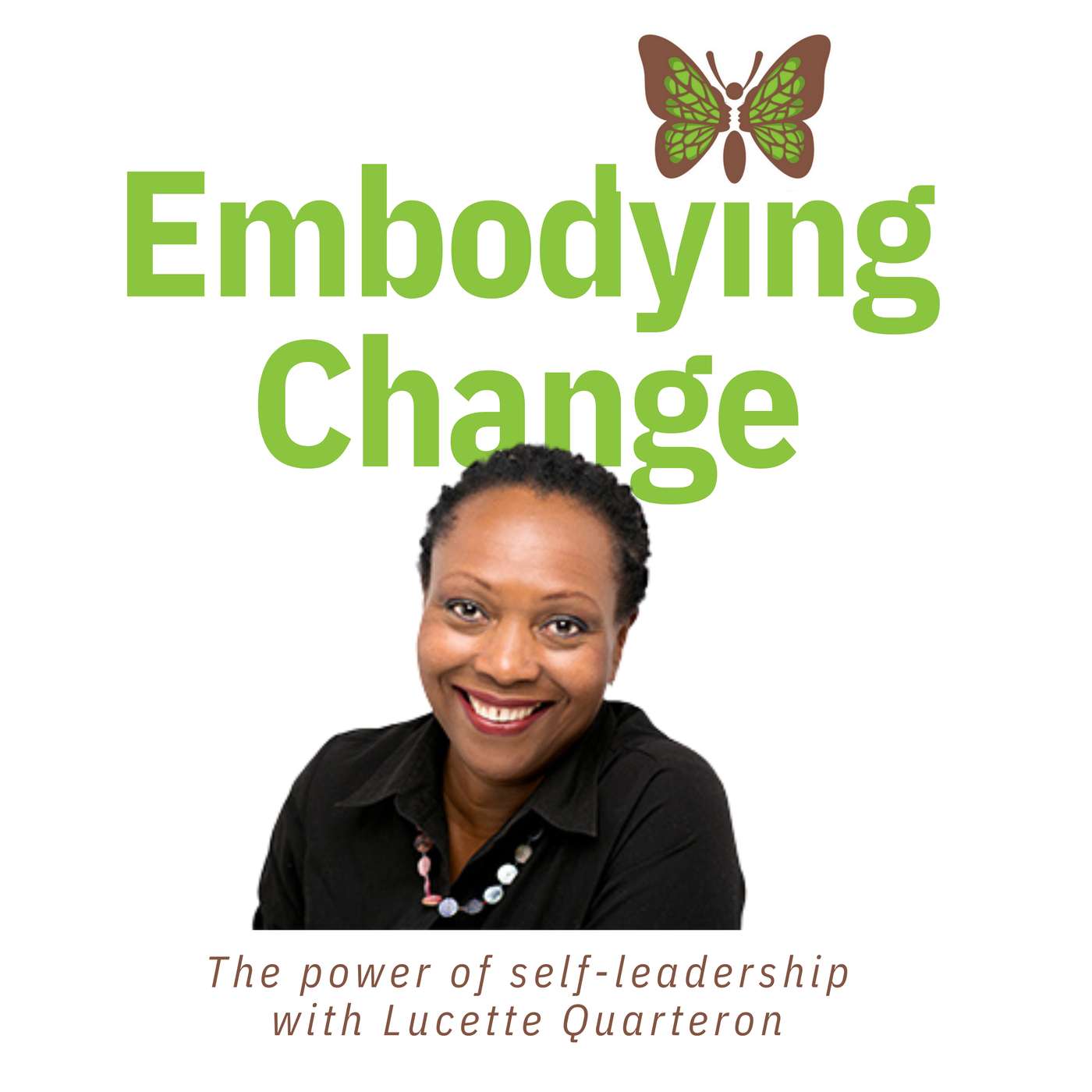
Embodying change: Transforming power, culture and well-being for people in aid39. The power of self-leadership with Lucette QuarteronIn this light-hearted episode of "Embodying Change," we sit down with Lucette Quarteron, a dynamic global citizen and visionary leader. Lucette shares her unique insights on self-leadership, the proper use of power, and conflict management, drawing from her rich personal and professional journey. Discover how Lucette transforms organizational cultures, fosters workplace trust, and empowers others to embrace change.Key Takeaways:The importance of self-leadership and healing personal wounds to lead others effectively.Strategies for managing emotions in conflict situations.The significance of standing up for your values and setting boundaries.How to build trust and acknowledge...
2024-06-0756 min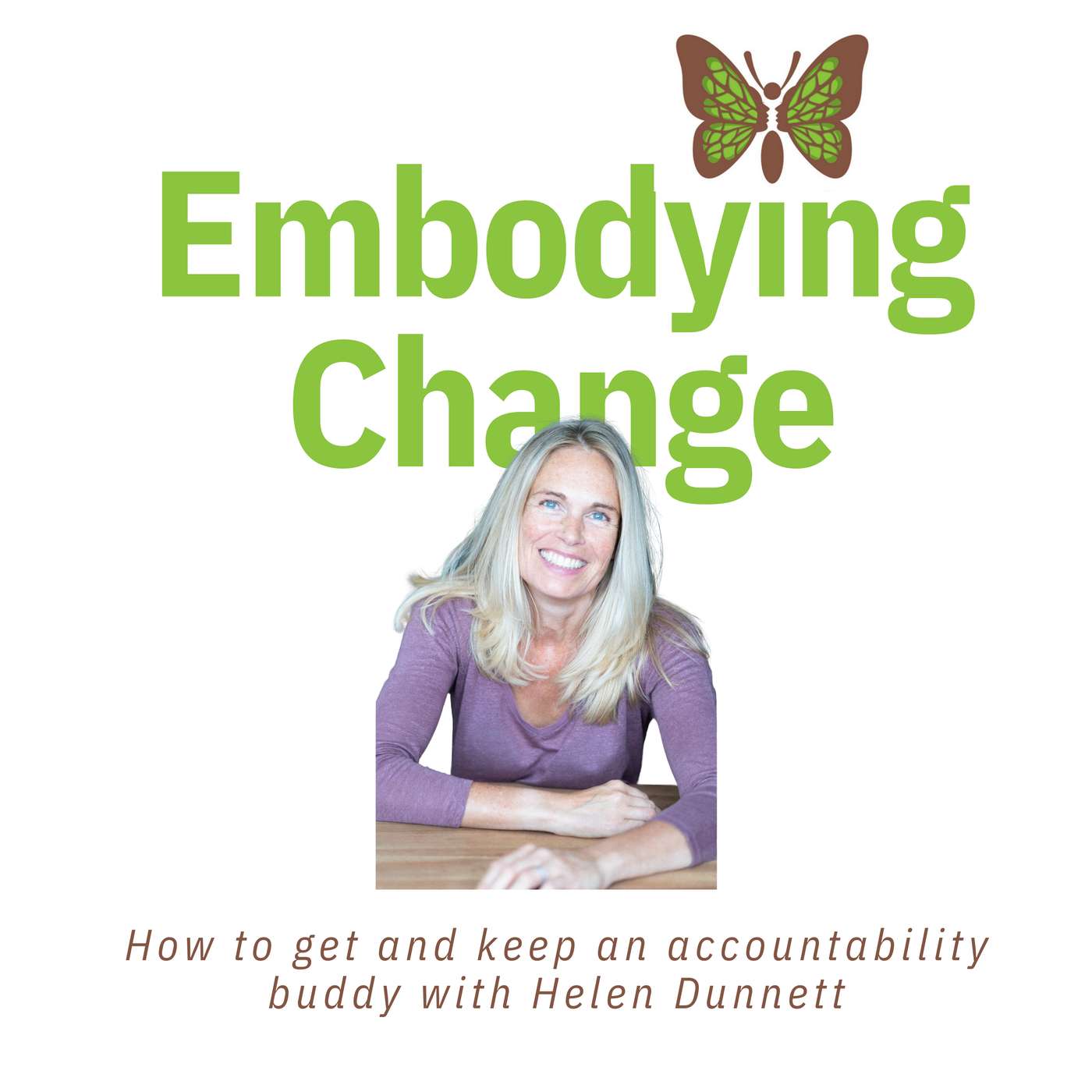
Embodying change: Transforming power, culture and well-being for people in aid38. How to get and keep an accountability buddy with Helen DunnettJoin us in this conversation with Helen Dunnett, Melissa’s accountability buddy. In today's episode, Helen shares her personal journey of transformation and discusses the powerful tools of nonviolent communication and assertiveness that have shaped her approach to coaching. She also shares the story of how she approached Melissa years ago to become her accountability buddy, and the five questions she designed to guide their weekly conversations. What You'll Learn:The story of Helen's career transition from communications and marketing to coaching.Insights into nonviolent communication and how it can transform workplace and personal relationships.Practical tip...
2024-05-311h 09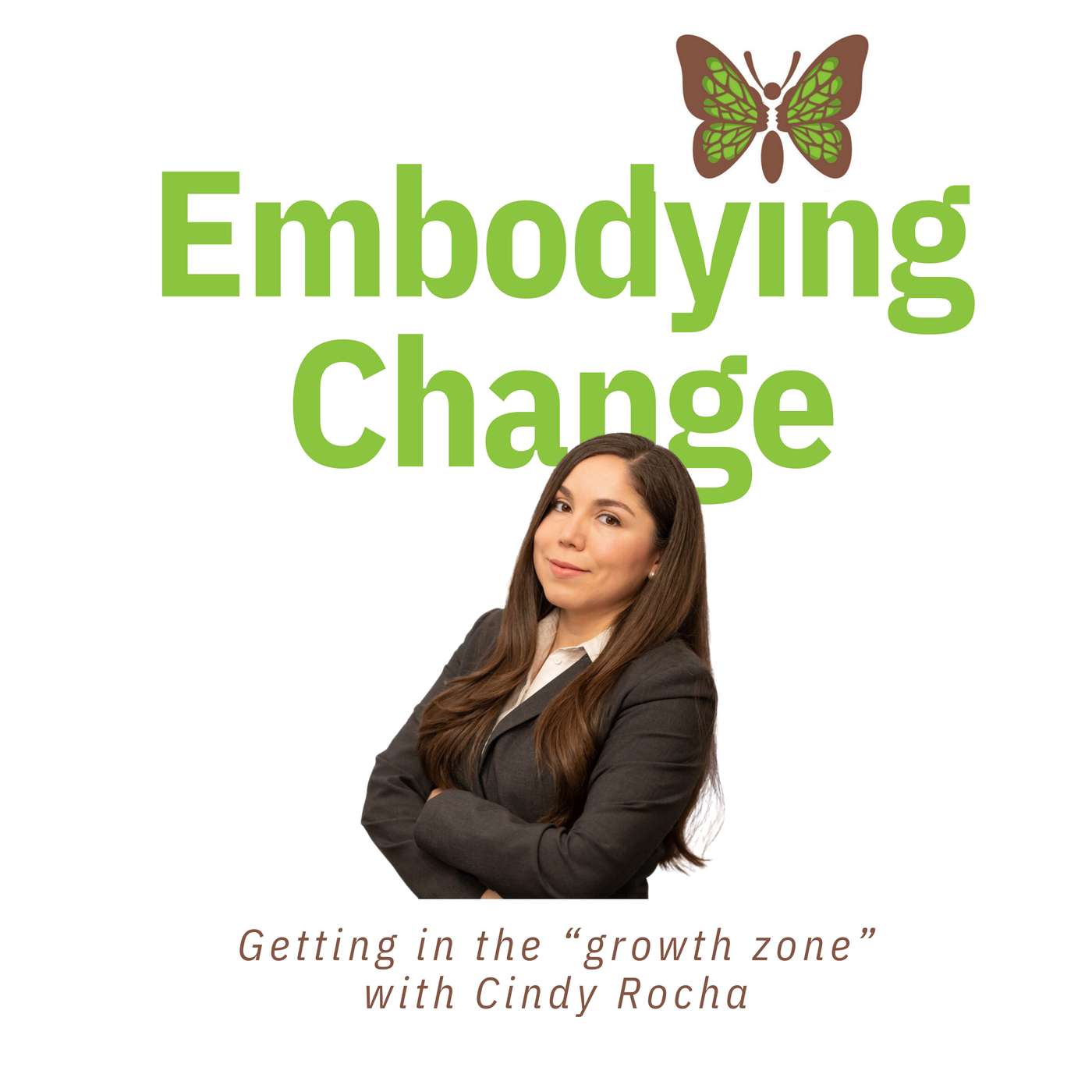
Embodying change: Transforming power, culture and well-being for people in aid37. Get in the "growth zone" with Cindy RochaJoin host Melissa Pitotti as she welcomes change advocate Cindy Rocha for a morning conversation filled with insights on embracing vulnerability and stepping out of comfort zones for transformative personal and professional growth.Highlights:1. Defining Embodying Change: Cindy explains how real change involves putting oneself in the 'growth zone' — a space beyond comfort that necessitates learning, unlearning, and relearning.2. Navigating Change and Discomfort: Discussing the discomfort that accompanies change, Cindy illustrates how adapting to new situations is crucial for development and progress.3. Impact of Technological Evolution: They delve into...
2024-05-1653 min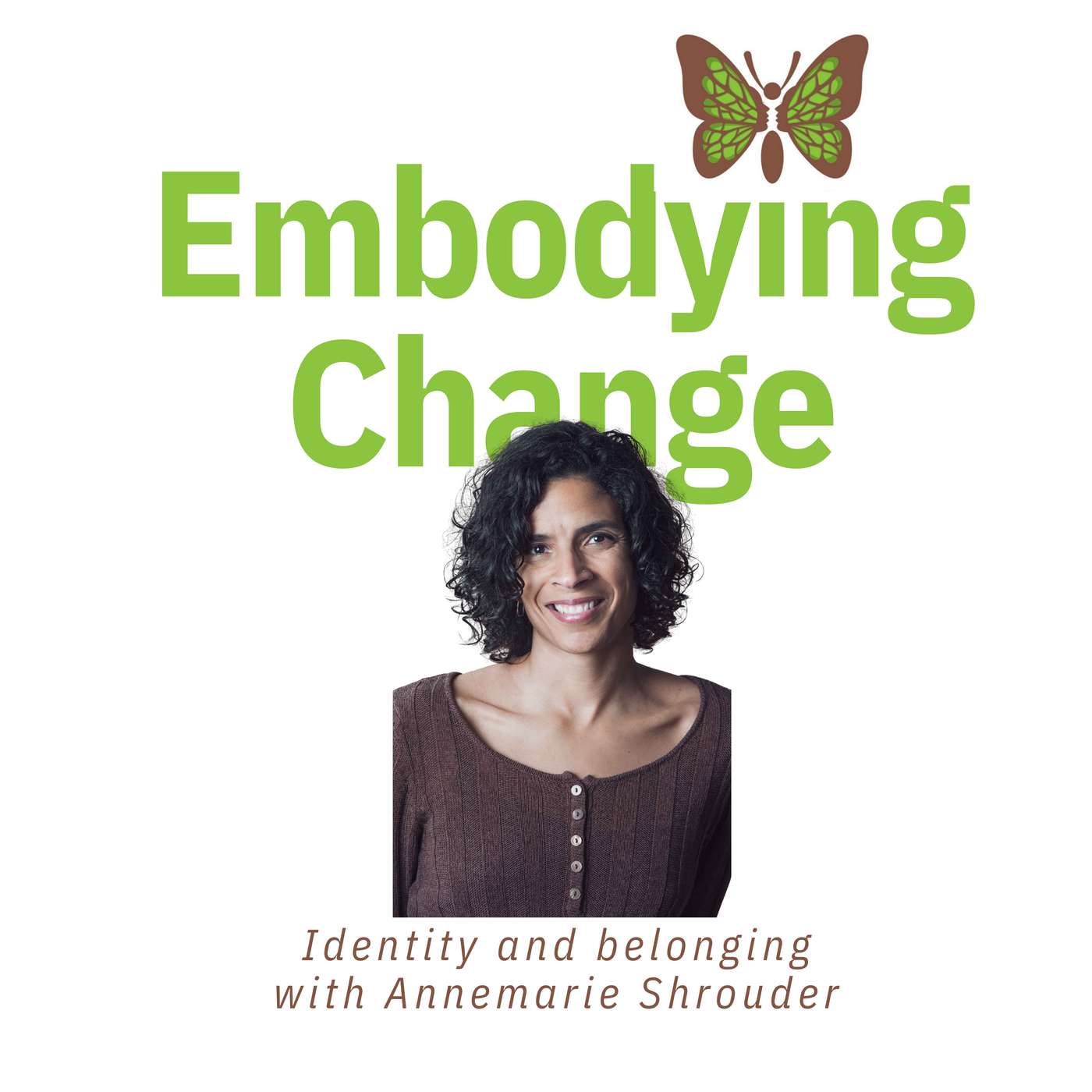
Embodying change: Transforming power, culture and well-being for people in aid36. Identity and belonging with Annemarie ShrouderAnnemarie Shrouder shares her personal journey with identity and discusses her work building inclusive cultures and communities. She and Melissa explore the difference between learning and BEING something (embodying change), the challenges of mixed race identity, creating safe and/or brave spaces, and the importance of representation, belonging and community support.Topics Discussed: Identity and embodying change Inclusion and belonging in organizations Leadership, empathy and localization Diversity in leadership and overcoming barriers Creating inclusive cultures and speaking up against injusticeKey Insights: Embodying change means living what you learn, not just talking about it Inclusion...
2024-03-2541 min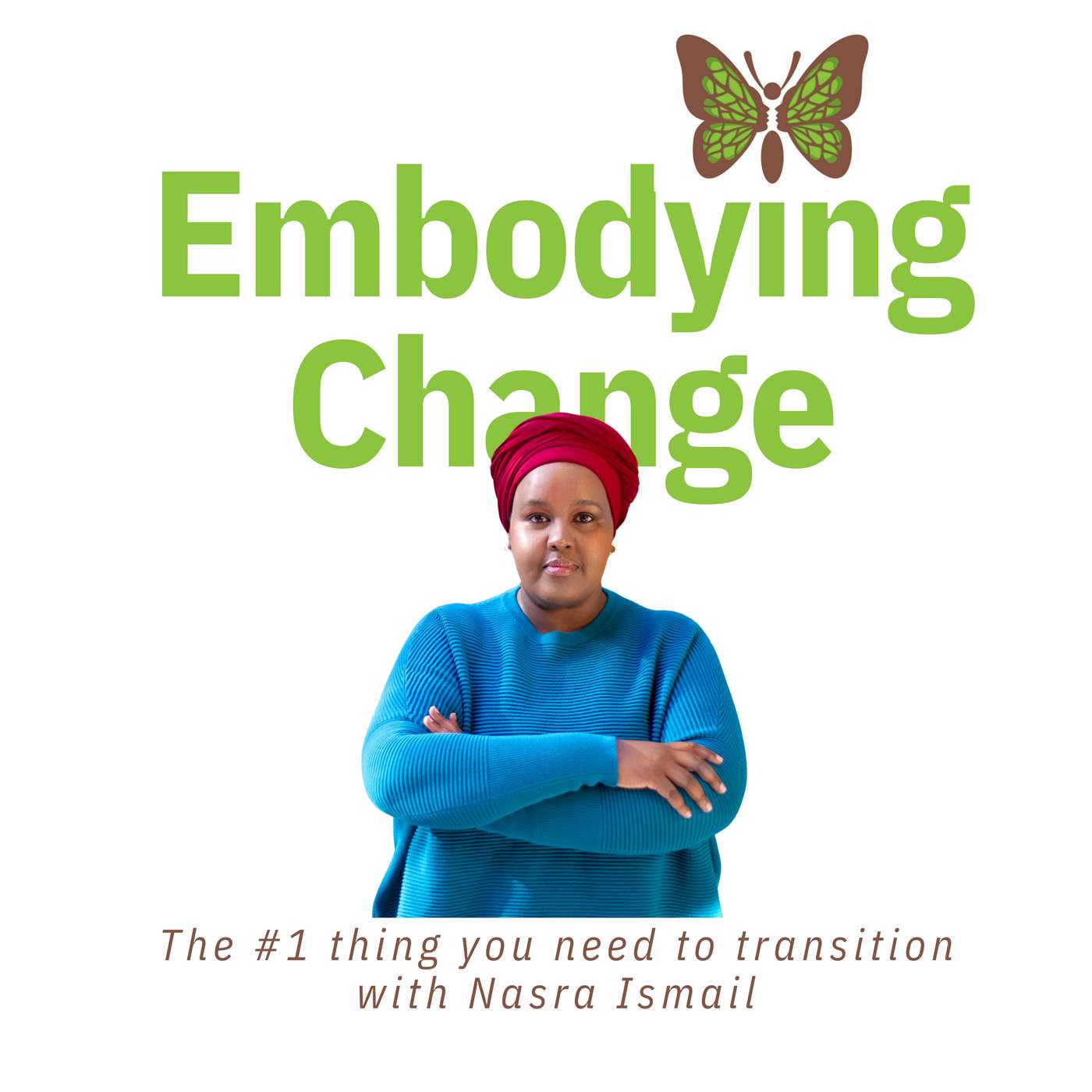
Embodying change: Transforming power, culture and well-being for people in aid35. The #1 thing you need to transition with Nasra IsmailIn this episode, Melissa Pitotti and Nasra Ismail have a candid conversation about navigating transitions, power dynamics, and the principles of localization in the humanitarian sector. They share personal anecdotes and insights into their professional journeys, discussing the challenges and opportunities they encountered along the way. From experiencing shifts in power dynamics to embracing localization as a personal and professional practice, they delve into the complexities of working in the humanitarian field and the importance of aligning personal values with professional endeavors. Join them as they explore the intersection of personal and professional growth, which could be helpful for...
2024-02-2844 min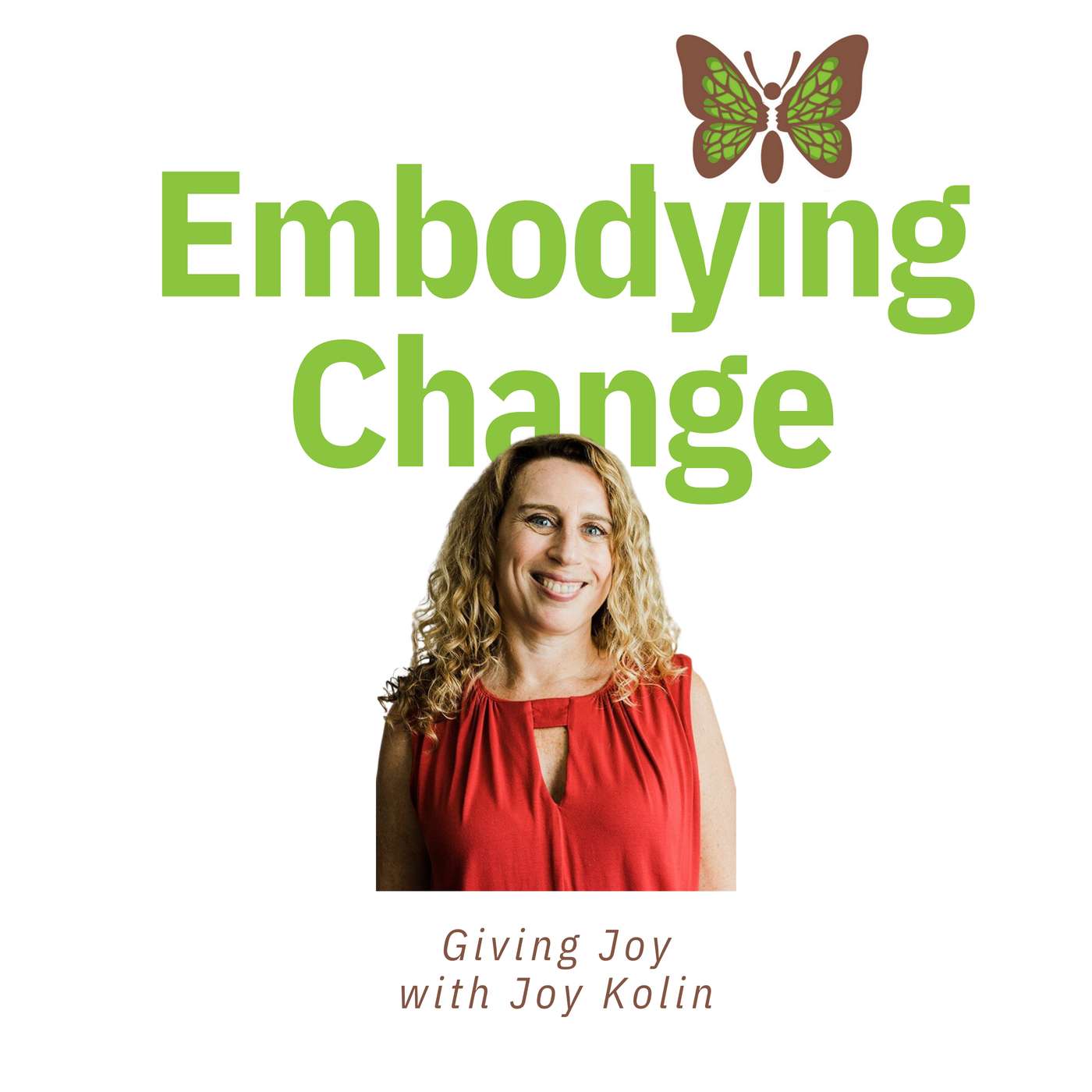
Embodying change: Transforming power, culture and well-being for people in aid34. Giving Joy with Joy KolinIn this episode Melissa speaks with Joy Kolin, Executive Director and Board President of Giving Joy. Joy has 20-years of experience in the field of international development, a career that has taken her to over 60 countries. Throughout her travels, Joy found herself touched by a common trend - the immense ability of women to affect positive change if given the resources and opportunities to do so. In 2018 she established Giving Joy as a way to harness and grow the power and the influence of women-led ventures the world over. Now, women from any country, across a...
2023-12-0845 min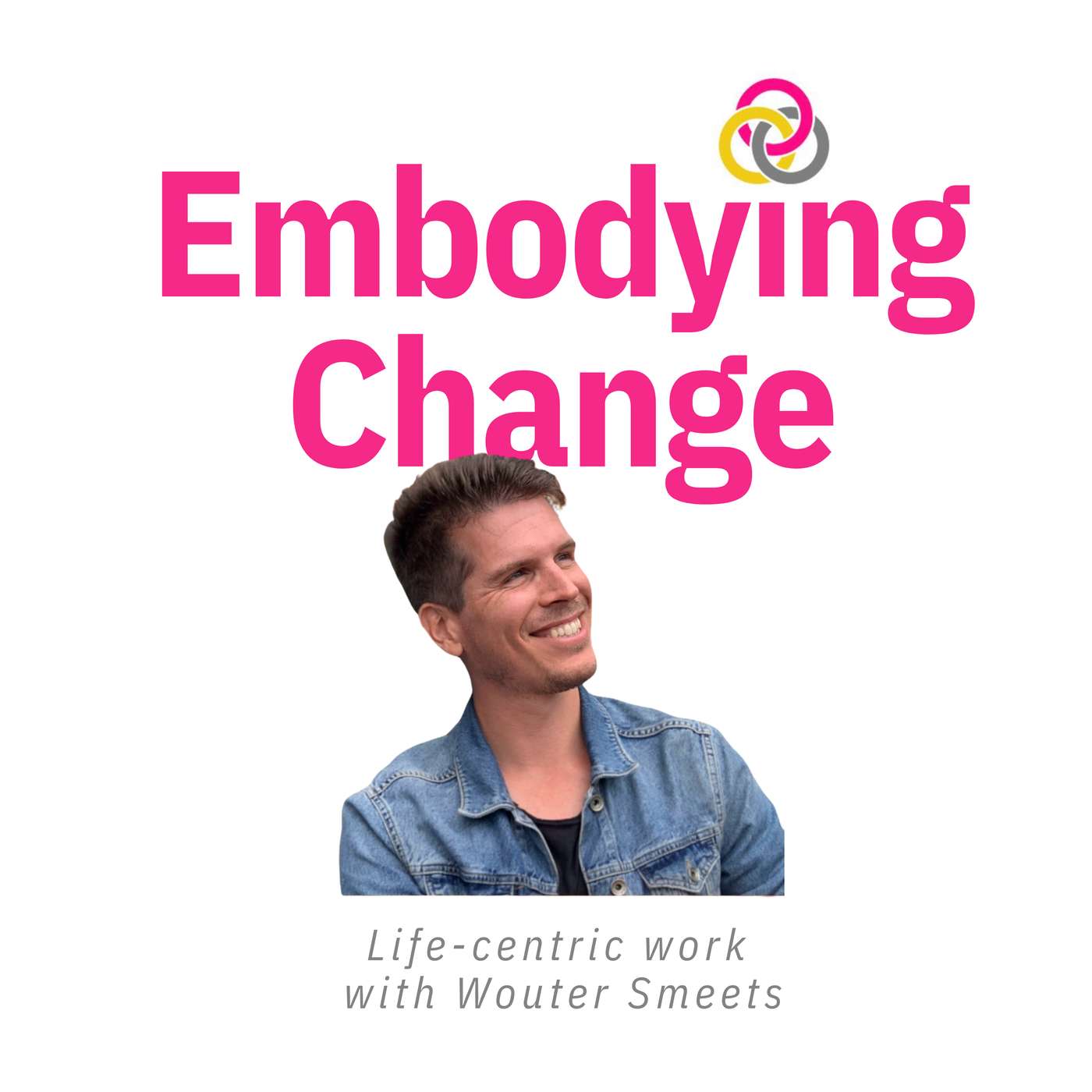
Embodying change: Transforming power, culture and well-being for people in aid33. Life-centric work with Wouter SmeetsHow can we better manage our workload, as per Commitment 8 of the Core Humanitarian Standard?* In this episode Melissa speaks with Wouter Smeets, a design-thinker, about how to re-shape our work in a way that gives us energy, rather than drains it. He gives us some good questions to ask ourselves, like: How do we design our morning routine? What makes a break a good break? What task can we do first that will put us on good footing for the rest of the day? What are some life-centric strategies for managing our calendar? He also reveals a...
2023-07-0751 min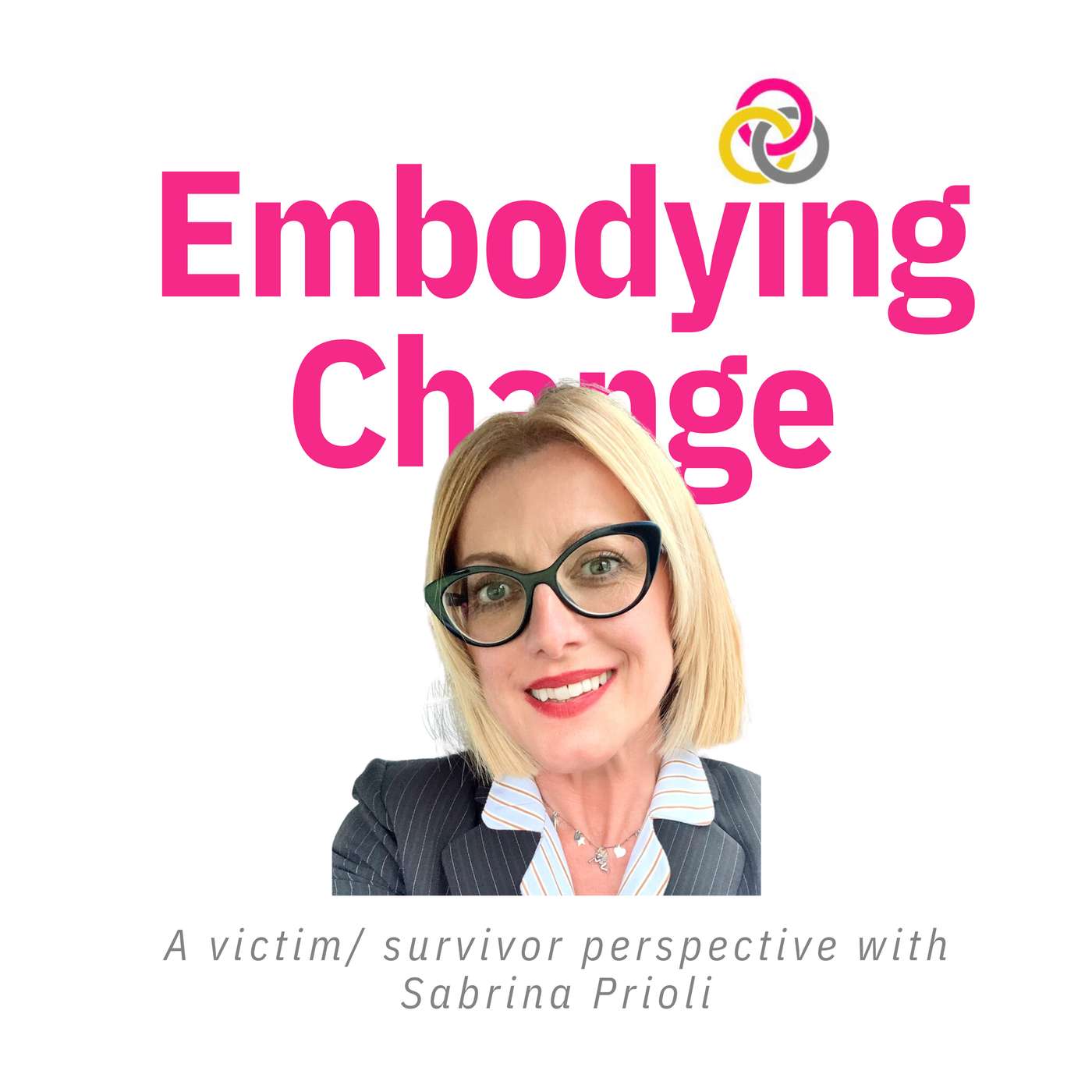
Embodying change: Transforming power, culture and well-being for people in aid32. A victim/ survivor perspective with Sabrina PrioliIn this conversation, Melissa speaks with Sabrina Prioli, the author of a memoir called “Rise up, phoenix” and one of the victim/survivors of the 2016 Terrain Compound Attacks in Juba, South Sudan. Sabrina shares her insights into how to better support victim/survivors and hold perpetrators accountable for their actions. She also explains the nuances of the words “victim” vs. “survivor” and how to cope when hearing about traumatic incidents like hers. *Note: This conversation includes references to rape and may be triggering for some listeners.* Sabrina Prioli is currently a Certified Profe...
2023-03-2453 min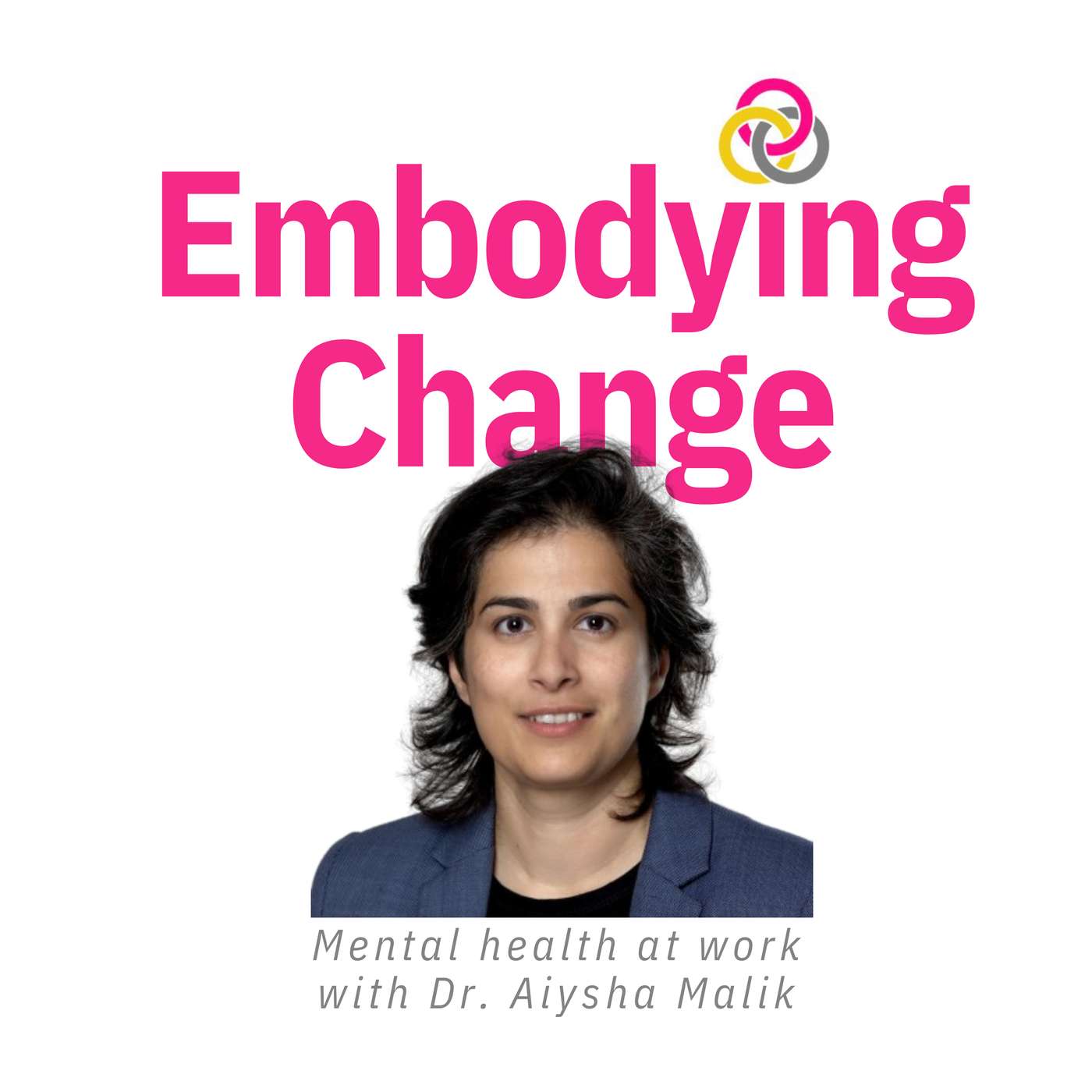
Embodying change: Transforming power, culture and well-being for people in aid31. Mental health at work with Dr. Aiysha MalikIn this episode Melissa speaks with Dr. Aiysha Malik, a mental health specialist at the World Health Organization working for a world that supports, improves, and does not harm mental health. They discuss the WHO guidelines on mental health and work and accompanying WHO-ILO policy brief. What do the guidelines say and what can you do with them? Check out the WHO guidelines on mental health at work here: https://www.who.int/publications/i/item/9789240053052 And the WHO-ILO mental health at work policy brief here: https://www.who.int/publications/i/i...
2023-02-1734 min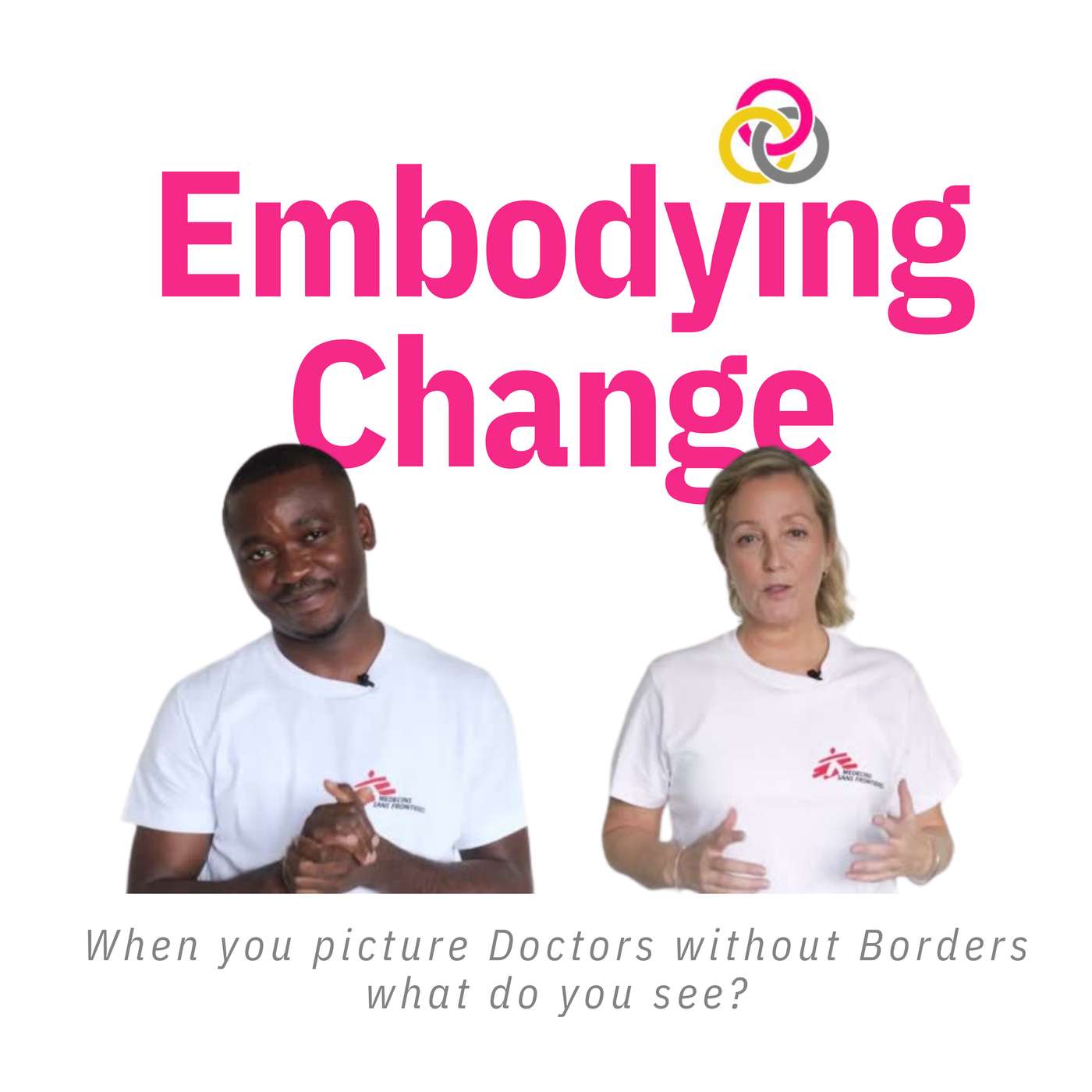
Embodying change: Transforming power, culture and well-being for people in aid30. When you picture Doctors without Borders what do you see?Melissa speaks with: Dr. Chinonso Emmanuel Okorie, an MSF doctor living in Rwanda who recently completed a mission in Yemen; Lindis Hurun, the General Director of MSF Norway; and Ryan Rodrick Beiler, a multimedia producer for MSF Norway. They and several colleagues were involved in the production of a video that has made waves in the humanitarian community for its handling of structural racism and patient dignity using a technique called “the duet.” In this podcast interview they talk about why and how the video came to be, the organisational culture changes that were happening behind the scenes, the publ...
2023-01-2740 min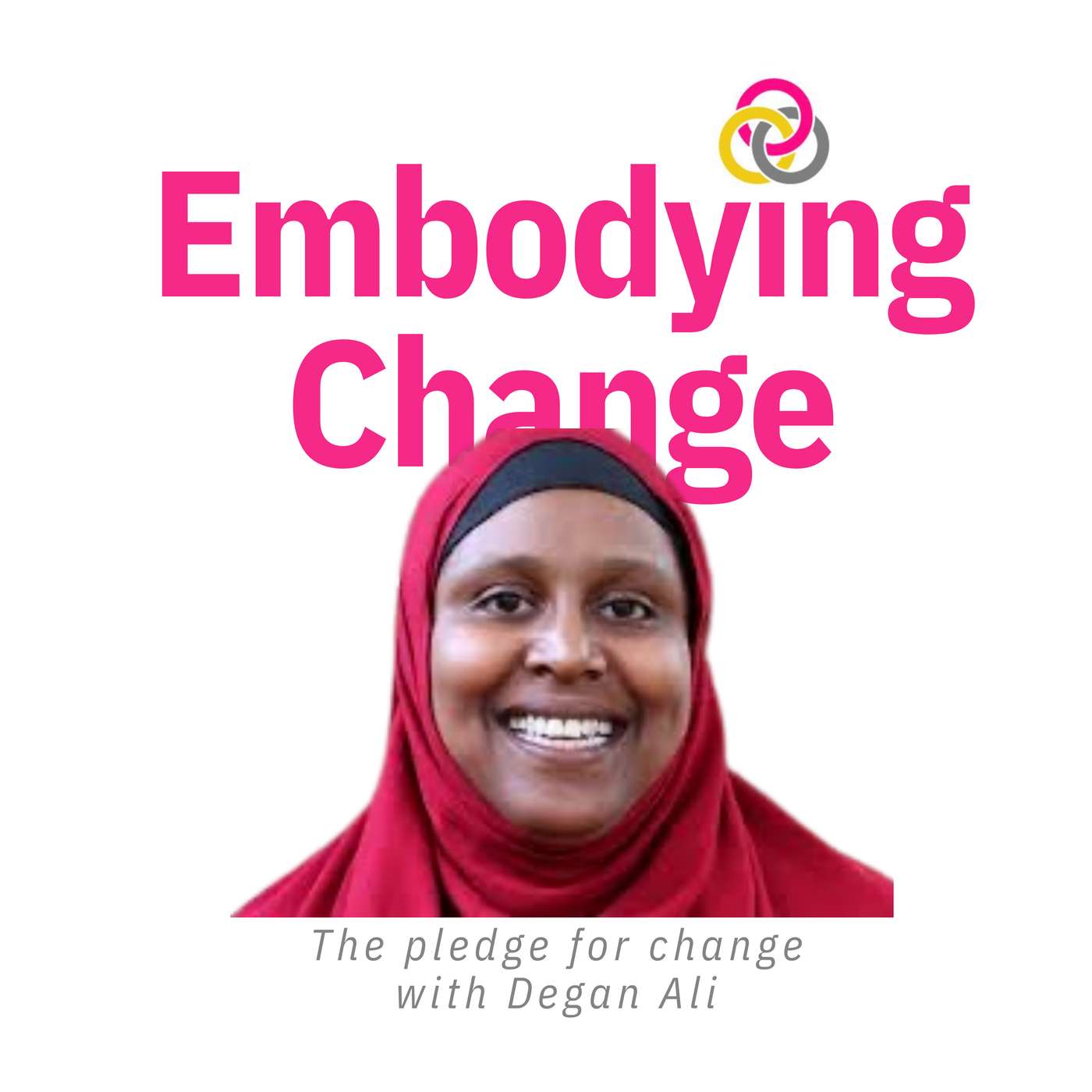
Embodying change: Transforming power, culture and well-being for people in aid29. The Pledge for Change with Degan AliIn this episode Melissa Pitotti speaks with Degan Ali, the Executive Director of Adeso, about the story behind the Pledge for Change 2030. They explore the ways in which the process that led to the Pledge was informed by lessons learned from the Charter for Change and the Grand Bargain. They consider the need for brave leaders to have safe spaces to come together on tough issues - and for leaders to be evaluated on metrics of success other than “bigger is better.” They end with reflections on equitable partnerships and accountability mechanisms. Degan Ali is Execu...
2023-01-0927 min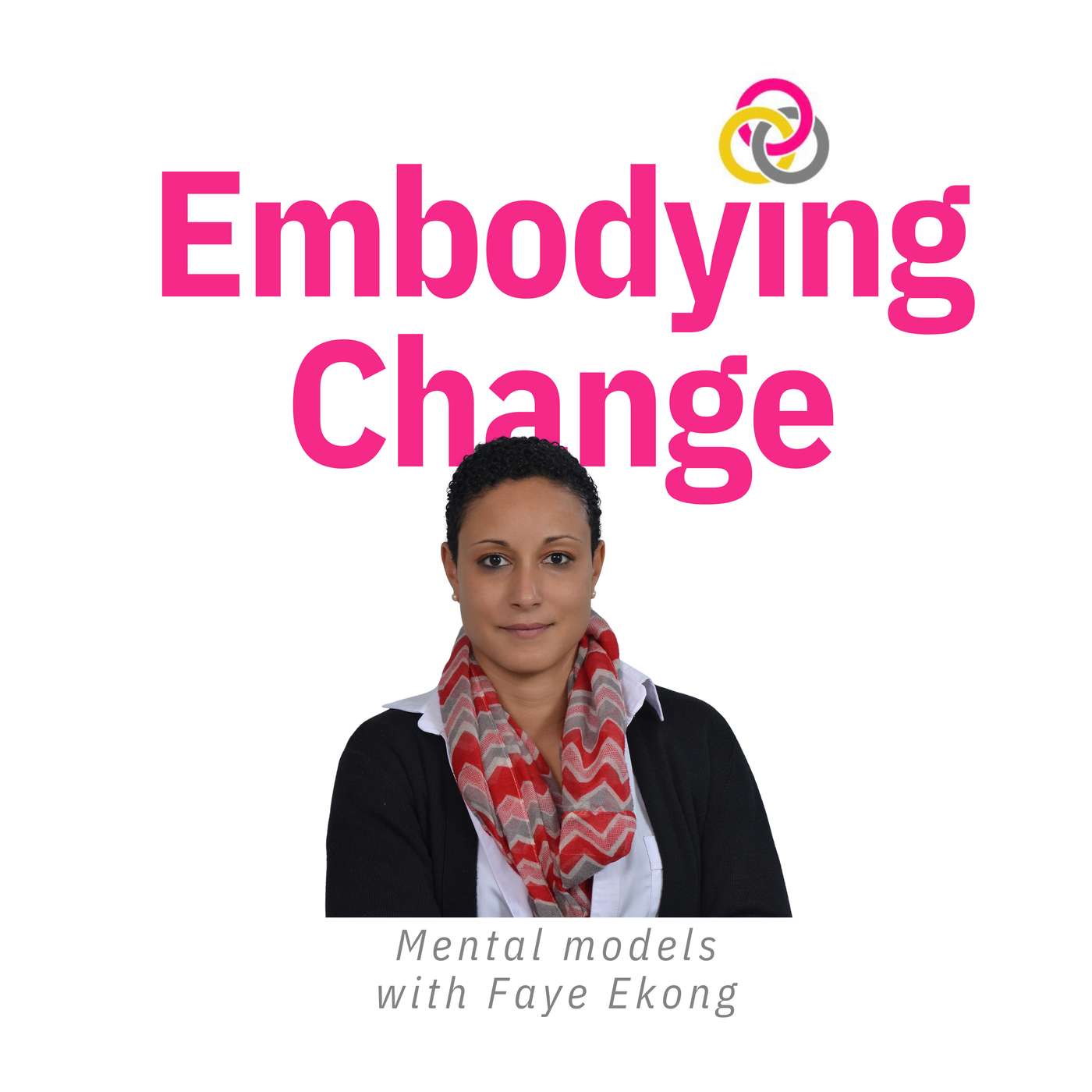
Embodying change: Transforming power, culture and well-being for people in aid28. Mental models with Faye Ekong of RavelWorks AfricaIn this episode Melissa speaks with Faye Ekong of RavelWorks Africa about common challenges in aid organisations, particularly as they relate to decolonising aid in a “post” COVID world. Faye Ekong is the Managing Director of RavelWorks Africa. She has been in Human Resources, Learning & Personal Development for over 10 years. She is an SHRM-Senior Certified Professional (SHRM-SCP), holds a Masters of Science in International Management and a Bachelor of Arts in European Studies and Modern Languages. To learn more, check out:- Ravelworks Africa: https://ravel.works/- LinkedIn: https://www.linkedin.com/i...
2022-09-1940 min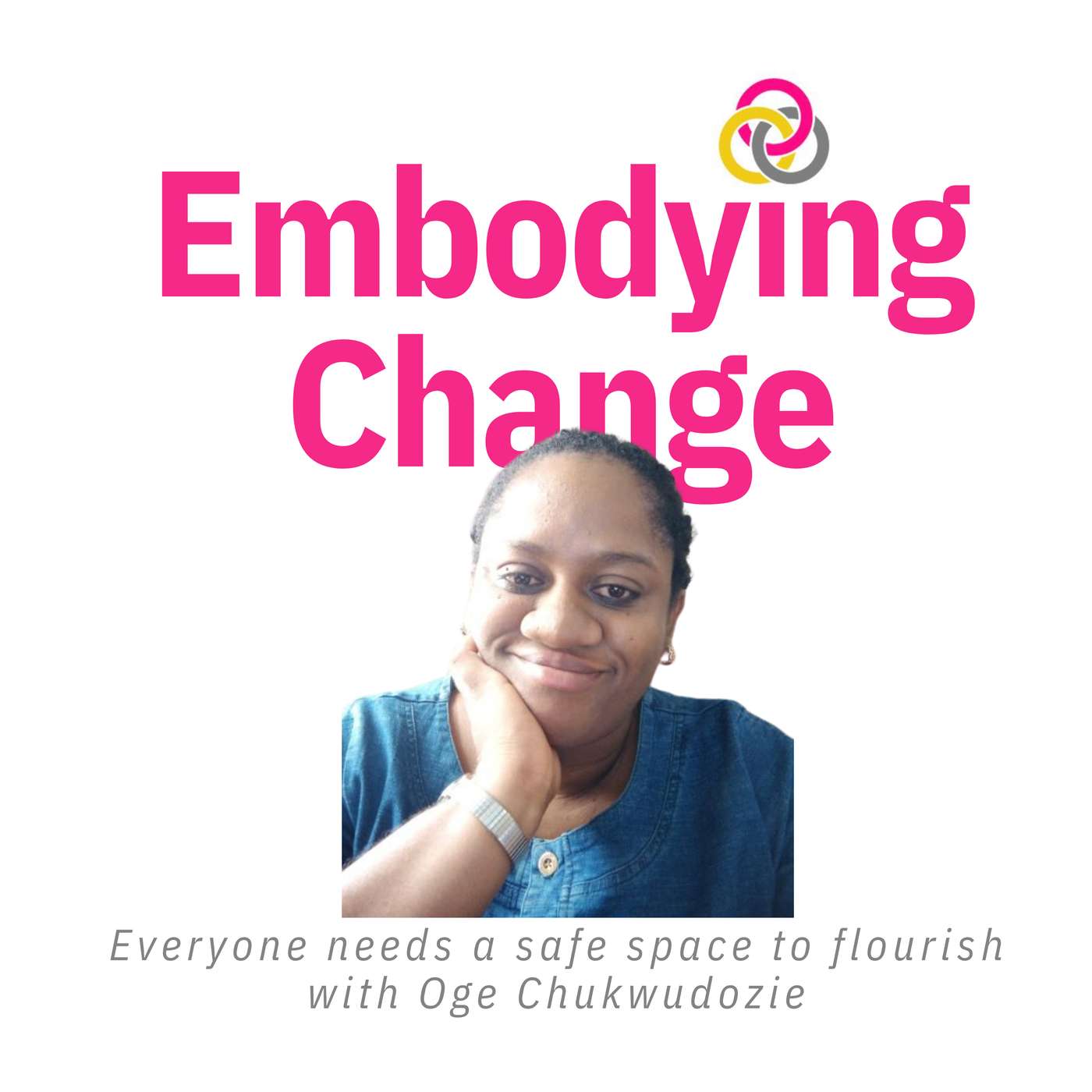
Embodying change: Transforming power, culture and well-being for people in aid27. Everyone needs a safe space to flourish with Oge Chukwudozie of RSH NigeriaMelissa speaks with Oge Chukwudozie about the Safeguarding Resource and Support Hub’s exciting pilot project accompanying 10 local Nigerian organisations as they work to change their organisational cultures. Oge emphasizes the value of cultivating a safe and supportive workplace culture and the importance of leadership “walking the talk.” Organisations often issue written policies without addressing the underlying social norms of the organisation that block the full implementation of these policies. A good place to start is for leaders to develop qualities like awareness, self-acceptance, empathy, curiosity in the face of criticism, and a learning mindset in the fa...
2022-08-2248 min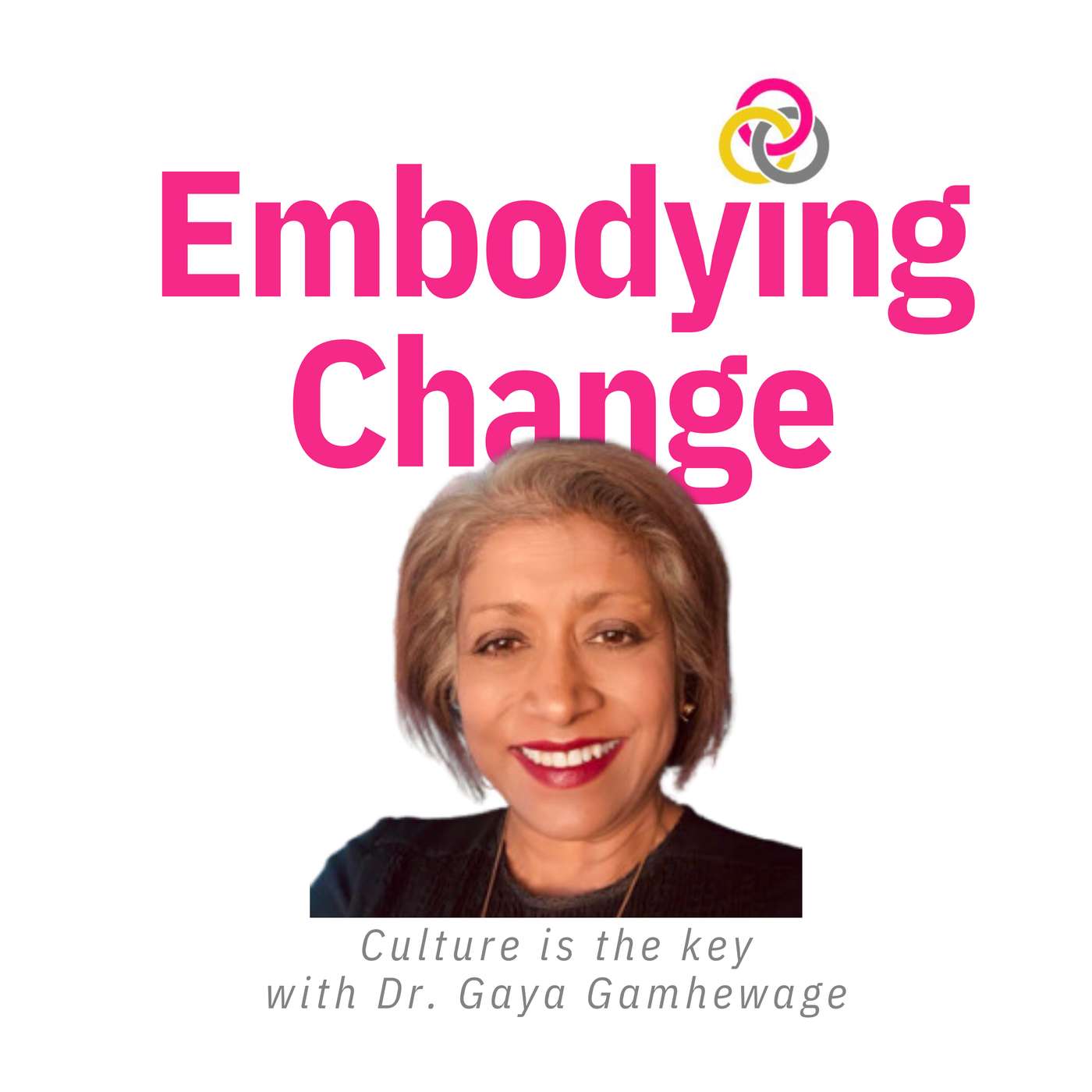
Embodying change: Transforming power, culture and well-being for people in aid26. Culture is the key with Dr. Gaya GamhewageMelissa speaks with Dr. Gaya Gamhewage about her work in the world’s premier health organisation, the World Health Organisation (WHO), to prevent and response to sexual misconduct. They talk about the importance of leaders being vocal, explicit and sincere about their commitment to living the organisation’s values. They also surface a variety of tangible things organisations can do to reduce the exploitation of power, like:- admit when there are failures, even though it is uncomfortable- give immediate, timely and sustained support to victims and survivors, irrespective of the status of...
2022-07-2148 min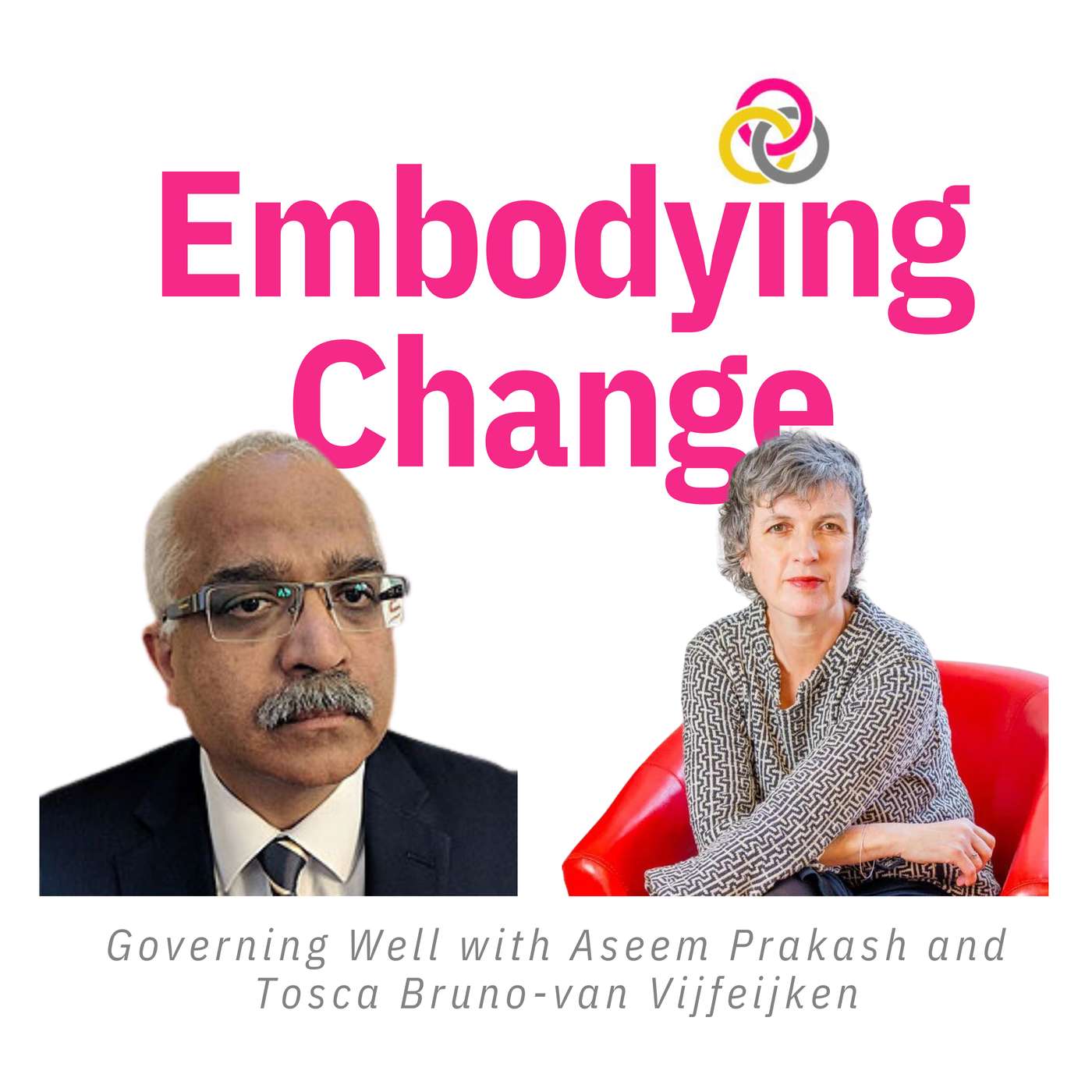
Embodying change: Transforming power, culture and well-being for people in aid25. Governing Well with Aseem Prakash and Tosca Bruno-van VijfeijkenMelissa speaks with Aseem Prakash and Tosca Bruno-van Vijfeijken about how governing boards of aid organisations can “govern well.” They discuss the power dynamics present in any group of humans, embracing difference and true diversity, prioritising lived experience, modelling behaviours, and asking smart questions. Professor Prakash studies NGOs and nonprofits, and voluntary/private regulation, environmental policy and climate governance. He is a widely published author. He has a B.A. (Hons) in Economics from St. Stephen's College, University of Delhi in 1986 and MBA from the Indian Institute of Management, Ahmedabad in 1988. Since 2002, he has served on the facu...
2022-05-1950 min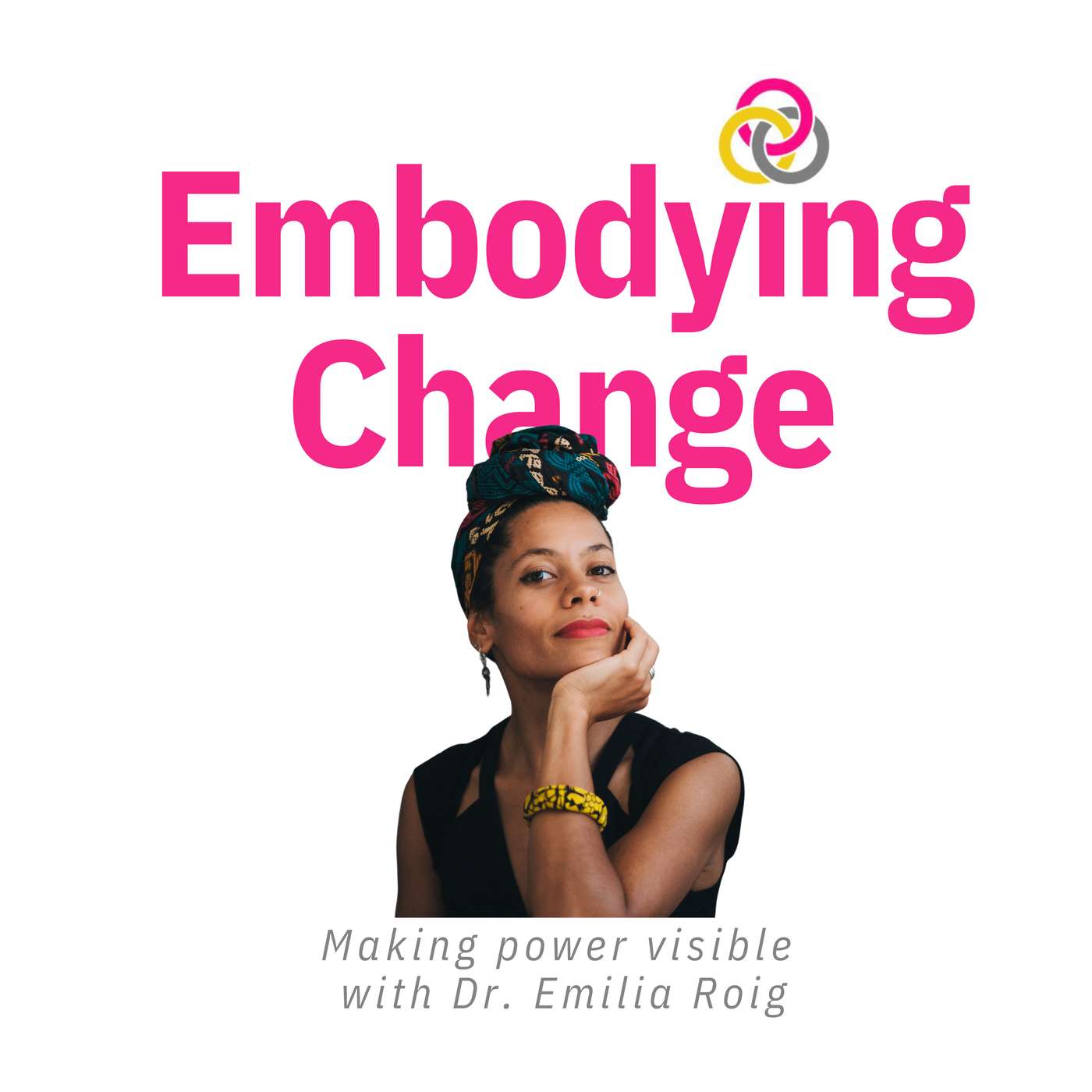
Embodying change: Transforming power, culture and well-being for people in aid24. Making power visible with Dr. Emilia RoigIn this conversation, Melissa asks Dr. Emilia Roig, the author of the book "Why We Matter," about how power shows up in our work, her concept of “radical solidarity” and self care. Accountability has been defined in the latest version of the CHS guidance note as "the process of using power responsibly, taking account of, and being held accountable by, different stakeholders, and primarily those who are affected by the exercise of such power.” Dr. Emilia Roig, author of “Why We Matter” explains in this Embodying Change episode that “a lot of people don't see power...
2022-04-1425 min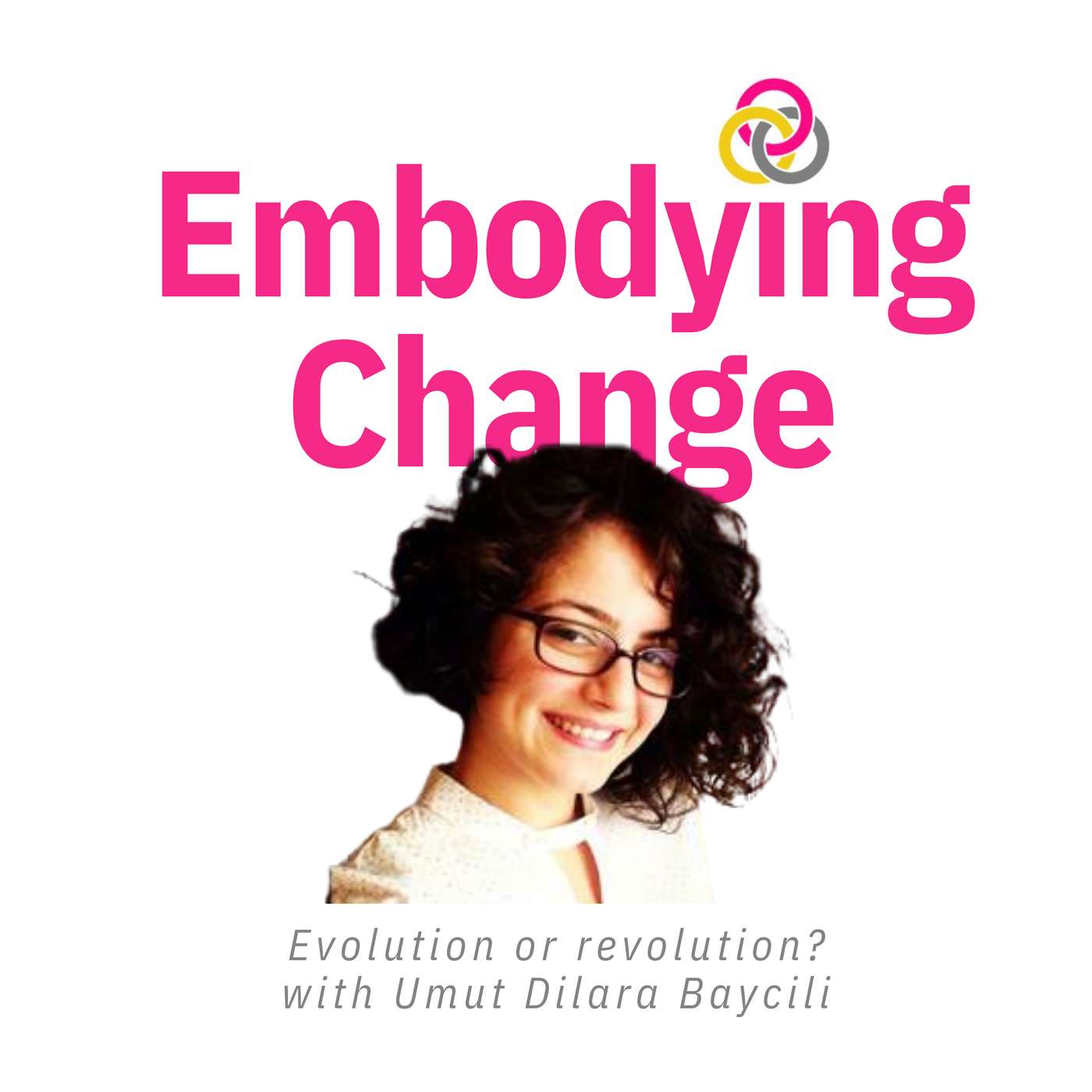
Embodying change: Transforming power, culture and well-being for people in aid23. Evolution or revolution with Umut Dilara BayciliMelissa talks about organisational culture with Umut Dilara Baycili, a child psychologist working for Mavi Kalem. This humanitarian NGO and CHS Alliance member supports women and children in Turkey with a team that includes doctors, psychologists, sociologists and social workers. It is not unusual for people working for NGOs like Mavi Kalem to experience stressful and traumatic situations. In addition, local and national NGOs often face an uphill battle in accessing sustainable funding. What can be done to support staff and treat them fairly and equitably (Commitment Eight of the Core Humanitarian Standard)?
2022-03-0937 min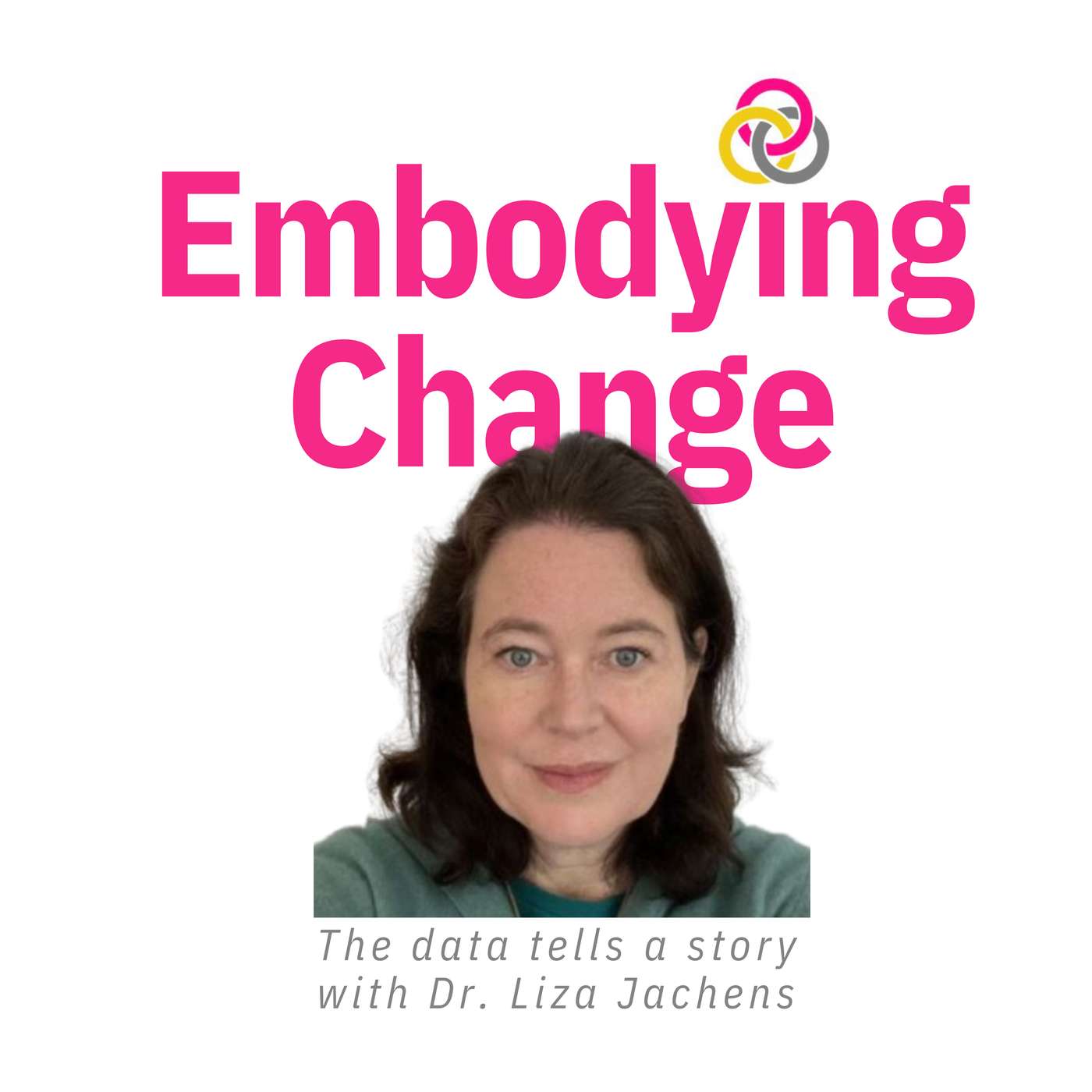
Embodying change: Transforming power, culture and well-being for people in aid22. The data tells a story with Dr. Liza JachensMelissa speaks with Dr. Liza Jachens, an occupational health psychologist, lecturer and research associate who has partnered with six major humanitarian organisations looking at their staff’s experience of work-related stress and its effects on their mental health. Humanitarian work carries a “high emotional load” often exposed to trauma. Dr. Jachens has found that humanitarians are two to three times more likely to develop a mental illness (like anxiety, depression and PTSD) than the general population. This phenomenon is often more related to organisational stressors than to operational stressors. Experiences vary according to location, gender, professional status, and ro...
2022-01-1732 min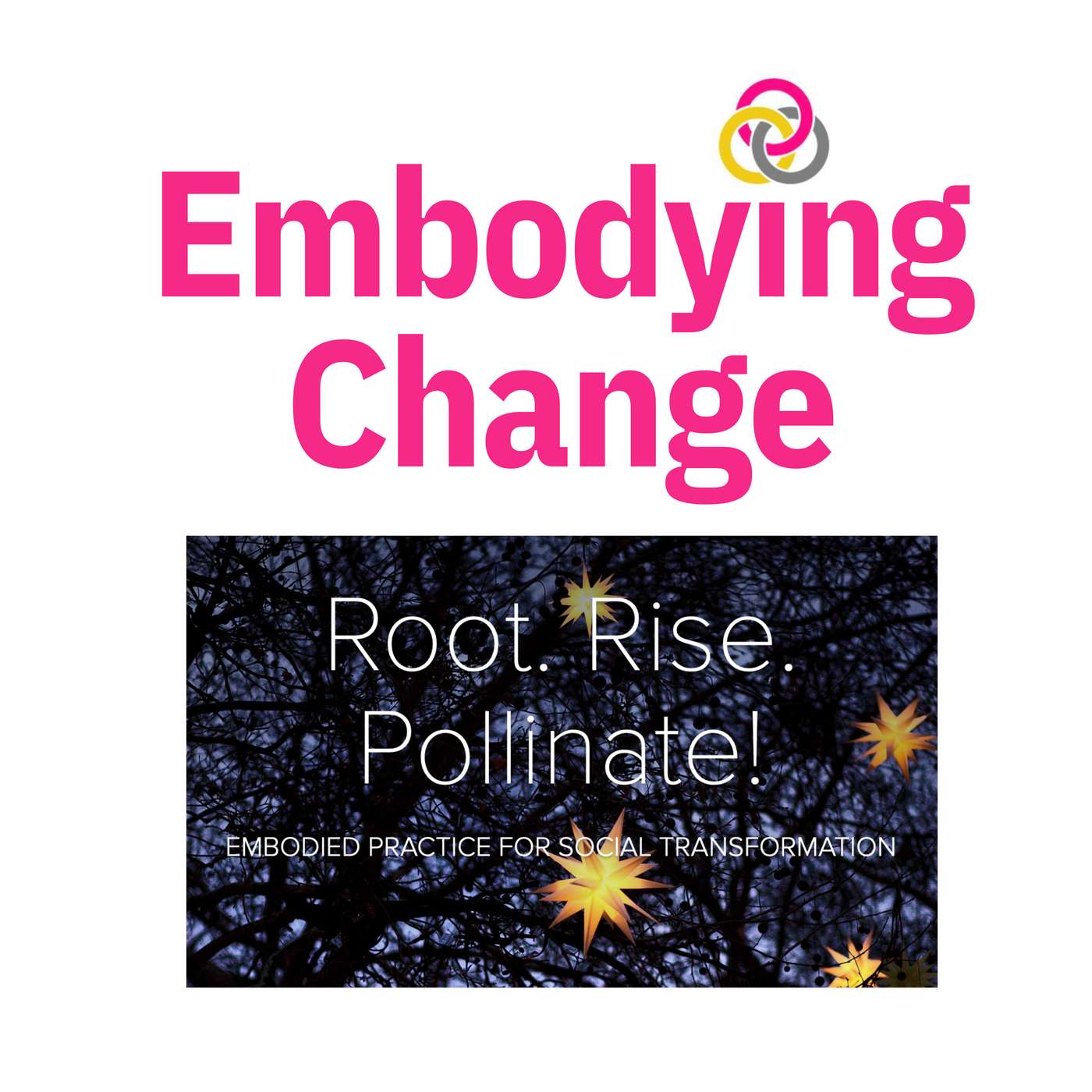
Embodying change: Transforming power, culture and well-being for people in aid21. Root. Rise. Pollinate!Shawna, Kristen and Rufaro tell the story of Root. Rise. Pollinate! and share learning from their experiment to shift culture through connecting inner and outer transformation.Shawna Wakefield, Kristen Zimmerman and Rufaro Gwarada tell the story of Root. Rise. Pollinate! - informed by their previous experiences in aid and development. They share learning from their ongoing experiment to shift culture through connecting inner and outer transformation. They discuss practicing new ways of being and doing the work, counter-balancing harmful systems, accountability, responsibility and relationship, decision-making, inter-generational dialogue and much, much more.Rufaro Gwarada is committed...
2021-10-1251 min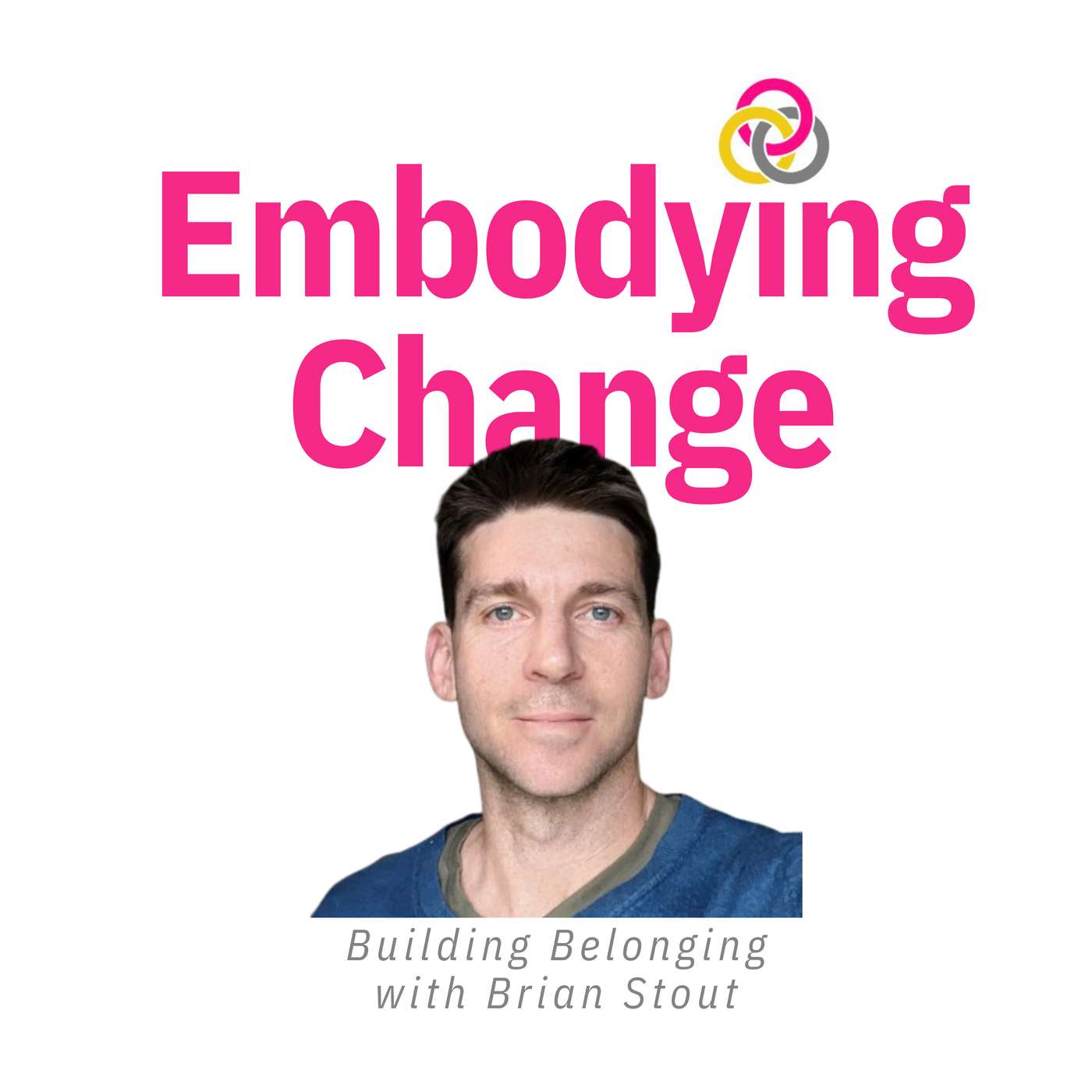
Embodying change: Transforming power, culture and well-being for people in aid20. Building Belonging with Brian StoutMelissa and Brian Stout of Building Belonging discuss how transformation happens – for individuals, groups, societies and the planet. This includes inviting others to co-create compelling visions, holding space in containers with maximal diversity, stepping into our power and agency, and embodying the change we want with accountability, compassion, grace and challenge. Brian Stout is the source for the emergent collaborative that has become Building Belonging. Drawn to mediation and social justice, he worked for anti-genocide civics organization Facing History and Ourselves in Boston. He pursued an MA in International Relations & Conflict Management at Johns Hopkins SAIS, before jo...
2021-09-2649 min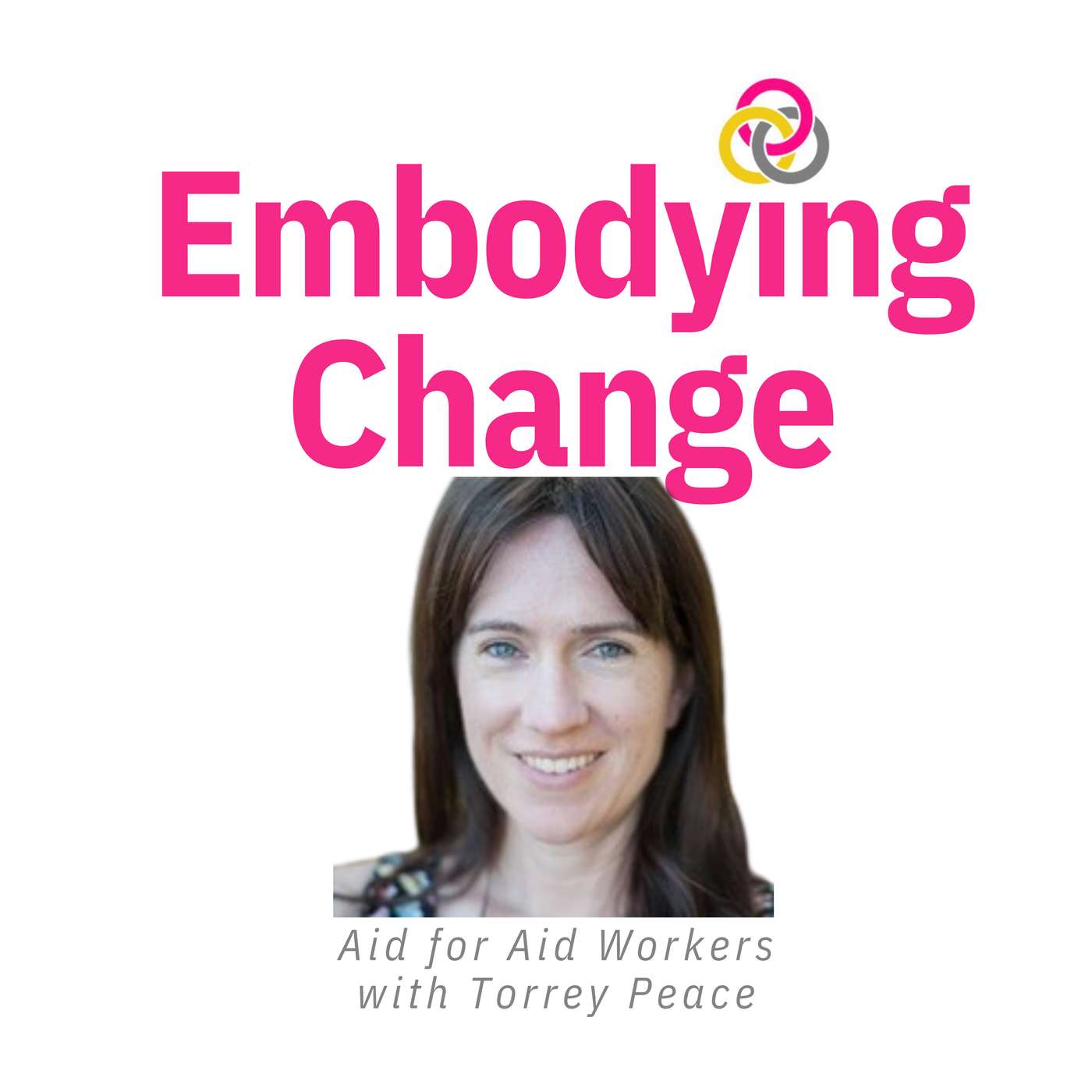
Embodying change: Transforming power, culture and well-being for people in aid19. Torrey Peace of Aid for Aid WorkersThis episode is dedicated to humanitarians around the world on World Humanitarian Day.Melissa and Torrey Peace of Aid for Aid Workers Leadership Podcast do a podcast exchange about people-centred leadership.In this conversation they cover:The importance of empowering the people closest to the problem, as they know best how to solve those problems. This relates to high performing teams as well as to the localisation conversation.Three common limiting beliefs that hold leaders back and what to do about them: “Leaders always have to be available.” Actually, leaders are more effective when they...
2021-08-1944 min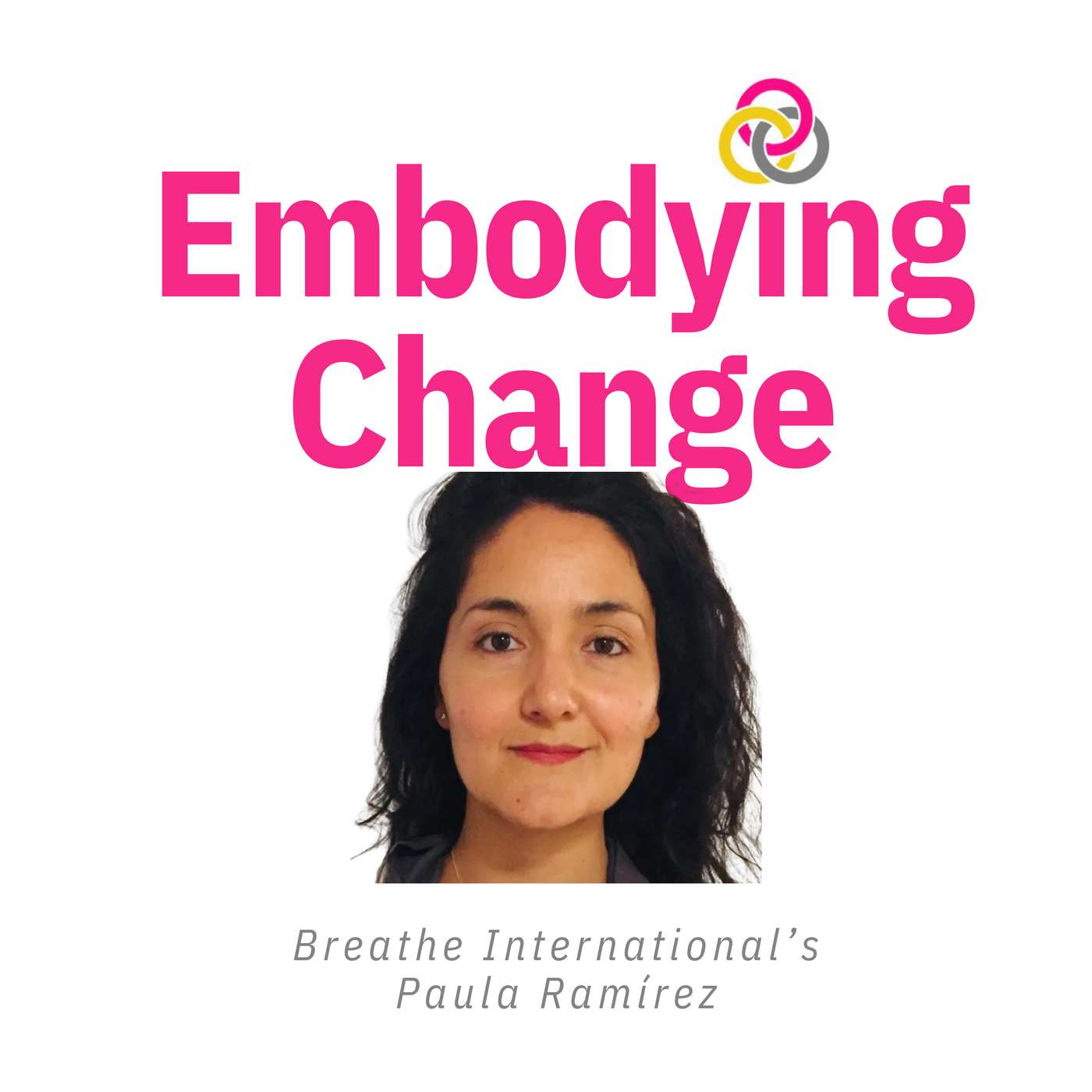
Embodying change: Transforming power, culture and well-being for people in aid18. Paula Ramírez of Breathe InternationalMelissa talks with Paula Ramírez of Breathe International.In their conversation they cover:Her journey from focusing on peacebuilding for nations to peacebuilding from within.The political aspect of being mindful and awareThe body as a source of learningHow to be a living example of mindfulness in the workplaceThe irony that humanitarian work usually doesn’t make space to get to know each other as humans Examples and benefits of leaders and emergency responders introducing awareness into their work Paula believes in the pivotal importance of promoting self-care for humanitarian actors. Studying anthropology and exper...
2021-07-2942 min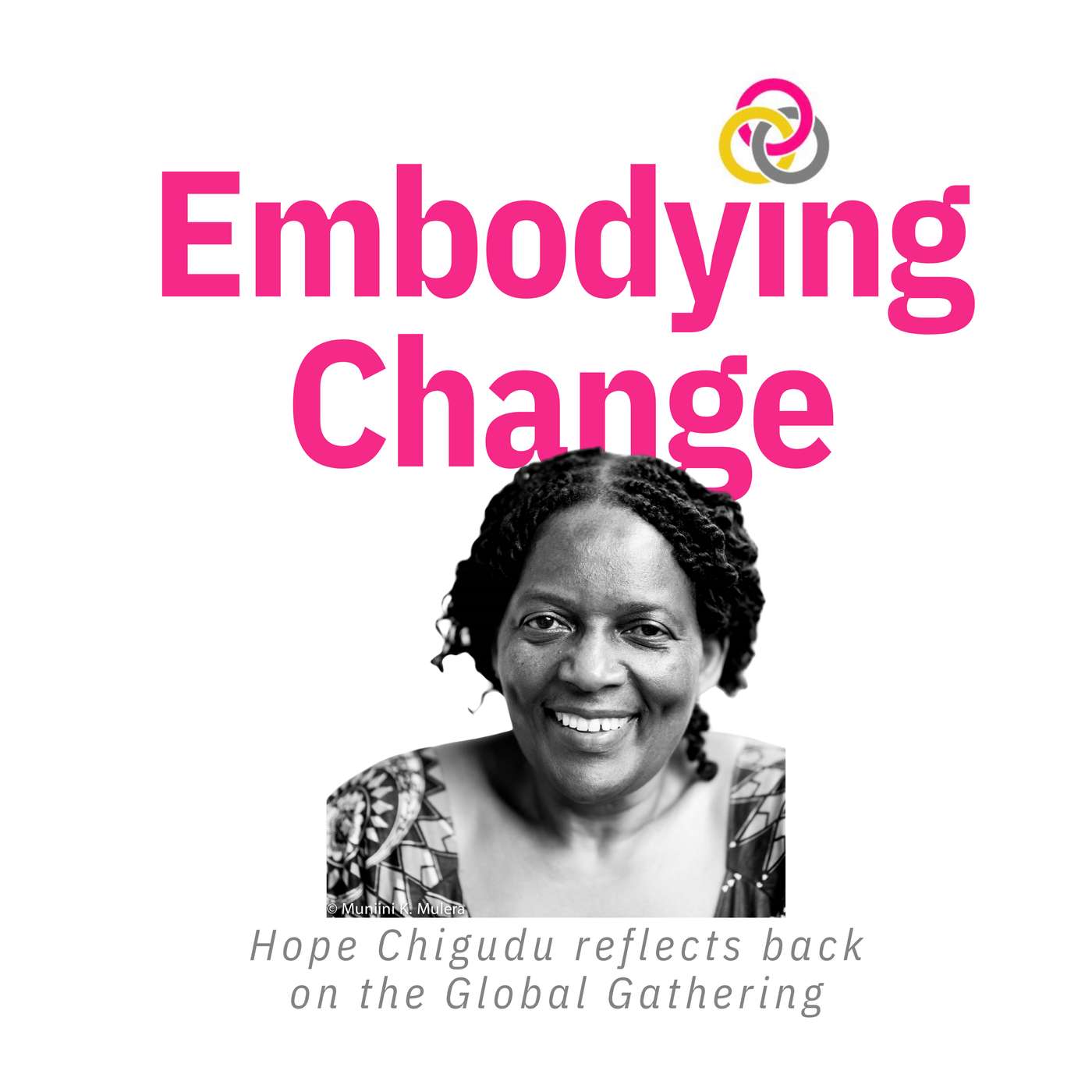
Embodying change: Transforming power, culture and well-being for people in aid17. Hope Chigudu reflects back on the Global GatheringMelissa talks with Hope Chigudu, reflecting back on the 20-21 May Global Gathering entitled “Living our values: Care, culture and power in aid organisations” held by the CHS Alliance.In their conversation they cover:The connections between power, culture and careThe importance of leadership, of using language that people can understand in different contexts, of raising awareness about power in our spacesThe value of rituals, for individuals and communitiesThe idea of accountability: In a world of external accountability and upward accountability, how are we accountable to ourselves?Ideas for how to follow-up the Global Gathering in a wa...
2021-06-2752 min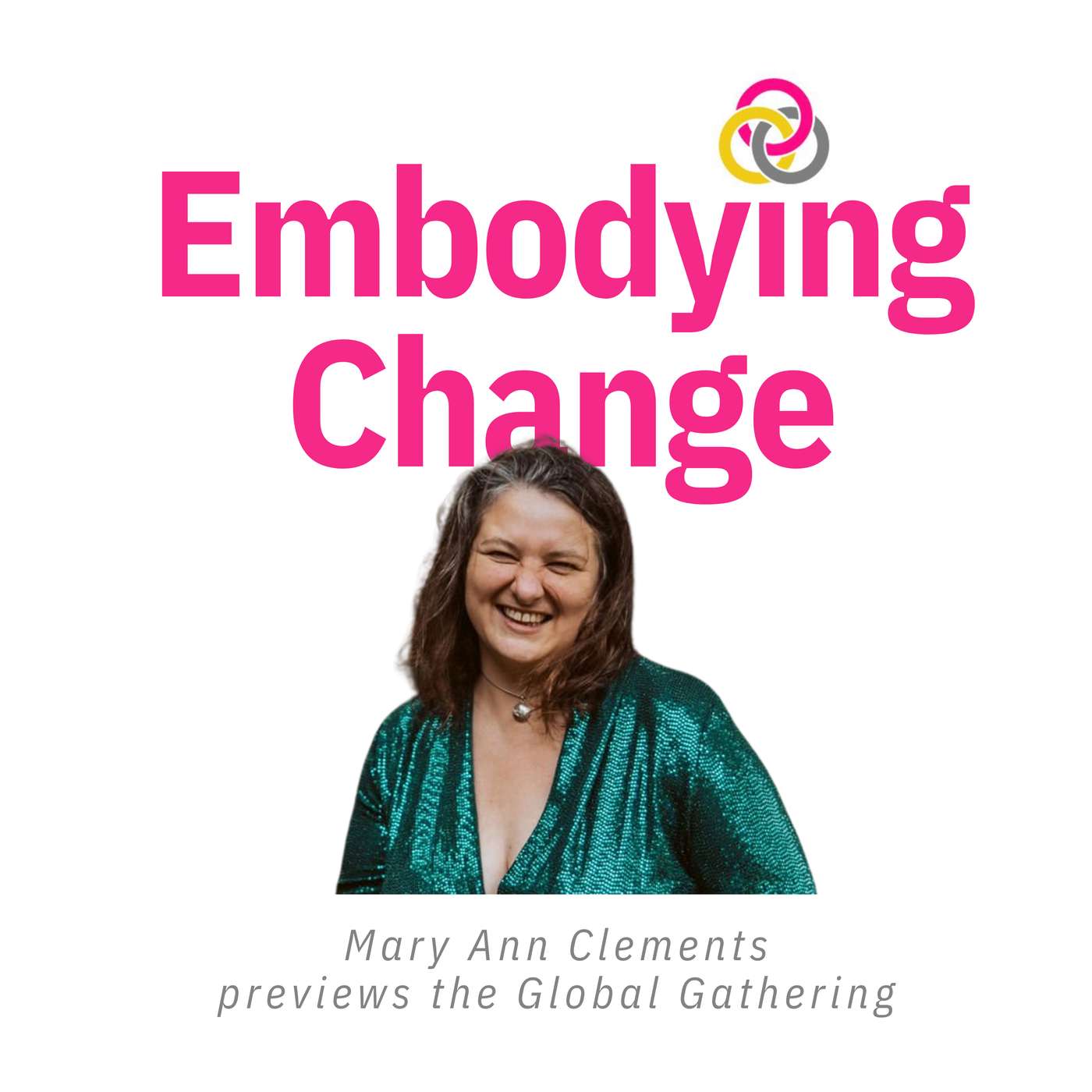
Embodying change: Transforming power, culture and well-being for people in aid16. Mary Ann Clements previews the Global GatheringIn this conversation Mary Ann Clements explains the background and the hopes for the 20-21 May 2021 CHS Alliance virtual Global Gathering on Living our values: Care, culture and power in aid organisations. This free virtual gathering is the first of its kind in our sector which will bring together leaders and practitioners who are interested in the question of how we live our values in aid organisations. The combined focus of how we treat ourselves and our staff brings together themes of power, privilege, identity, culture and wellbeing in aid. We will be asking together how do w...
2021-05-1018 min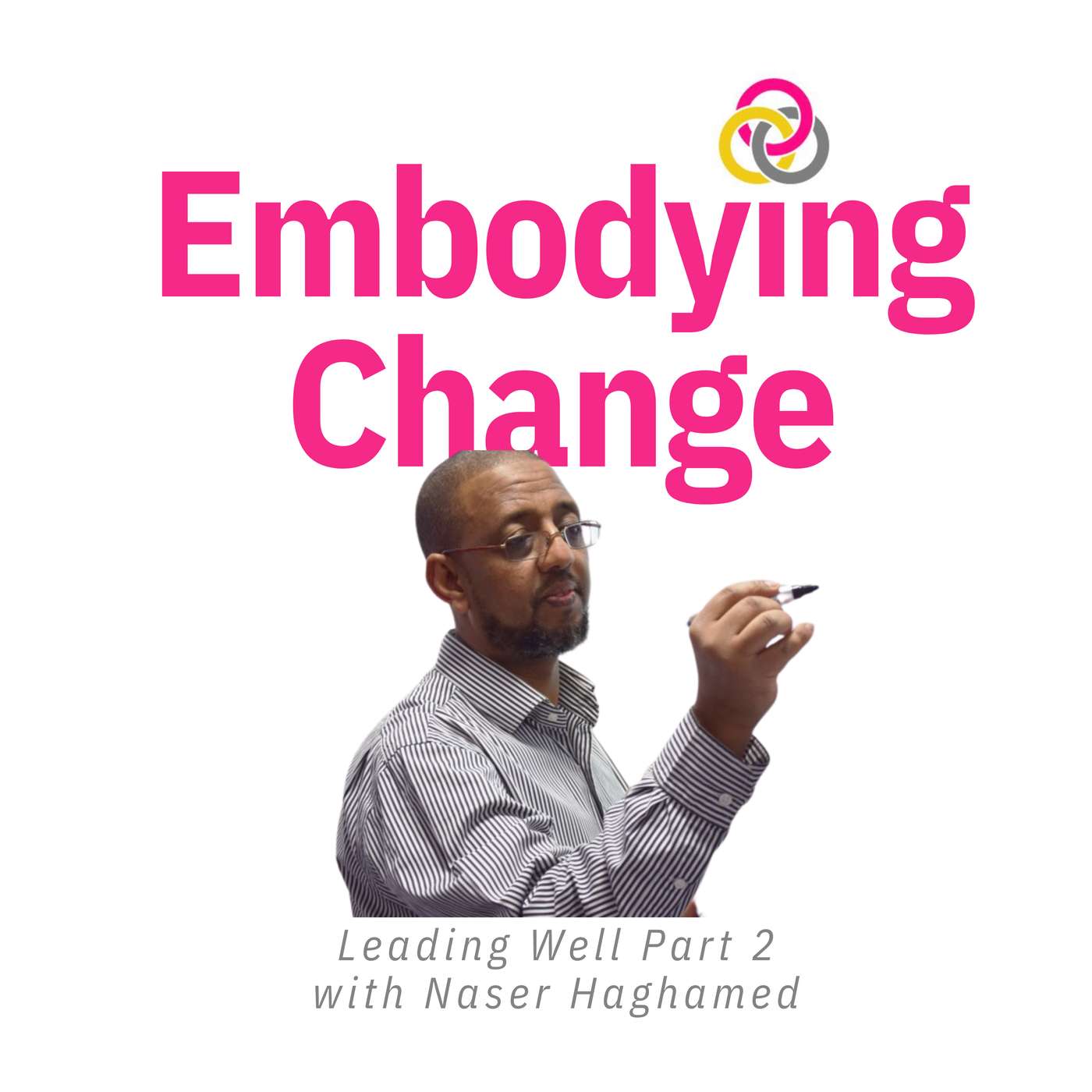
Embodying change: Transforming power, culture and well-being for people in aid15. Leading Well Part 2 with Naser HaghamedAt the end of January 2021 Naser Haghamed completed his 5-year stint as the CEO of Islamic Relief Worldwide. Melissa reflects back with him about leadership, staff well-being and organisational culture for the ICVA-CHS Alliance “Leading Well” project. In their conversation they consider What it’s like to be in constant “firefighting mode” as a CEO of an organization operating in multiple conflict zones and navigating complex donor and regulatory requirementsThe importance of constant, transparent communication with teams and stakeholders, including engaging Boards on the issue of staff well-being What leaders can do to set the tone at th...
2021-04-1438 min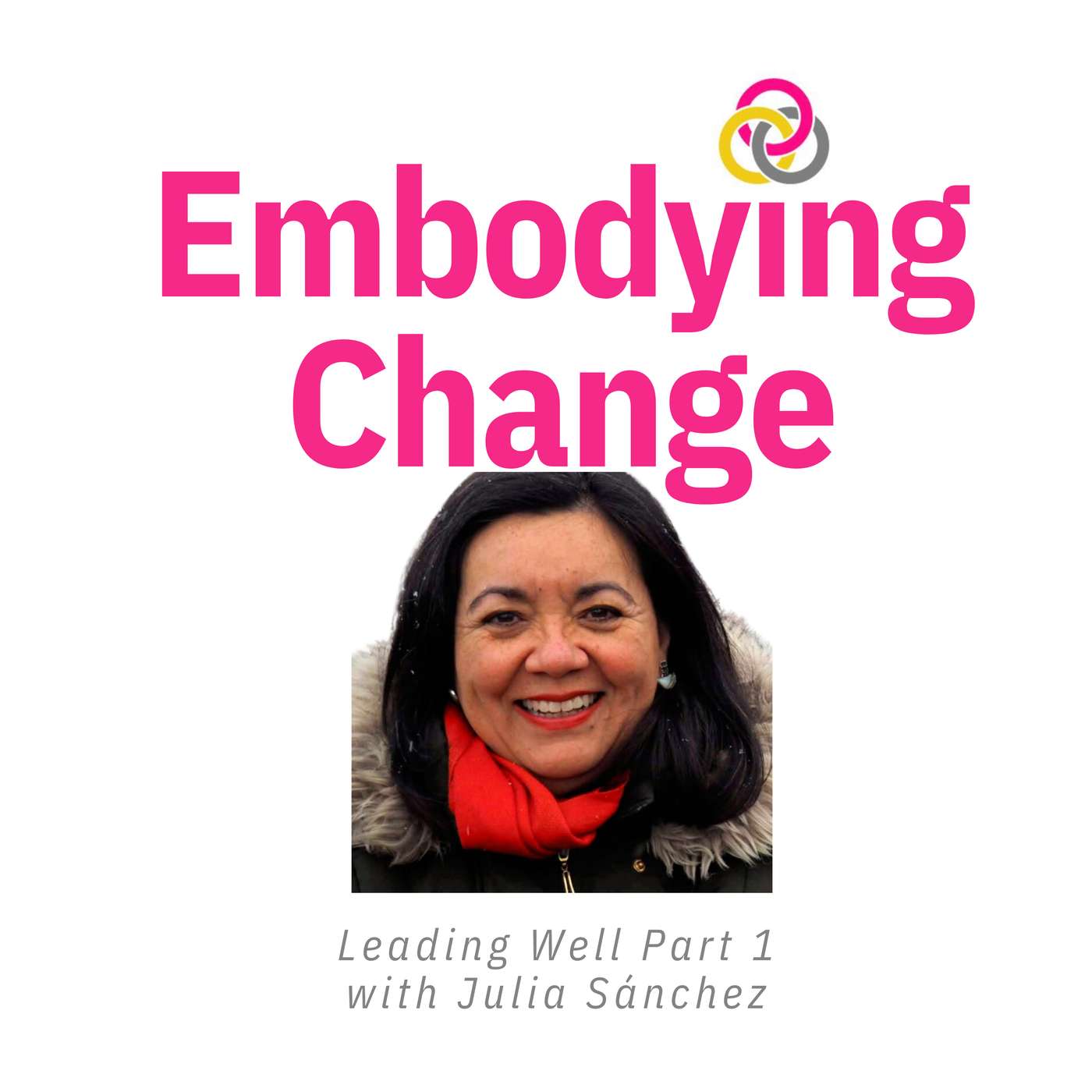
Embodying change: Transforming power, culture and well-being for people in aid14. Leading Well Part I with Julia SánchezMelissa talks with Julia Sánchez, the former Secretary General of ActionAid International. The conversation was part of an ICVA-CHS Alliance joint project engaging aid leaders on the issues of staff well-being and supportive organisational culture. ActionAid’s ten principles of feminist leadership include elements that explicitly link to staff well-being, like self awareness, self-care and caring for others. They also include ingredients for a supportive organisational culture like: dismantling bias, inclusion, sharing power and using it responsibly and transparently, accountable collaboration, courage (learning from mistakes rather than fearing failure), respectful feedback and zero tolerance for discrimination and...
2021-02-2546 min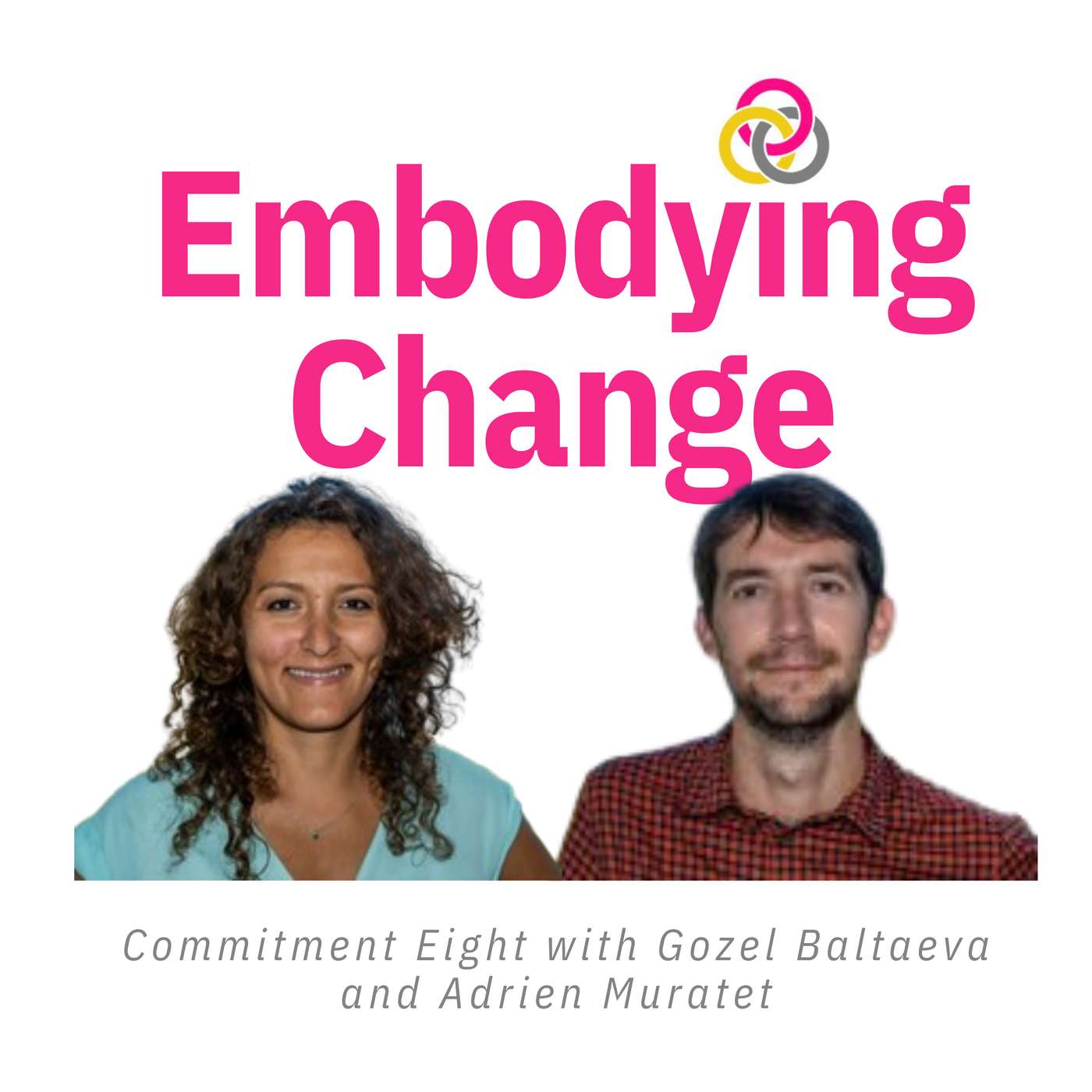
Embodying change: Transforming power, culture and well-being for people in aid13. Commitment Eight with Gozel Baltaeva and Adrien MuratetMelissa talks with Gozel Baltaeva and Adrien Muratet about Commitment Eight of the Core Humanitarian Standard. What are the data and the practitioners saying about people management in the humanitarian sector, especially during COVID?Gozel Baltaeva was the People Management Adviser and point of contact for tailored support on all people management topics for CHS Alliance members. With a master’s degree in Business Administration and Strategic Human Resources Management, Gozel offers 15-plus years of experience leading multi-cultural and multi-skilled teams in challenging environments working with MSF, ACF and ICRC. Gozel loves helping HR professionals improve their st...
2020-12-1637 min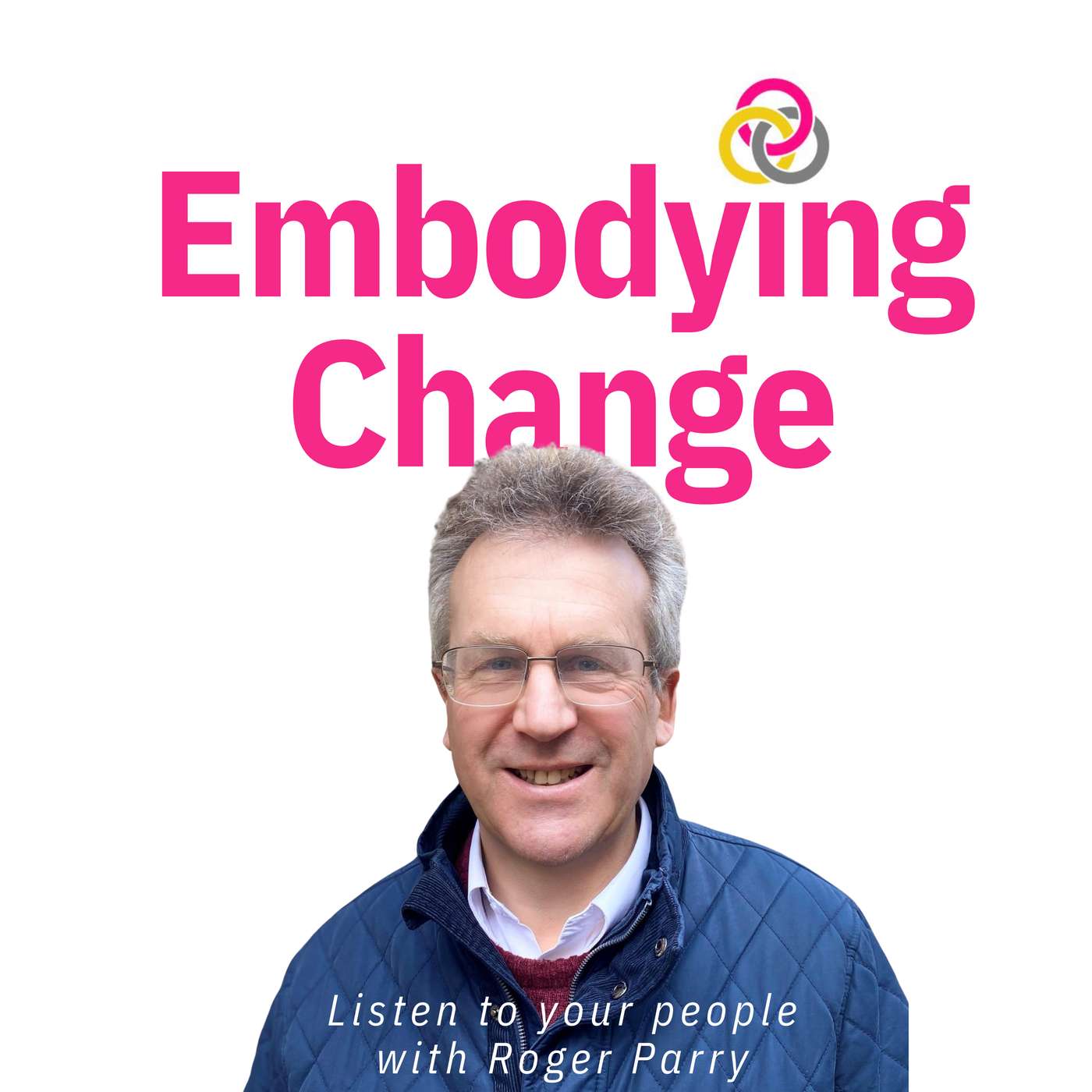
Embodying change: Transforming power, culture and well-being for people in aid12. Listening to your people with Roger ParryHow can we know how staff are doing during these crazy times? Ask them. Melissa talks with Roger Parry, Director of Agenda Consulting. His organisation specialises in employee and volunteer engagement surveys for non-profits. He shares his insights on how staff engagement has increased in the turbulent year of 2020, on how people are experiencing stress differently based on their gender, age and race, and on what it could look like if we tried – as a sector – to track well-being and culture over time using time-tested survey tools.Roger is the Founder of Agenda Consulting. He has w...
2020-12-0442 min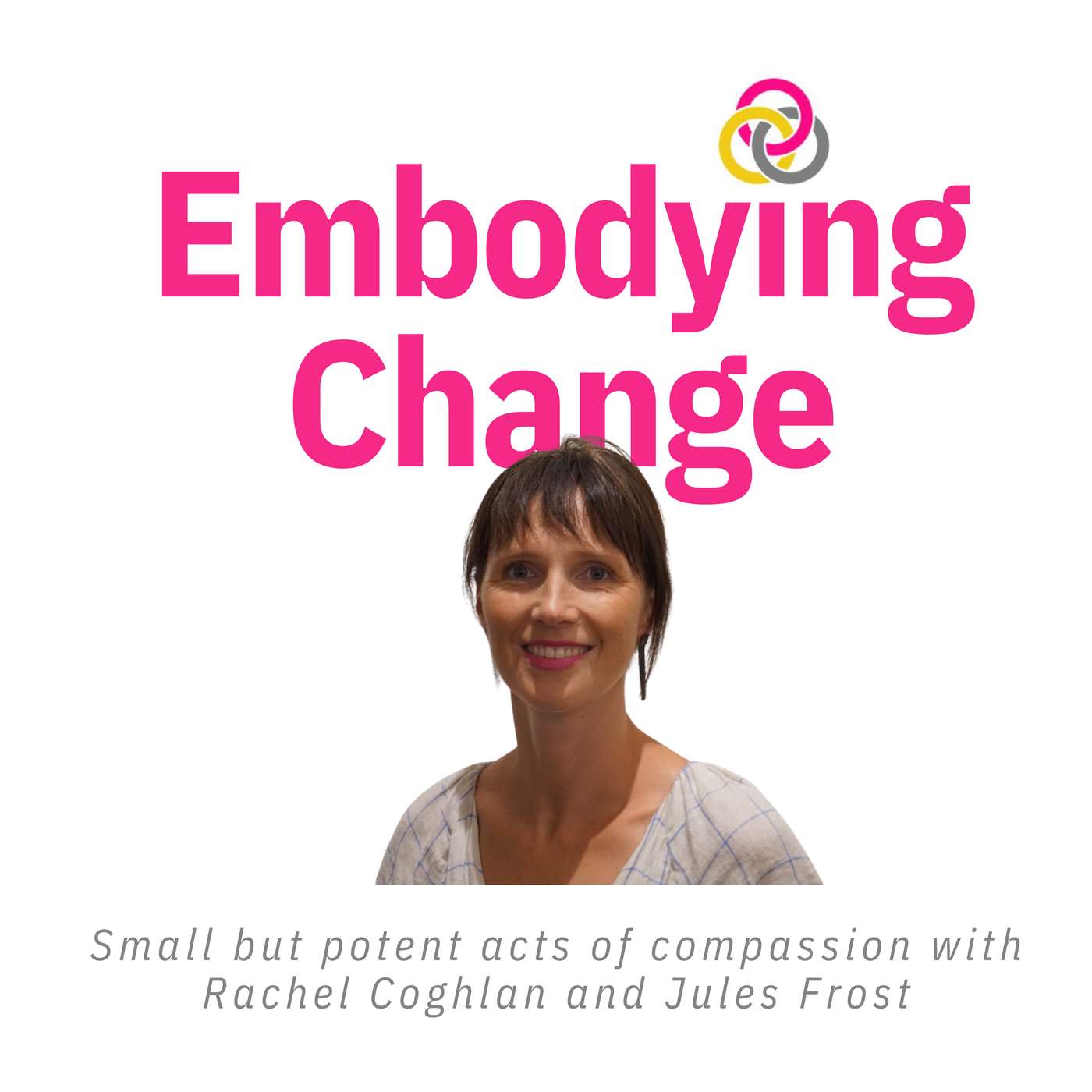
Embodying change: Transforming power, culture and well-being for people in aid11. Small but potent acts of compassion with Rachel Coghlan and Jules FrostMelissa and Jules Frost talk with Rachel Coghlan about what humanitarians can learn from palliative care.Palliative care improves the quality of life of patients and their families who face problems associated with life-threatening illness. Like the topic of mental illness, the subject of death and dying can be difficult to discuss. Compassion is a common theme that comes up in both domains. This conversation highlights small but potent acts of compassion that can be carried out in difficult circumstances, like giving genuine attention, empathic listening, bearing witness and offering a smile. It reflects on t...
2020-11-2044 min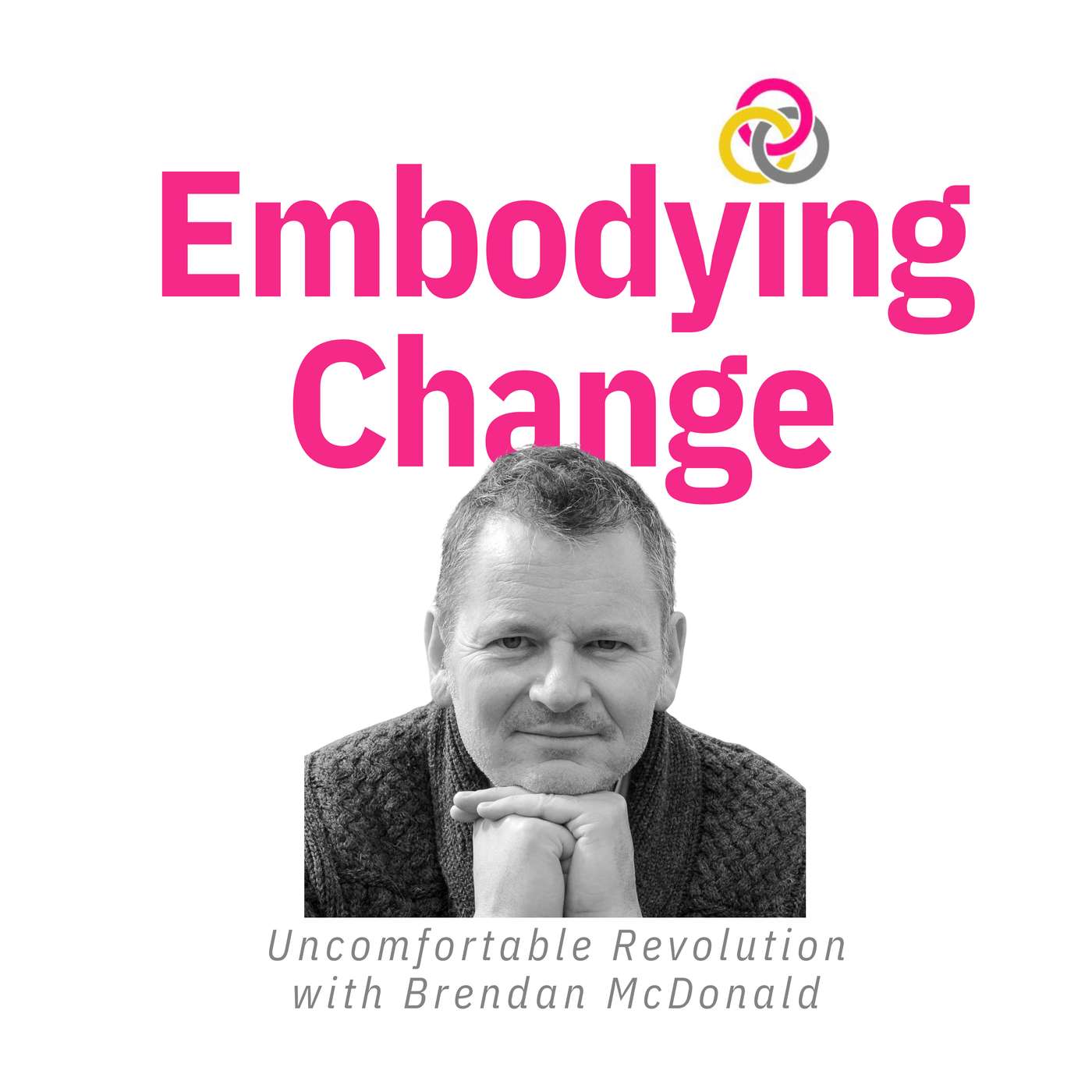
Embodying change: Transforming power, culture and well-being for people in aid10. Brendan McDonald from Uncomfortable RevolutionIn this episode, Melissa talks with Brendan McDonald, co-founder and COO of Uncomfortable Revolution. They explore lessons learned from a big push to get the issue of aid worker well-being on the agenda in the run-up to the World Humanitarian Summit. To learn more about Brendan’s work, you can find him: · on Twitter at @7piliers· Uncomfortable Revolution at https://www.urevolution.com/· his 2015 article in the Guardian at: https://www.theguardian.com/global-development-professionals-network/2015/jul/31/aid-workers-casualties-mental-health· The petition discussed at: https://bit.ly/3oW1hJi· Uncomfo...
2020-11-0642 min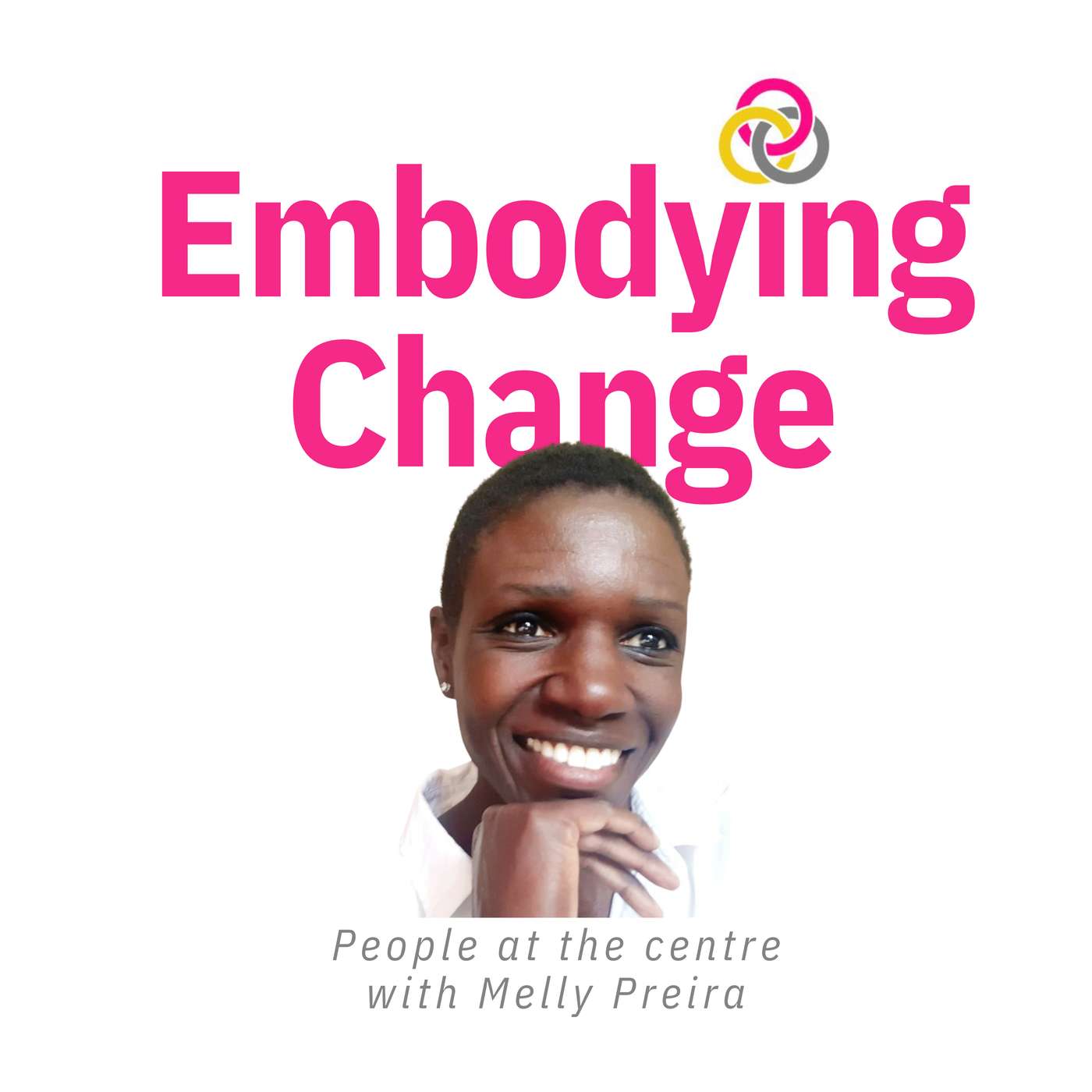
Embodying change: Transforming power, culture and well-being for people in aid9. People at the Centre with JRS' Melly PreiraMelissa talks with Melly Preira, the Human Resources Director at the Jesuit Refugee Service, about how she introduced major changes to her humanitarian organisation's approach to staff support. Melly’s HR Department supports 56 countries in 10 regions and implements HR management practices, tailored to both the field and HQ. She guides senior management on the development and promotion of strategic policies and projects to support the well-being and performance of their employees. Her focus on organisational well-being consists of organisational policies, specific self-care practices, and tailored health and psychosocial support services. To learn more, you can hear...
2020-10-2246 min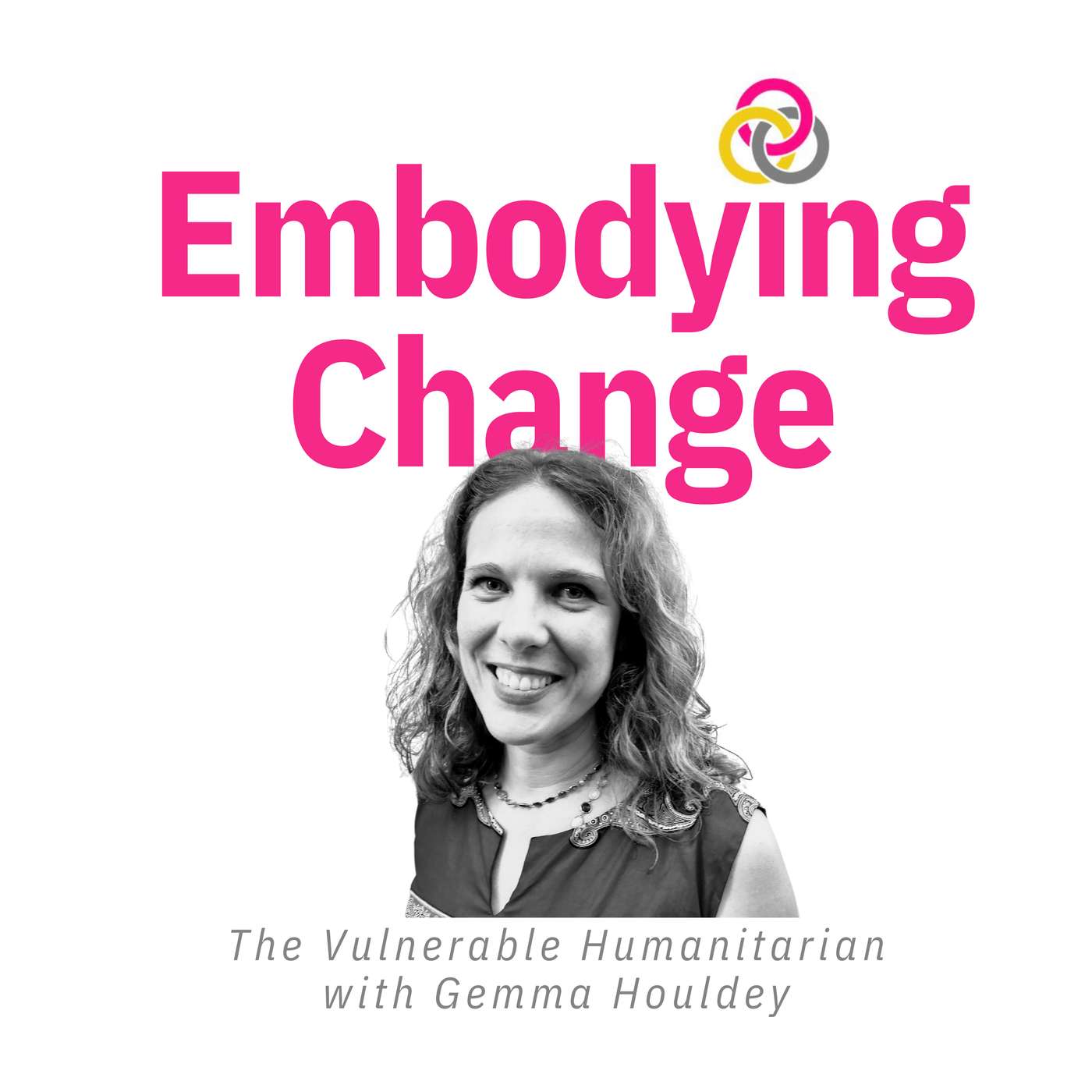
Embodying change: Transforming power, culture and well-being for people in aid8. The Vulnerable Humanitarian with Gemma HouldeyMary Ann catches up with Gemma Houldey. We hear Gemma's nuanced perspective on the idea of the "perfect humanitarian," the need for new ways of working that value vulnerability, and the insights gained by applying the lens of diversity and difference (particularly as they relate to race and gender).Dr. Gemma Houldey shares with Mary Ann her views on well-being in the aid sector, particularly the nuances that arise as a result of gender, race and professional status. She previews some of the concepts explored in her forthcoming book, including perfectionism, vulnerability and daring to have difficult...
2020-10-0228 min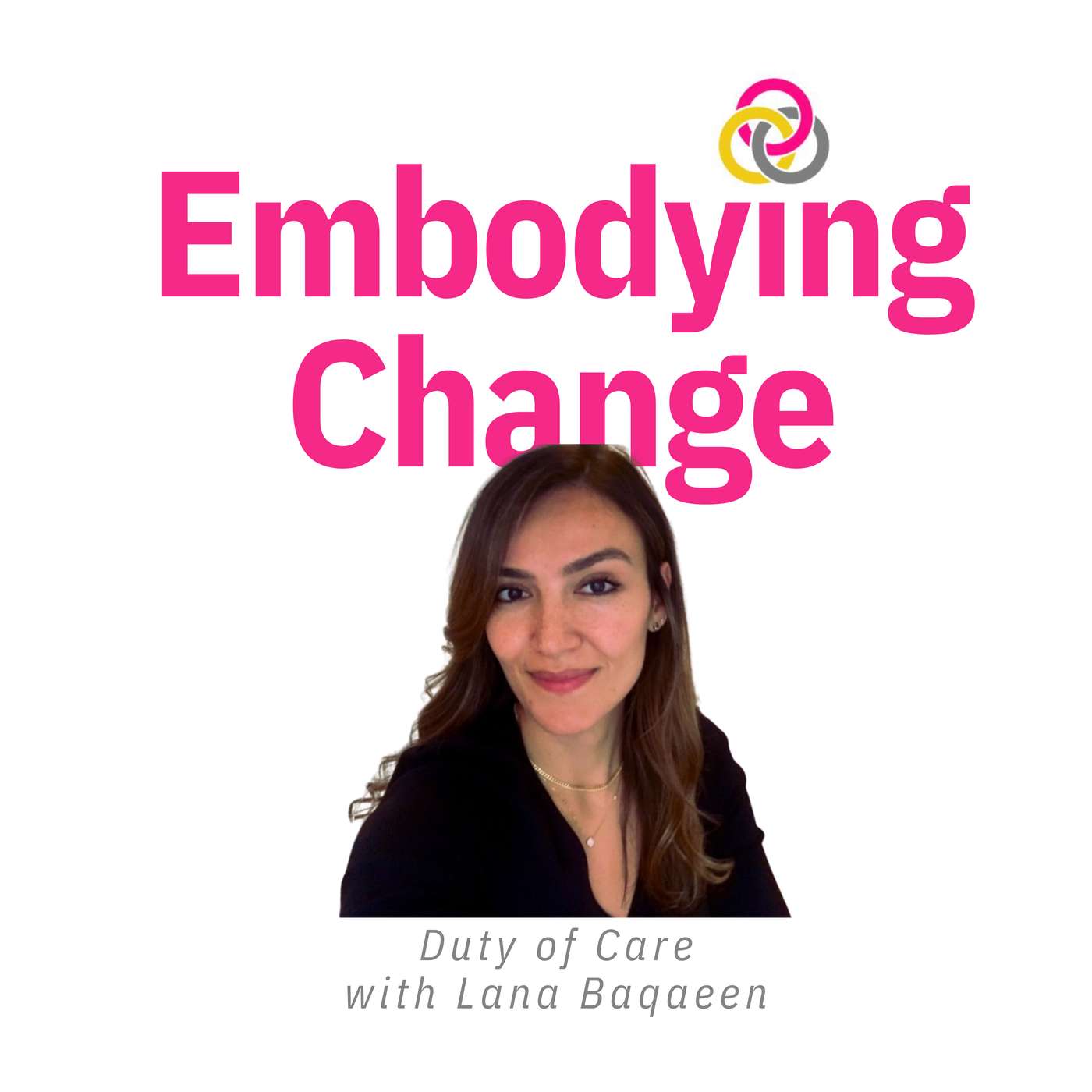
Embodying change: Transforming power, culture and well-being for people in aid7. Duty of Care at IRC with Lana BaqaeenIn this episode Lana Baqaeen a Regional Staff Care Specialist for MENA Region with International Rescue Committee talks with Mary Ann about the work they are doing on their Duty of Care programme. Lana shares how International Rescue Committee (IRC) implement their Duty of Care programme, providing professional mental health support that covers all staff and their families. They provide comprehensive support in a number of different languages, offer virtual wellbeing support and are thinking about the cross-cultural issues that are important in meeting their Duty of Care to their staff around the world. Our conversation with...
2020-06-2542 min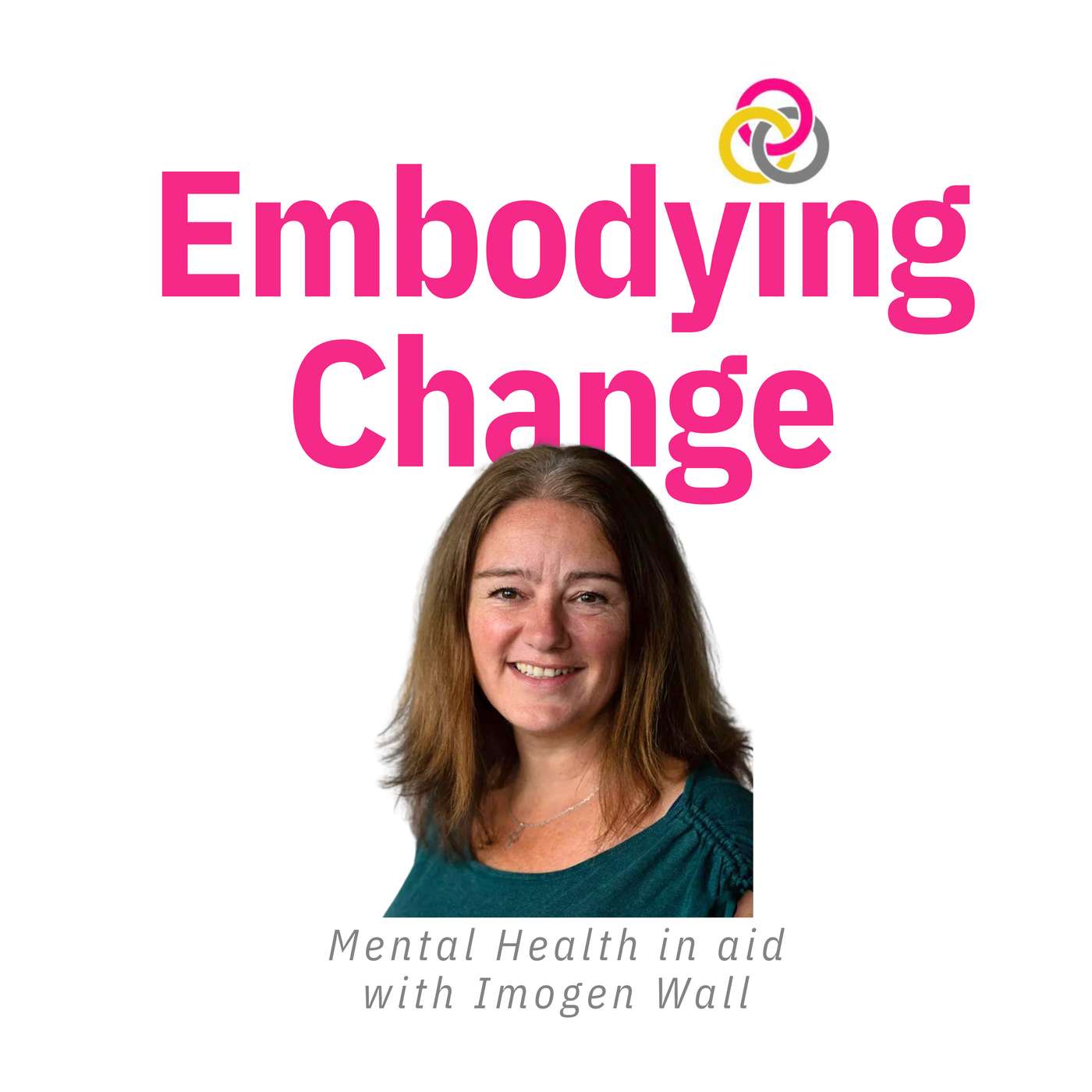
Embodying change: Transforming power, culture and well-being for people in aid6. Mental Health in Aid with Imogen WallIn this show, you'll hear Mary Ann interview Imogen Wall, an independent consultant working in the humanitarian aid sector, mental health advocate and a specialist around well being in the sector. And also Founder of the 50 shades of aid Facebook group that. They talk about the lack of attention to Mental Health in Humanitarian Settings and the huge amount we can learn from other sectors about the impacts of dealing with crises on our mental health. Imogen Wall is a former BBC journalist and UN spokesperson, now an independent communications trainer and advisor. She specialises in crisis r...
2020-06-1128 min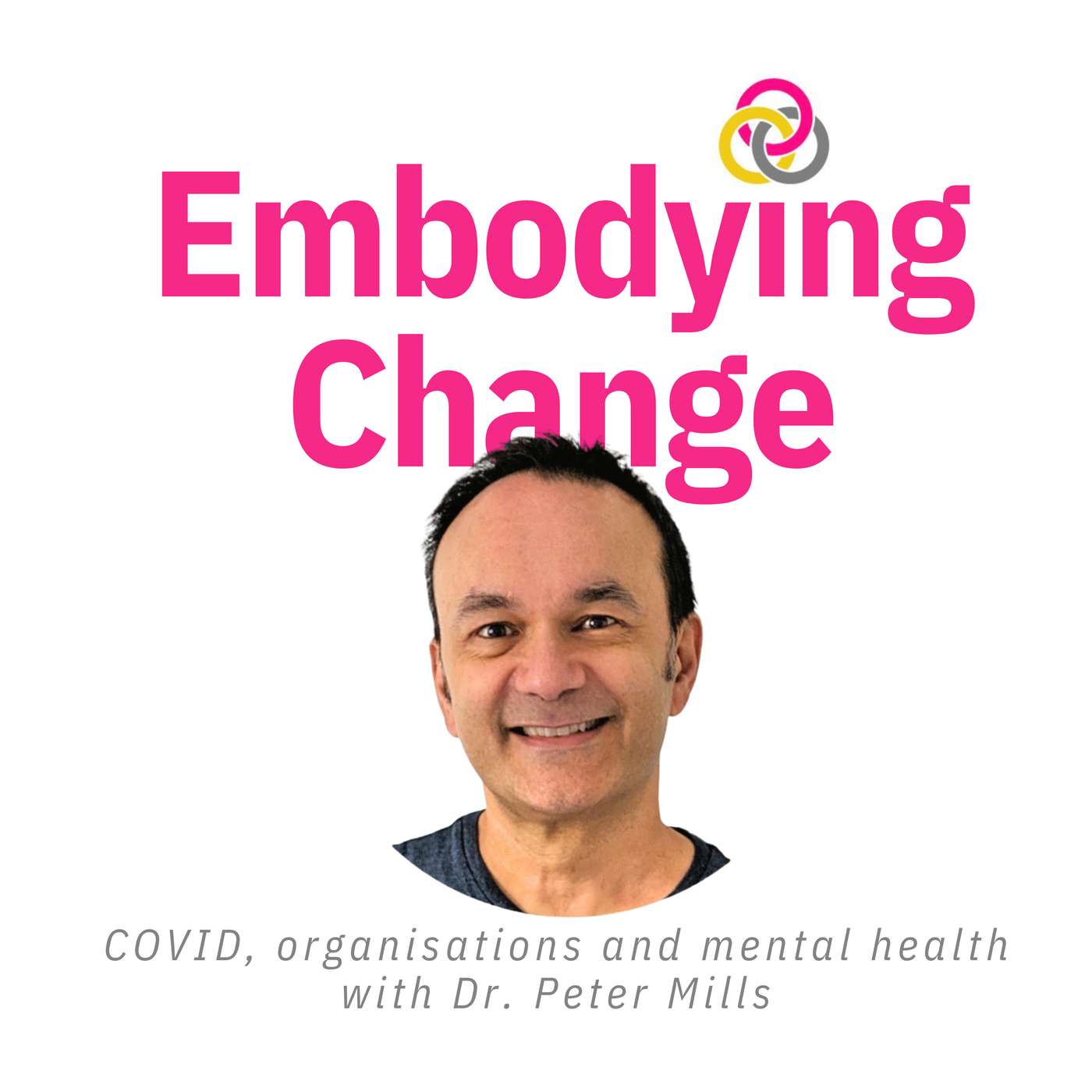
Embodying change: Transforming power, culture and well-being for people in aid5. COVID, Organisations & Mental Health with Dr. Peter MillsIn this show, you'll hear Mary Ann interview Dr. Peter Mills, Medical Director of Cigna. They talk about the mental health impacts of Covid-19 and the need for organisations to be prepared to help meet them and support their staff and about the responsibility of boards and leadership to take seriously the wellbeing of staff. Dr. Mills trained in medicine at the Royal Free Hospital School of Medicine in London. He is an accredited specialist in respiratory diseases and still practices medicine on a part-time basis at the Whittington Hospital in London. In addition, he has a m...
2020-05-2821 min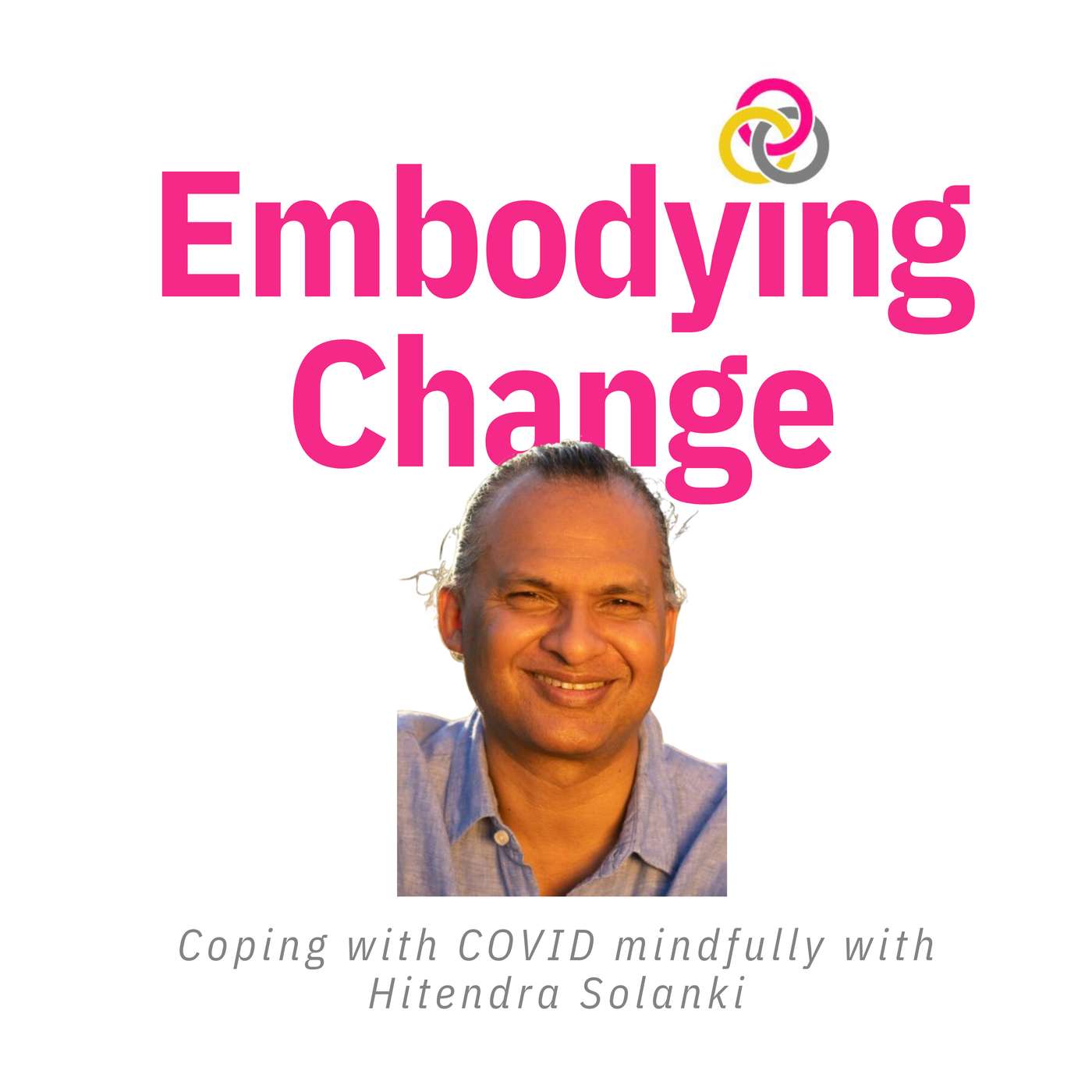
Embodying change: Transforming power, culture and well-being for people in aid4. Coping with Covid Mindfully with Hitendra SolankiHitendra Solanki is a senior lecturer in development studies at London South Bank University. He’s been active in the development and humanitarian sector for over 16 years. Most recently, he worked as a Mindfulness and Wellbeing Adviser in Action Against Hunger UK. He also led the 3-year Mindfulness & Wellbeing project as part of the Start Network’s Transforming Surge Capacity programme. You can see us reference his work in the recently published paper, “Working Well? Aid Worker Well-being and How to Improve It.” You can find Being Inside, the project he describes in the show, here: https://www.bein...
2020-05-2159 min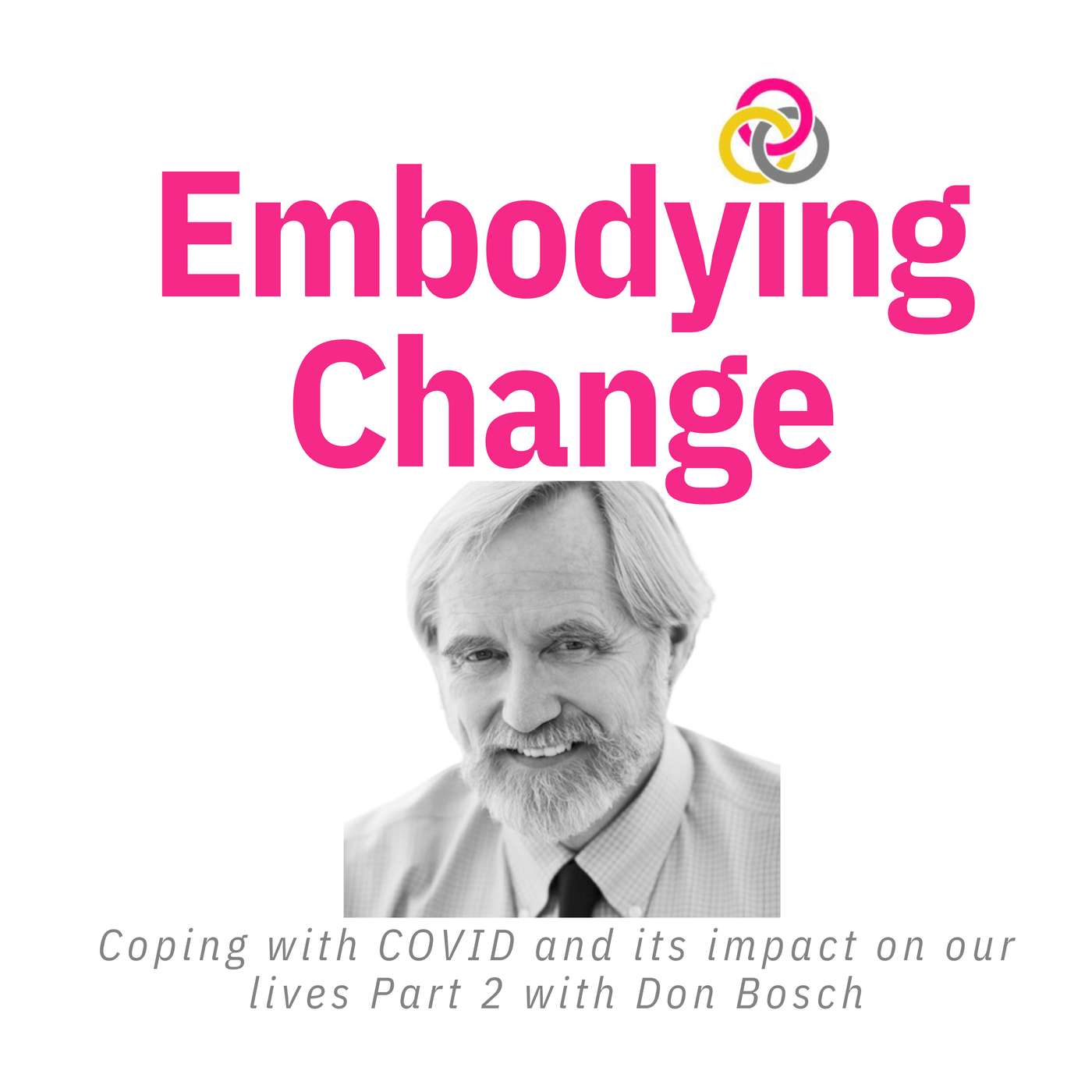
Embodying change: Transforming power, culture and well-being for people in aid3. Coping with COVID & its impact on our lives Part Two with Don BoschIn this show, you'll hear Melissa interview Don Bosch, Director of Risk Psychology and HEAT Training at the Headington Institute. Don is a licensed clinical psychologist and psychoanalyst with 35 years of experience and understands human behaviour and brain function. Outside of Pandemic, Don is often in the field doing debriefs, working with global response teams, and providing psychological support for security trainings. He is a lifelong mountaineer with a love for adventure, travel, exercise, and family. In this episode, Melissa talks with Don about his paper, “Managing Emotions During a Pandemic: Understanding the Effect of Uncertainty.” It can b...
2020-05-1446 min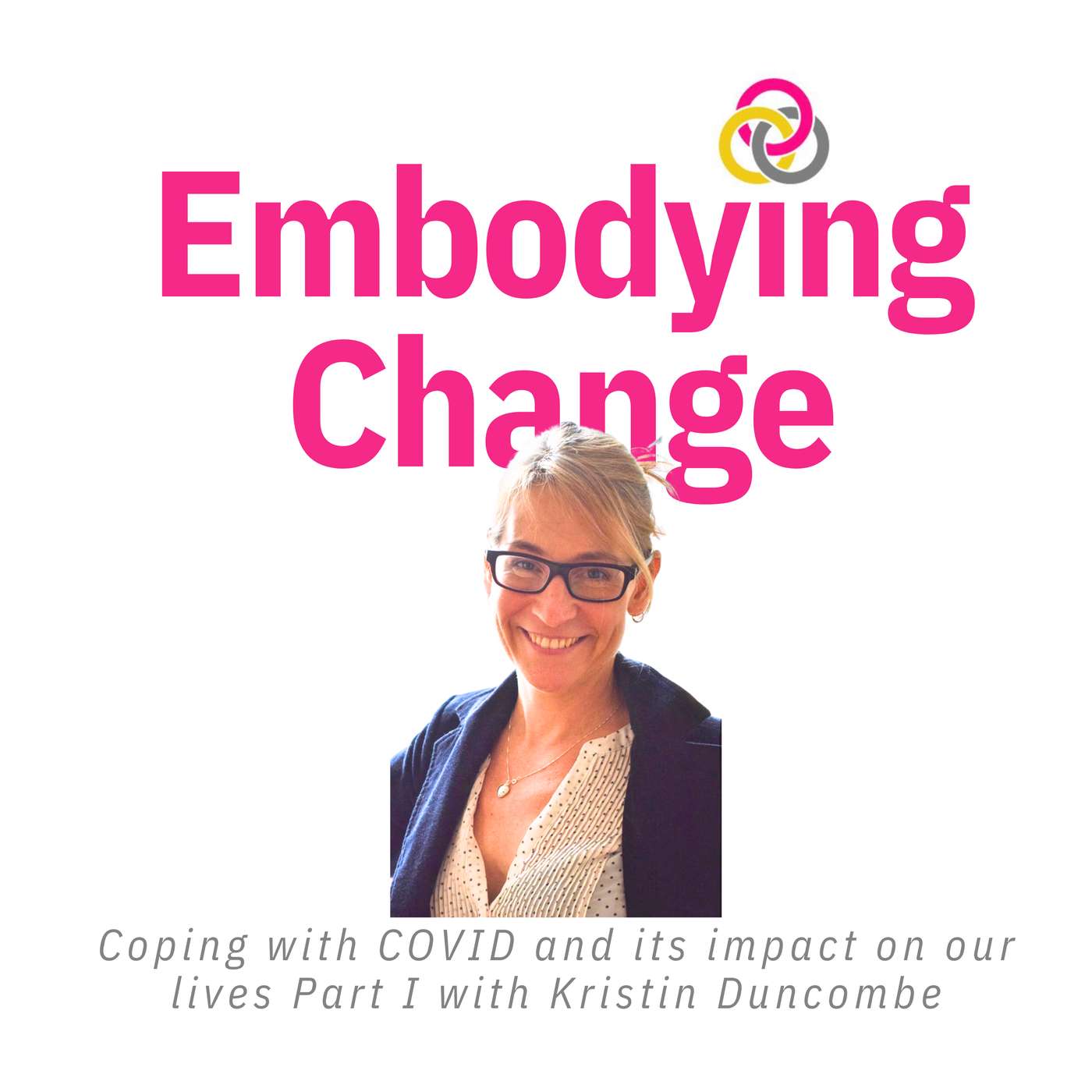
Embodying change: Transforming power, culture and well-being for people in aid2. Coping with COVID & its impact on our lives Part One with Kristin DuncombeIn this show, you'll hear Melissa interview Kristin Duncombe a therapist and couples counsellor, life coach, and author. She’s based her career on working with international and expatriate individuals and families following her own experience of growing up across Africa and Asia as the child of a diplomat and having lived internationally most of her adult life. You can check out her work at her website here: https://www.kristinduncombe.com/The cognitive distortions identified by David D. Burns can be found in his 1999 book, The Feeling Good Handbook and the article Kristin referenced was published on...
2020-05-0745 min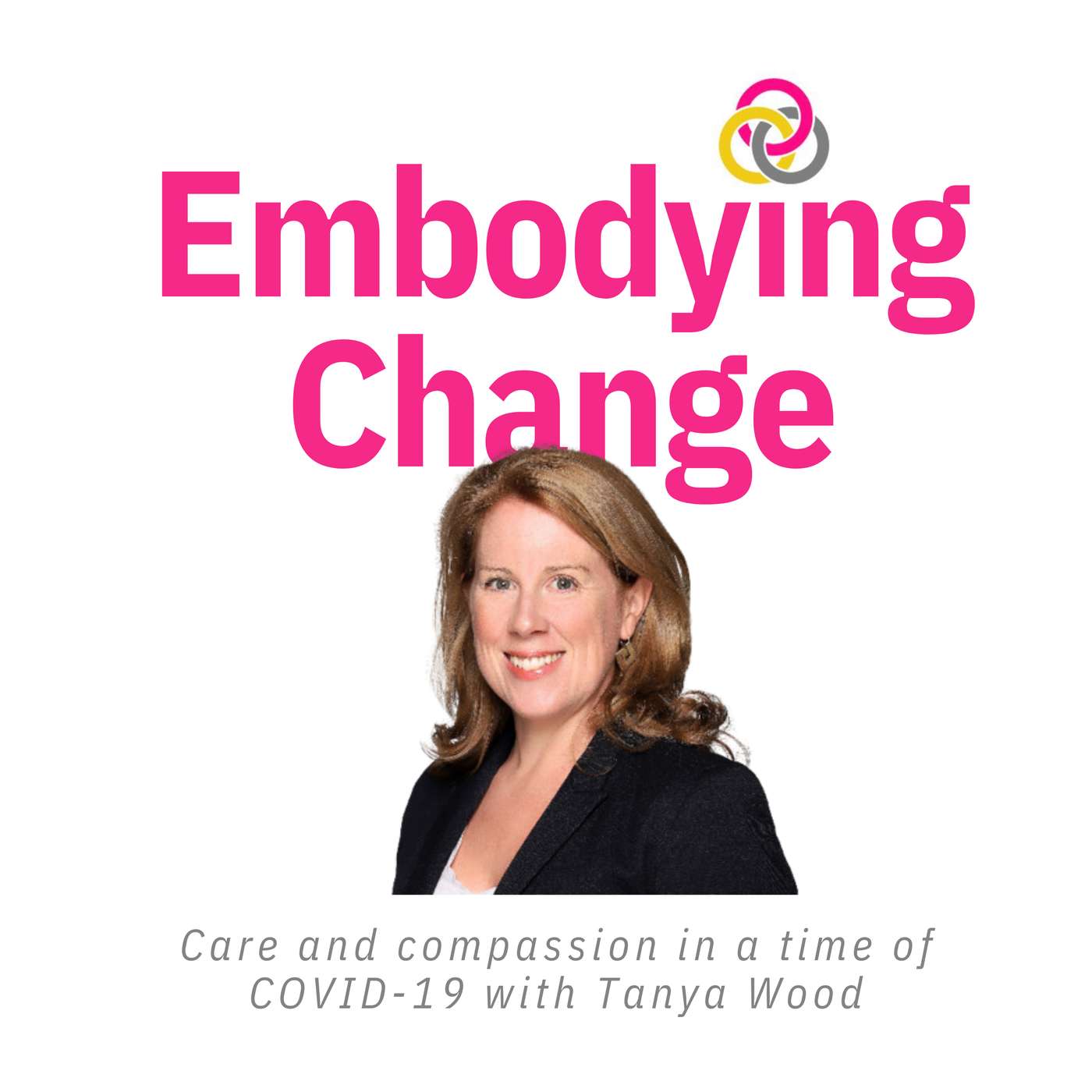
Embodying change: Transforming power, culture and well-being for people in aid1. Care & Compassion in a time of Covid-19 with Tanya WoodWelcome to Embodying Change.In this introductory episode, you'll hear Melissa Pitotti talking with Tanya Wood, Executive Director of CHS Alliance. They introduce you to the initiative initially incubated by the CHS Alliance about building care and compassion in the sector and talk about wellbeing in the context of COVID-19. You can find out more about CHS Alliance at https://www.chsalliance.org/ and about Tanya here.
2020-04-2219 min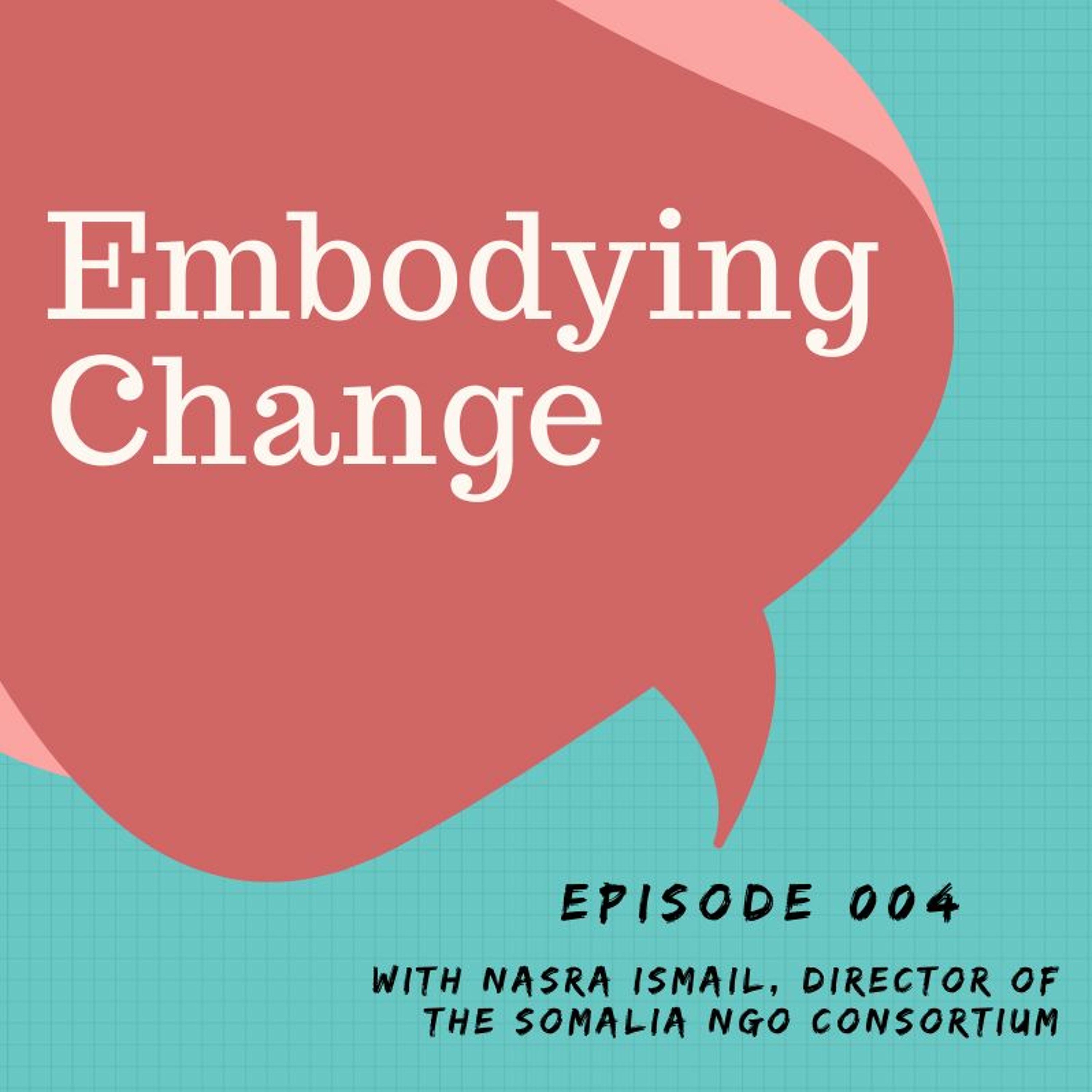
Change Making WomenGuest Series: Embodying Change 4 – Nasra Ismail, Director of the Somalia NGO consortiumIn this conversation, Melissa Pitotti talks with Nasra Ismail, Director of the Somalia NGO consortium. They talk about wellbeing in the context of the localisation agenda in humanitarian aid and why conversations about wellbeing require us to consider our privilege and to think about our work in radically new ways.
Nasra is the director of the Somalia NGO Consortium and currently lives in Mogadishu, Somalia. She cares particularly about women’s rights, rights of minorities and people of colour, generosity and healing as ways to transform her own leadership and the issues the coalition tackles in the sector she works in...
2020-02-0340 min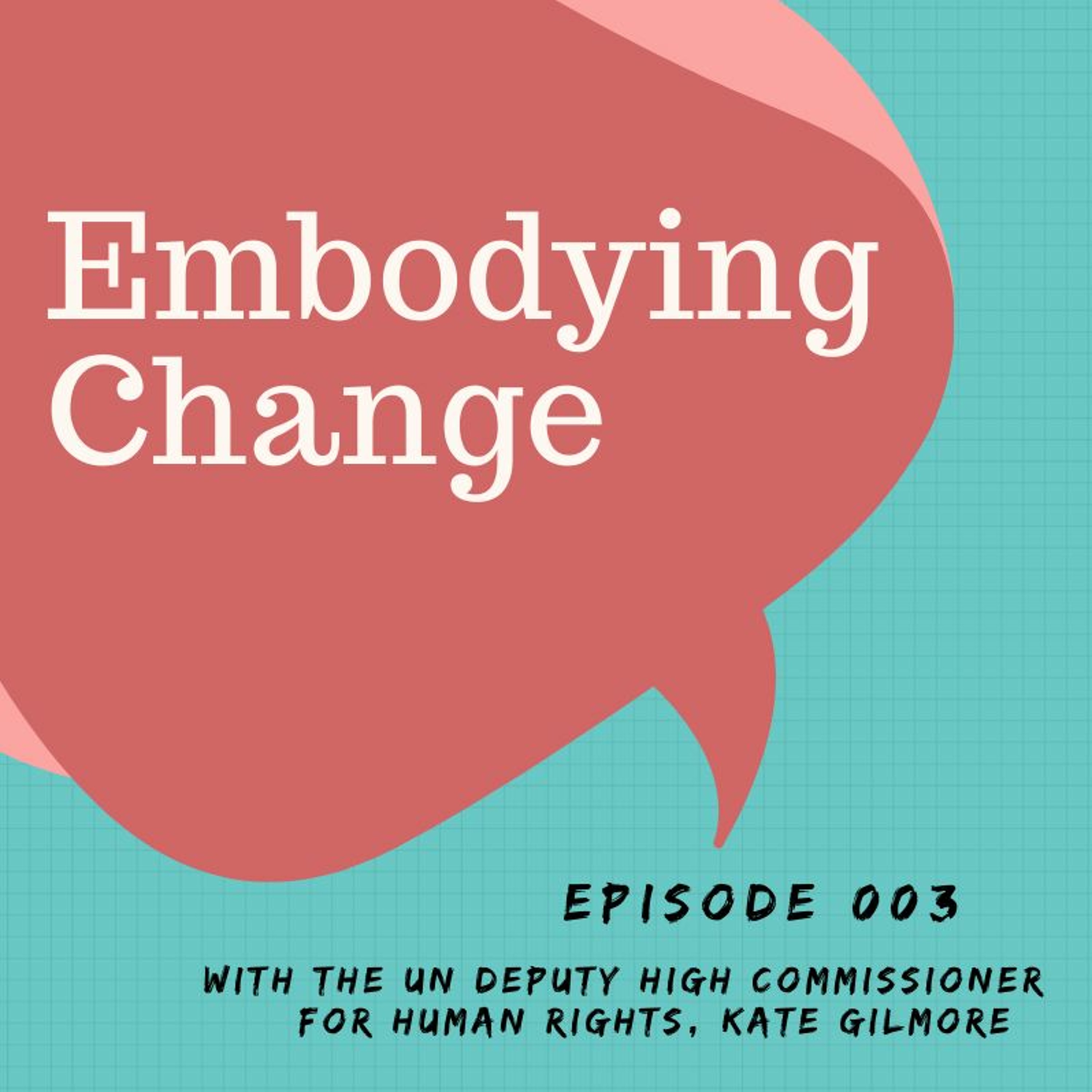
Change Making WomenGuest Series: Embodying Change 3 – Kate Gilmore, UN Deputy High Commissioner for Human RightsIn this conversation, Melissa Pitotti talks with Kate Gilmore the United Nations Deputy High Commissioner for Human Rights. They talk about wellbeing in the UN system and other humanitarian and human rights work, about how Kate sees the connections between personal and political and some tangible ways she has tried, in her role, to do things differently.
Kate Gilmore was appointed United Nations Deputy High Commissioner for Human Rights on 1st December 2015. She brings to the position diverse and longstanding experience in strategic leadership and human rights advocacy with the United Nations, government and non-government organisations.
Prior to joining OHCHR...
2019-12-1227 min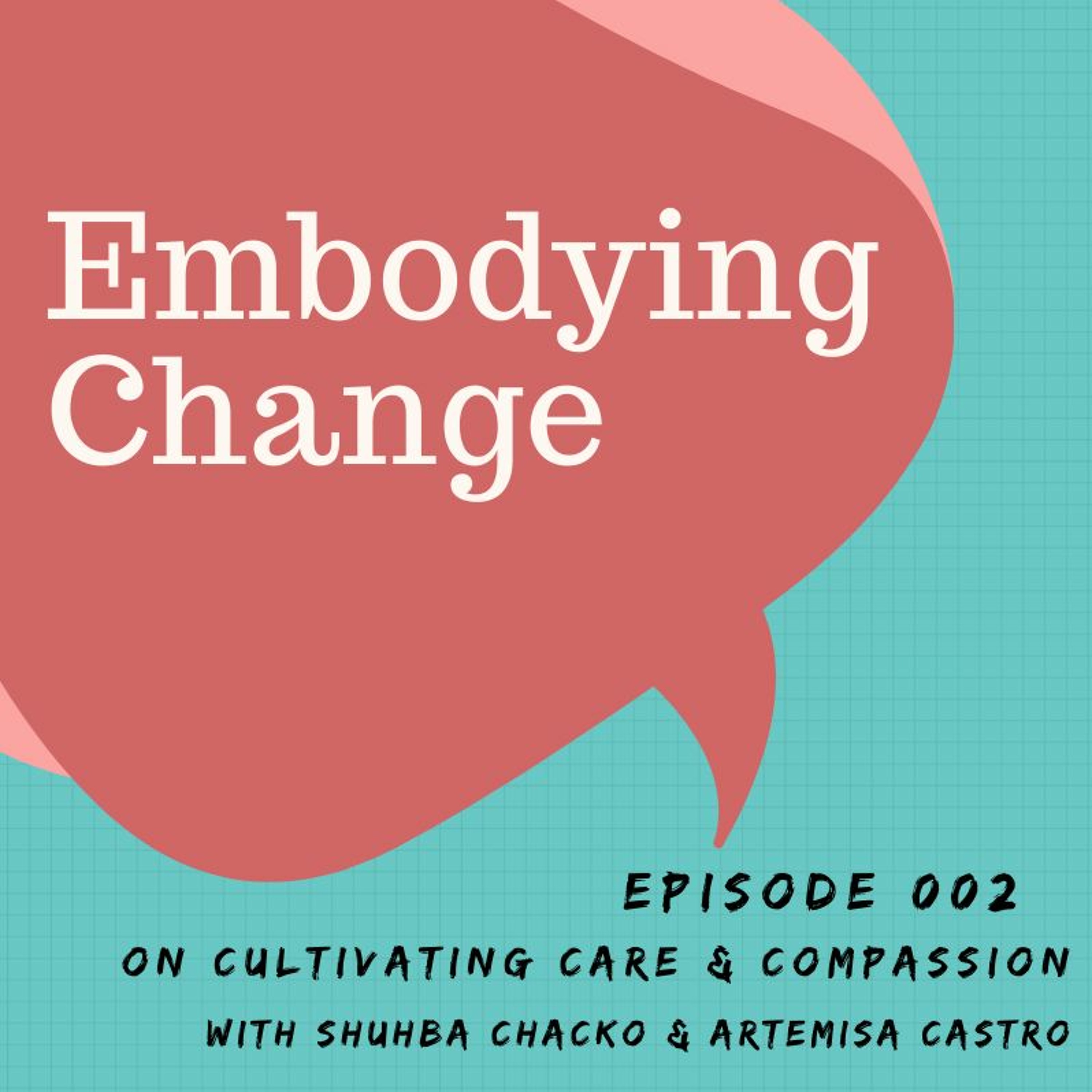
Change Making WomenGuest Series: Embodying Change 2 - Care and Compassion with Shuhba Chako & Artemisa CastroIn this conversation, Mary Ann talks with Shuhba Chacko in India and Artemisa Castro in Mexico. They consider together how we might cultivate caring and compassion in our organisations and movements.
Shubha Chacko is a joyful activist who has drawn strength, knowledge, and warmth from strong alliances and friendships forged with people from different walks of life. She is the Executive Director of Solidarity Foundation, an NGO that supports grassroots level organisations of gender/sexual minorities (LGBTIAQ+)and sex workers by building collectives, capacities and connections with resources. The broader goal is to enhance leadership of those currently excluded. Solidarity...
2019-11-1442 min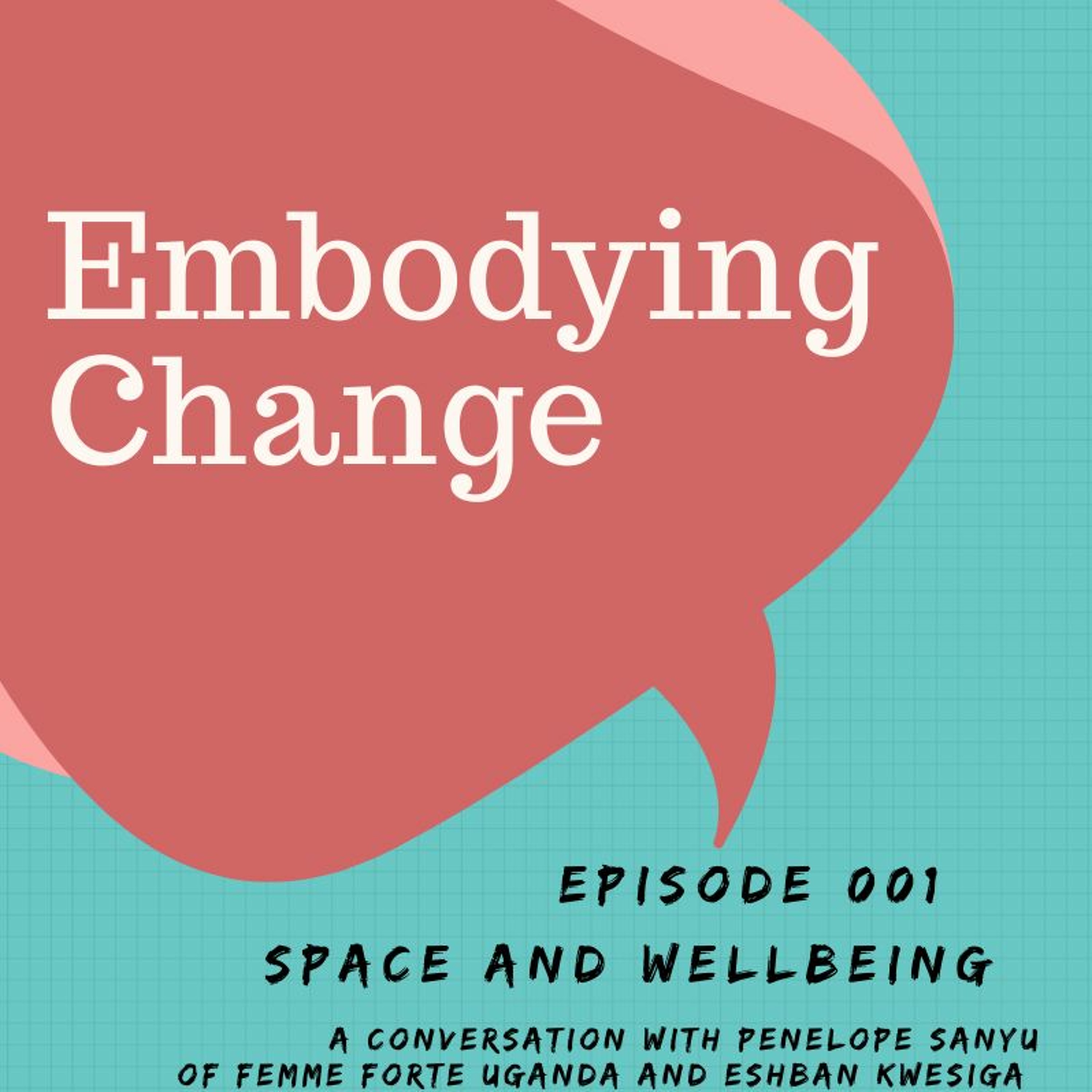
Change Making WomenGuest Series: Embodying Change 1 - Space and Wellbeing with Penelope Sanyu & Eshban KwesigaIn this conversation, Mary Ann talks with Penelope Sanyu from Femme Forte (https://www.femmeforteug.org/) in Uganda about how she links space and wellbeing in her work. They are joined with Eshban Kwesiga who has experienced the spaces Penelope creates and who also shares his perspective on her work and it's importance.
Penelope Sanyu is Team Leader and Founder of Femme Forte in Uganda. She is a young lawyer, thinker, writer and author, policy analyst, solution architect and Agent of Positive Social Change and Transformation. She has dedicated most of her career to building the capacity of young people...
2019-11-0534 minChange Making WomenGuest Series: Embodying Change 1 - Space and Wellbeing with Penelope Sanyu & Eshban KwesigaIn this conversation, Mary Ann talks with Penelope Sanyu from Femme Forte (https://www.femmeforteug.org/) in Uganda about how she links space and wellbeing in her work. They are joined with Eshban Kwesiga who has experienced the spaces Penelope creates and who also shares his perspective on her work and it's importance.
Penelope Sanyu is Team Leader and Founder of Femme Forte in Uganda. She is a young lawyer, thinker, writer and author, policy analyst, solution architect and Agent of Positive Social Change and Transformation. She has dedicated most of her career to building the capacity of young people...
2019-11-0534 min
The Couragemakers Podcast | Encouragement, Inspiration & Rebel Rousing for Mission Driven Doers, Makers & Shakers |066: Playing The Long Game with Mary Ann ClementsHello lovely Couragemakers, and welcome to episode 66 of The Couragemakers Podcast! This week I'm excited to be sharing my conversation with Mary Ann Clements. Mary Ann is founder of Jijaze: a community supporting women to replenish and take care of themselves as they work to change the world. She is also the co-host of the Change Making Women podcast with Ziada Abeid; A Tanzanian broadcaster. Originally trained as an anthropologist she has many years experience in International Development as a leader and grant maker. She's also a storyteller, podcaster, writer, connector, #nia teacher, action learning facilitator and...
2017-07-031h 13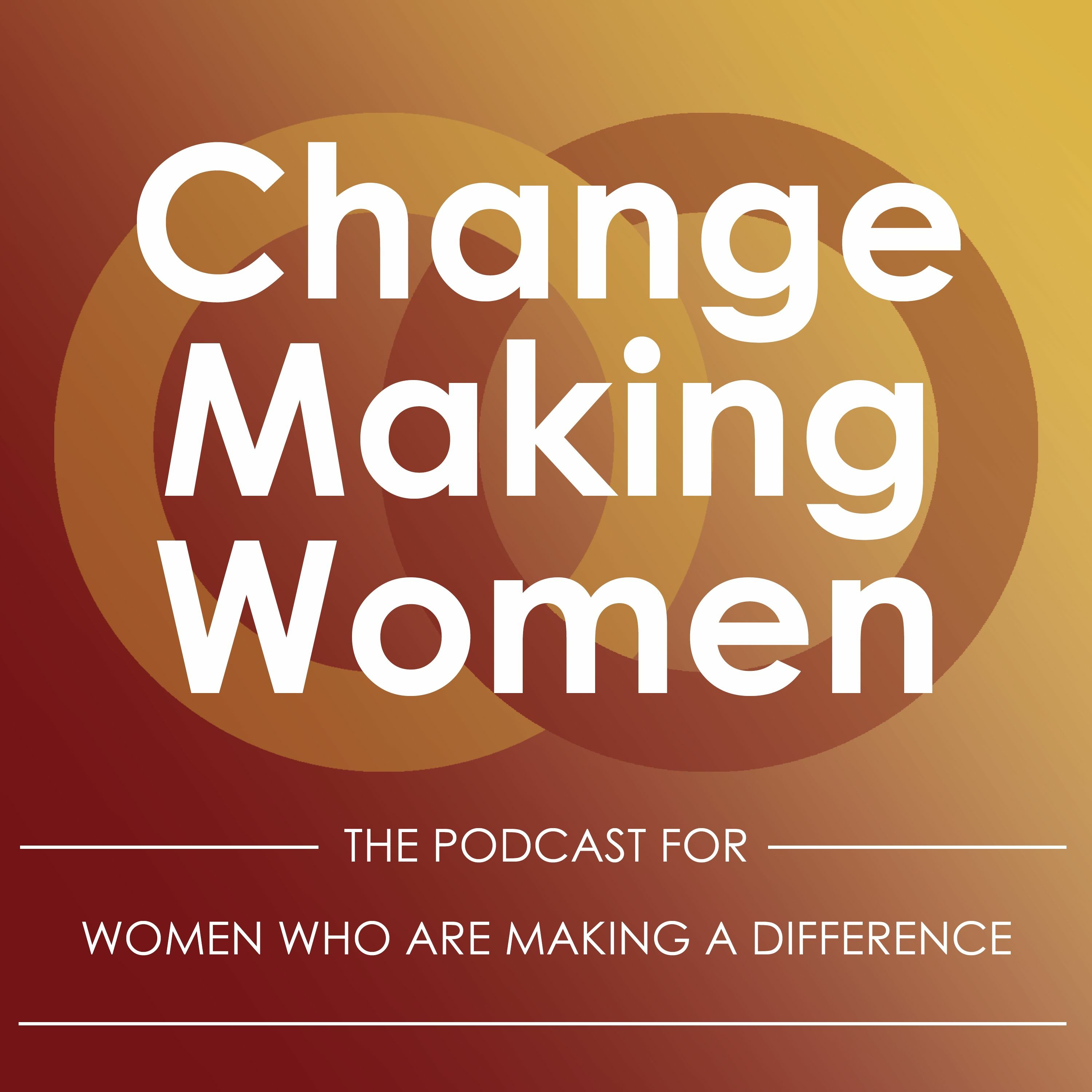
Change Making WomenChange Making Women: Coming SoonComing Soon: Change Making Women is the podcast for women who make a difference with Ziada Abeid in Tanzania & Mary Ann Clements (formerly Mhina) in London.
2016-09-0702 min